150 Best Topic Ideas For Narrative Essay
Table of contents
- 1 How to Choose a Topic for a Narrative Essay?
- 2 Some Tips for Writing Narrative Essays
- 3.1 Narrative Essay Topics for High School Students
- 3.2 Good Narrative Essay Topics for College Students
- 4.1 Personal Narrative Essay Topics
- 4.2 Personal Experience Narrative Essay Topics
- 4.3 Narrative Essay Topics About Childhood
- 4.4 Relationship Narrative Essay Topics
- 4.5 Personal Narrative Essay About Friendship
- 4.6 Cultural Narrative Essay Topics
- 4.7 Personal Narrative Stories Ideas on Traveling and Holidays
- 4.8 Narrative Argument Essay Topics
In academic practice, the narrative essay is probably one of the key elements to train students in expressing their opinions. It teaches well how to tell a story in a clear, concise manner, that’s why it is so welcome in the language and composition classes.
Narrative essays are not only valuable as such: their contribution lies in the ability to elaborate students’ storytelling and narration skills. To touch the reader’s nerves, you should opt for exciting narrative essay ideas. There are plenty of them – but don’t worry, we’ve got you covered! Below you’ll find a comprehensive list of essay ideas.

How to Choose a Topic for a Narrative Essay?
When you are selecting a topic for your essay , you should consider some aspects. As a teacher, you should opt for the best narrative essay topics that would be interesting and familiar to your mentees. If you are a mentee yourself, you can be assigned a specific task to write on the topic provided by your teacher or professor. In the opposite case, you have the freedom to choose a topic on your own.
We’ve collected some useful tips on how to efficiently select a narrative speech topic for your paper. They apply to the general principles of narrative essay topic choice. You can write about something special and personal for you, or describe events and subjects that are well-known to everyone. The following rules will be a perfect support for you in the creation of a powerful narrative essay.
- Opt for relevant topics Always consider your audience when picking a topic if you are a teacher. The topic shall be cognizable and meaningful for your audience, be it higher school students or schoolchildren. They must be able to express their thoughts on the subject and relate their personal experiences to it.Obviously, the requirements for younger students are lower, and narrative writing topics shall deal mostly with descriptions or reporting. On the other hand, senior schoolers and students shall be able to write an essay that is also persuasive and reflective.
- Choose your comfortable writing style Experience in studying affairs clearly demonstrates that successful subjects for a narration essay are those you feel comfortable with. Picking up the right idea is the key to a powerful paper as it determines the style of your writing.Think about what you love to tell about. Do you like to describe events in a detailed and vivid manner? Or maybe you are factual and concise? Are you a fan of reflections and self-analysis? Recollecting or imagining, projecting or analyzing, reporting or insightful – if you identify your features, they will be helpful narrative essay prompts.
- Show your mastery Topics are essential, but that’s not the hard and fast rule: always factor into personal proficiency. This is what turns even a dull and merely informative topic into an engaging story. A narration essay is your chance to create a description that would allow your readers to pop into your experiences and share your fun or drama with you.Whether your narration concerns a film, a book, a relationship, a person, or a situation, try to complement it with a touch of personal attitude. Discourse upon the lessons you’ve learned, describe a turning point of your life or reflect on why an event from your past is so memorable. Try to convey this in the essay outline , and you’ll see how fascinating it might be. The more so as there are plenty of brilliant topics for narrative writing.

Some Tips for Writing Narrative Essays
Narration may be both rewarding and challenging. To maximize your rewarding experience and minimize the tough aspects of essay writing, follow our tips recovered from the students’ practice.
1. Aim at telling a story
A narration essay stands foremost for a narration. Whether you are describing events, discussing situations, or recollecting the past, your story should be engaging and have a plot. You may introduce the elements that make your story individual. These include arguments, reflections, and opinions, but the focus of this type of essay is narrative.
3. Keep to an outline
The conventional structure is not required, however, it assists in organizing your thoughts properly and preserving accuracy and distinctiveness. The introduction and conclusion parts do not differ much from those in other academic papers. The body part, in turn, presents a story that may tackle moral, practical, psychological, or other problems. This clearly distinguishes your narration from all the others. This is why personal narrative topics shall be thoroughly picked.
3. Make a plan
Draft the events and characters to be introduced in your story. Don’t feel like you are limited by the structure you create. A plan is a guide rather than a mold for your text, so try making it comfortable for you. Drafting your essay before you start writing may also be helpful. This way you can break down the nuances and see what’s lacking for an immersive story.
4. Remain individual
While good narrative topics circulate in the school and college assignments, you are still able to make your essay personalized. To start with, you have your own stories to be told. Then, you might express your own opinions that are unconventional. Also, you can present the lessons you’ve learned from the story. In the end, your author’s style will surely add points to your paper.
5. Choose a writing narrative thoroughly
Stories may be told third-person or first-person. Weigh the pros and cons of each type of narration and opt for the one reflecting your objective. Personal experiences are usually written in first-person, and epic narratives may be third-person. Though, unconventional approaches may be an interesting artistic device making your essay even more intriguing.
Need help with narrative essay writing? Get your paper written by a professional writer Get Help Reviews.io 4.9/5
Narrative Essay Topics for Students
We’ve analyzed trainees’ experience in writing narrative paragraphs and selected narrative essay topics for college and school students. This profound list covers a wide range of subjects, so pick one!
Narrative Essay Topics for High School Students
High school students normally feel comfortable about describing their study routine. Below you’ll find interesting topics to convey some of the things at school familiar to every pupil.
- My favorite class
- An unexpected day-off
- My favorite teacher
- My most memorable participation in a sports event
- My harshest debate competition
- My best role in a school theatre
- My after-school activities
- My routine travel to school
- My funny prom night adventure
- My worst lost match
- The craziest incident on my campus
- The subject I don’t like
- How I failed an exam
- How I got through an exam
- How I got caught cheating
Good Narrative Essay Topics for College Students
Just like high schoolers, students at colleges and universities are fond of talking about their everyday matters. Whether a topic about students’ affairs or reflection on new relationships, the most popular narrative topics for college students are collected here.
- My first day at the higher school
- My last day with my schoolmates
- My favorite course
- Meeting my better half
- The story of my split-up
- My brightest high school moment
- How I met my old friend
- My favourite professor
- A funny adventure on my campus
- The most symbolic episode from my college life
- The day I moved
- How I traveled to my college
- My first impressions of the college campus
- How I met my roommate
- My first friends at college
Topics for essays on themes:
Personal narrative essay topics.
Each of us had moments in life the story of which would be interesting to others. Develop your narration mastery and tell the world a story about the very best, most memorable, extremely scary, or awkward situations. Our list is here to assist you.
- The happiest event ever
- The saddest moment in my life
- The worst moment of my life
- The best moment of my life
- If I start my life all over again, I’d…
- The most frightening episode of my life
- The most dramatic decision I had to make
- The life-changing event in my life
- The greatest risk I took
- The day I decided to move
- The worst decision of my life
- Getting lost abroad
- The most disastrous trip
- How I grew up in a city
- How I grew up in a village
Personal Experience Narrative Essay Topics
Personal experiences are way more exciting for writers. Unfortunately, personal narrative essays are not always just as fascinating for listeners unless they are presented in an entertaining manner. We’re sure that the ideas for personal narratives below will help you pick your topic to maximize readers’ engagement.
- The moment of my life I’m proud of
- My first visiting an opera house
- The weirdest accident I witnessed
- How I first tried Asian cuisine
- My most memorable birthday present
- If I was a character in a book
- The memory I wish I lived through again
- If I was my favourite movie superhero
- How I lost a thing that wasn’t mine
- My first travel to the sea
- What makes me unique
- My first trip into the wild
- My first job interview
- My most significant loss
- My most memorable Christmas
Narrative Essay Topics About Childhood
Childhood is probably the sweetest period of our lives and the one with the most number of insights. The most powerful experiences come from it, and most of our reflections are related to a child’s perception in this or that way. Check out our list of captivating topics about childhood and pick one.
- My first memories ever
- My first pet
- The role model of my childhood
- The first time I met my uncle/aunt
- The first time I got to a hospital
- My first big sports competition
- My first day at school
- The first time at a stadium
- My best visit to a children’s entertainment park
- My favourite preschool teacher
- My first time on the airplane
- My most memorable picnic
- The scariest incident of my childhood
- My childhood phobias
- The funniest incident of my childhood
- Free unlimited checks
- All common file formats
- Accurate results
- Intuitive interface
Relationship Narrative Essay Topics
Writing about this huge layer of experience – relationships – is surely thrilling. We’ve picked just some of the great variety of narrative topics about relationships for you. Even if you don’t find here exactly what you want to talk about, you’ll definitely hit upon an appropriate idea.
- My first romantic date
- How my best friend changed my life
- How I first met my best friend
- The saddest moment in a relationship I experienced
- A turning point in my important relationship
- My role model relationship from a book/movie
- My first romantic relationship
- What my parents mean to me
- The best advice about relationships I got
- Why is my significant other so important to me
- The situation that helped me fix my ruined relationship
- The best memories I share with my friends
- My first confession
- How I helped someone with depression
- A film/book about relationships that stroke me
Personal Narrative Essay About Friendship
Friendships often determine our paths in life, and most people love telling stories. These are about their adventures with friends or reflections on the effects of getting cozy with other people. From the list below, you may pick one of the best friendship topics for narrative essay papers.
- My best friend from a summer camp
- How I reconnected with my friend after a quarrel
- How I covered my friend
- How I first met my online friend live
- How I helped my friend reconnect with his/her loved one
- The coolest adventure with my best friend
- The first time at my friend’s place
- My worst quarrel with my friend
- My best older friend
- How my foe turned into my friend
- The toughest situation I and my friend went through
- My friend’s sister/brother
- The situation where I had to choose between two friends
- How I met a friend on the Internet
Cultural Narrative Essay Topics
How about writing on culture? The variety of topics is enormous, and you can write here in different styles and tonalities. Find out effective narrative paragraph topics dedicated to traditions, holidays, or cultural events below.
- My favourite holiday
- How we celebrate Christmas
- The best Christmas present I got
- My best Christmas
- My saddest Christmas
- The holiday which is most significant for me
- Our family traditions for Easter
- How I took part in holidays abroad
- The scariest Halloween I ever had
- Home alone on a holiday night
- The most memorable cultural event I visited
- The festival I love most
- What I was thankful for this Thanksgiving Day
- My family traditions
- A foreign holiday tradition that I love most
Personal Narrative Stories Ideas on Traveling and Holidays
This segment of subjects covers individual experiences. Respectively, it has to do with reflections, opinions, and feelings. Our list of personal narrative ideas related to trips and celebrations is here for your convenience.
- My best entertainment on winter holidays
- My first traveling abroad
- How I first visited a warm country in winter
- How I missed my flight/train/bus
- The happiest moment during the holidays
- Making a new friend during the holidays
- My first time traveling alone
- My most memorable holiday ever
- The saddest incident on a holiday
- My best visit to a foreign city on holiday
- My best travel to a big city
- The worst quarrel while on holiday
- The best encounters during the holiday
- My best trip to a countryside
- How I returned home after a long vacation
Narrative Argument Essay Topics
Strong argumentation is one of the indications of a successful academic paper and a prerequisite for a higher grade. You should pick a topic you are confident in to provide your effective arguments as your objective is to persuade your readers. Opt for a narrative essay topic that speaks to you.
- The toughest decision between right and wrong
- The choice I regret
- How I helped a friend against the rules
- Involvement in a conflict between other people
- Getting caught lying
- How I let down a friend following the rules
- How I shifted the blame to someone else
- The toughest yet most important experience
- Helping someone for personal benefit
- The prank I played on my friend
- Ignoring bullying
- How my friend took the blame for me
- Does justice actually exist?
- Ignoring the wrong behavior of others
- Eavesdropping
When writing a narrative essay, it is important to choose an interesting topic that can engage your readers. Finding the right topic can be a challenge, but there is no need to worry as there are many resources available, such as online essay writers , that can help you choose the best topic for your narrative essay.
Whether a personal experience essay, a story about your best childhood birthday, a narration about your most meaningful travel, or the way you reacted to essential world events, are all worth writing. Bear in mind that each of them requires research, adhering to a structure, and planning. Focus on what’s inspiring for you and may be of interest to your readers, and you’ll get a list of the narrative ideas working best for you.
Readers also enjoyed

WHY WAIT? PLACE AN ORDER RIGHT NOW!
Just fill out the form, press the button, and have no worries!
We use cookies to give you the best experience possible. By continuing we’ll assume you board with our cookie policy.
164 Narrative Essay Topics for School & College Students
A narrative essay tells a story about a series of events. At the core of this kind of essay can be a personal experience or a fictional plot. Any story can be a basis for a narrative essay!
Narratives can look similar to descriptions. Still, they are different. A descriptive essay aims to explain the details of a specific moment. Narrative writing focuses on a sequence of events to tell a complete story.
In this article, we have prepared a list of narrative essay topics for high school, college, and university students. The topic ideas are divided by spheres. In the collection below, you’ll find the ideas based on personal experience as well as fictional narrative essay topics. Make use of resources offered by our custom writing experts to write any paper!
- 🔝 Top 10 Topics
- 📖 Fictional Topics
- 🧑✍️ Personal Narrative
- ✈️ Traveling
- 🧒 Elementary
✏️ Middle School
🧑🏫 high school.
- 👫 Relationships
- 🧸 Childhood
- 💡 Writing Guide and Tips
🔝 Top 10 Narrative Essay Topics: High School
- Your childhood role model
- How you overcame hardship
- The best news you have ever heard
- The time you experienced culture shock
- A story of how you mistreated someone
- The most memorable encounter you’ve had
- An unexpected event that changed your life
- The most embarrassing conversation you’ve had
- When you realized you were wrong in an argument
- A person who changed your opinion on something
📖 Fictional Narrative Essay Topics
The art of writing fiction is all about narrating a story. In a fictional narrative, you are free to create a tale that doesn’t relate to real life. Take a look at the fictional narrative essay topics below:
- Write a narrative where a girl discovers her superpower.
- A story about a land that has 25 hours in a day.
- Describe your version of the future .
- Fiction narrative where a person discovers big city life.
- Come up with an apocalyptic story.
- A group of scientists discovering a new world inside the Earth.
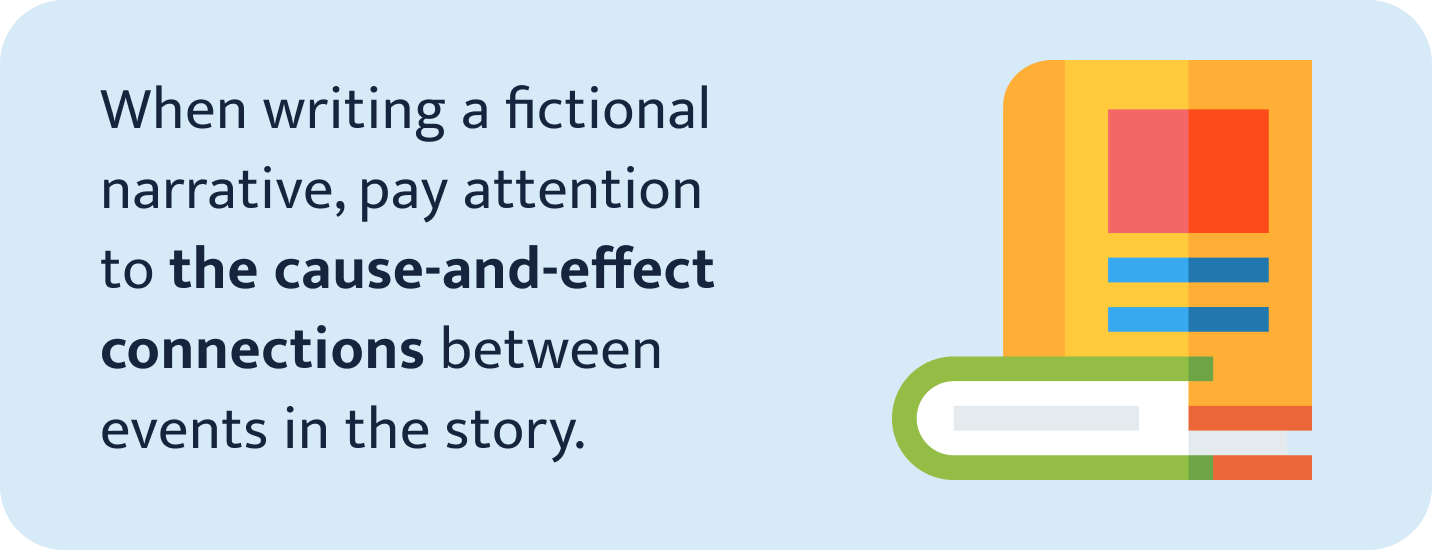
- Write about a hamster that prevented a house robbery.
- A person who saves the country from mass-produced poisoned food .
- A group of high school students helping to improve their city.
- A new civilization in a far away galaxy.
- Write about a grandfather who was secretly a spy.
- A narrative about a person waking up from the surgery with a different identity .
- Create a story about a mysterious musical instrument .
- A college student who won the presidential election.
- Compose a story about a painting that looks different in every new house.
- An anonymous person sends lots of money to the poor.
- Come up with a fictional narrative about a family with unusual tendencies.
- A movie star who lives out their roles in real life.
- Passengers of an airplane encounter a UFO .
- A narrative where a farmer grows strange plants.
- Write about an orphan who finds out about their inheritance .
- Story of siblings who resolve a long-lasting argument.
🧑✍️ Personal Narrative Essay Topics
A personal narrative is devoted to the author’s own experience. Therefore, feel free to write in first person. Include your thoughts and emotions. Do your best to describe the details of your narrative. This will help the reader to relive the story with you. Here is the list of excellent topic ideas for your essay:
- Memories of your first sports coach.
- A story of how you dyed your hair.
- Write about something you did against your parents’ will.
- Recall a day when you got in a fight with your best friend .
- What was the most exciting adventure in your life?
- An unfortunate situation that had a good ending.
- Write about the time when you had to train hard for a competition.
- Describe the turning point of your life.
- An experience when you had to overcome your fear.
- Write about the circumstances that brought you and your parents closer.
- Describe a memorable conversation with someone.
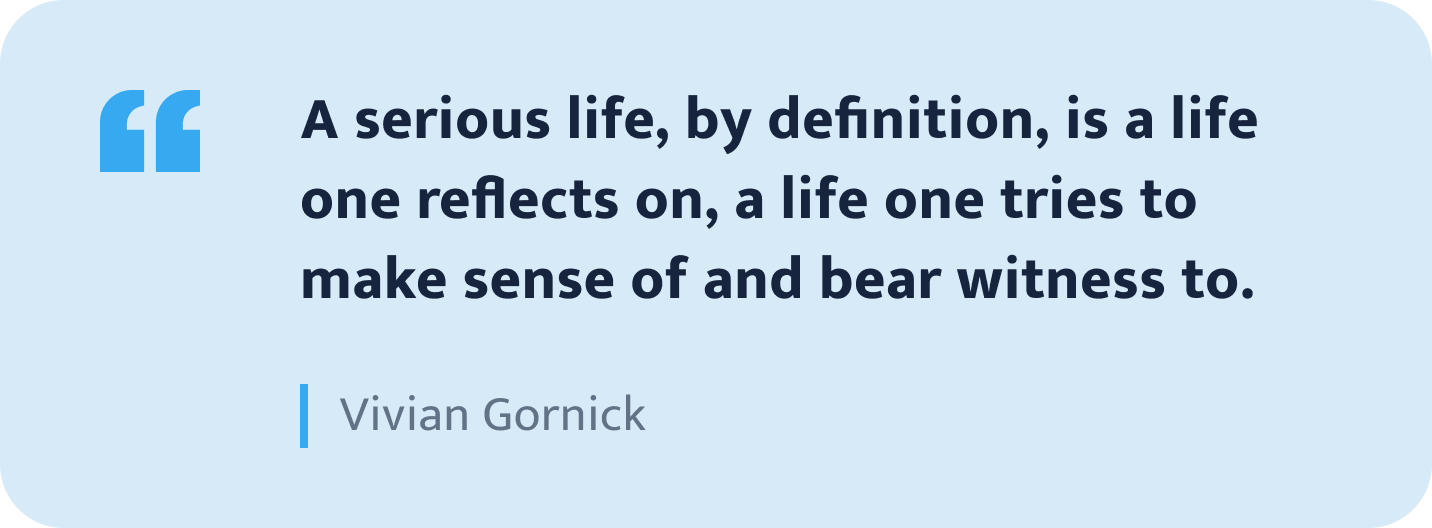
- An imaginary world you’ve created as a child.
- Who gave you the most valuable lesson in your life?
- One time when you regretted doing something.
- A particularly embarrassing situation you went through.
- Your memories of seeing something very beautiful.
- A moment that made you proud of yourself.
- Recall a time when you taught a child to do something.
- What was the most memorable news report you saw in your life?
- Describe a day when you stood up for someone.
- Write about the best birthday party you’ve ever had.
- Share your experience of being lost.
📚 Literacy Narrative Essay Topics
Literacy narrative revolves around reflecting on feelings connected to reading and writing. For this type of essay, think of yourself as a reader and a writer. You can describe any reading experience, whether it is a book, email, or social media post.
- The most touching piece of writing you’ve ever read.
- Write about a book that impacted you the most.
- A news article that changed your view on life.
- What book character do you most identify with?
- Talk about a piece of fiction that captured your imagination.
- What was your favorite novel growing up?
- The scariest story you’ve ever read.
- Recall your emotions after reading a heartfelt social media post.
- What is the most boring book you’ve read?
- Describe a book that you would reread over and over again.
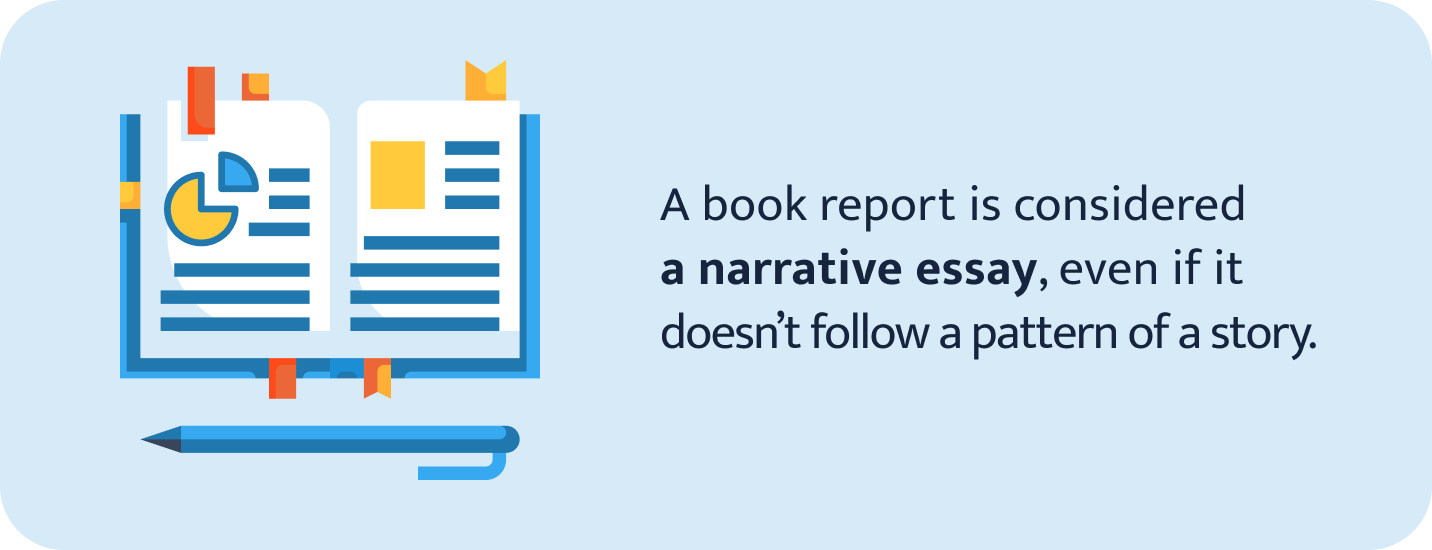
- Your experience of reading a story to a child.
- Have you ever read something that taught you a lesson?
- Do you see yourself becoming a professional writer?
- Recall the day when you had to complete your first writing assignment.
- How does sharing thoughts on social media make you feel?
- If you were to write a book, who would be the main character?
- Talk about the most personal thing you’ve ever written.
- Describe your experience of composing a poem.
- Why can someone have difficulty with writing?
- Recall what it was like to read for the first time.
- What does journaling mean to you?
- Have you ever been proud of something you wrote?
✈️ Narrative Essay Topics about Traveling
In this section, you get to engage your creativity! A narrative essay about traveling is supposed to show the reader what it’s like to explore the world. Present a story taking place in a real or imaginary location:
- Your first time traveling to another country.
- Friends taking a trip to the Great Canyon.
- Write a narrative about traveling to your dream location.
- Describe a trip to the Taj Mahal.
- A day-long road trip.
- Share your experience of visiting a historical site.
- Come up with a story about getting around the airport .
- What to do if you are lost in a foreign country?
- A day in the life of a flight attendant .
- Write about eating unusual foods from around the world.
- Describe talking to a local in a foreign language .
- A narrative about going on a seven-day cruise .
- Tell the reader about the most breathtaking view you’ve ever seen.
- Write a story about riding a train.
- A short narrative about an out-of-state road trip.
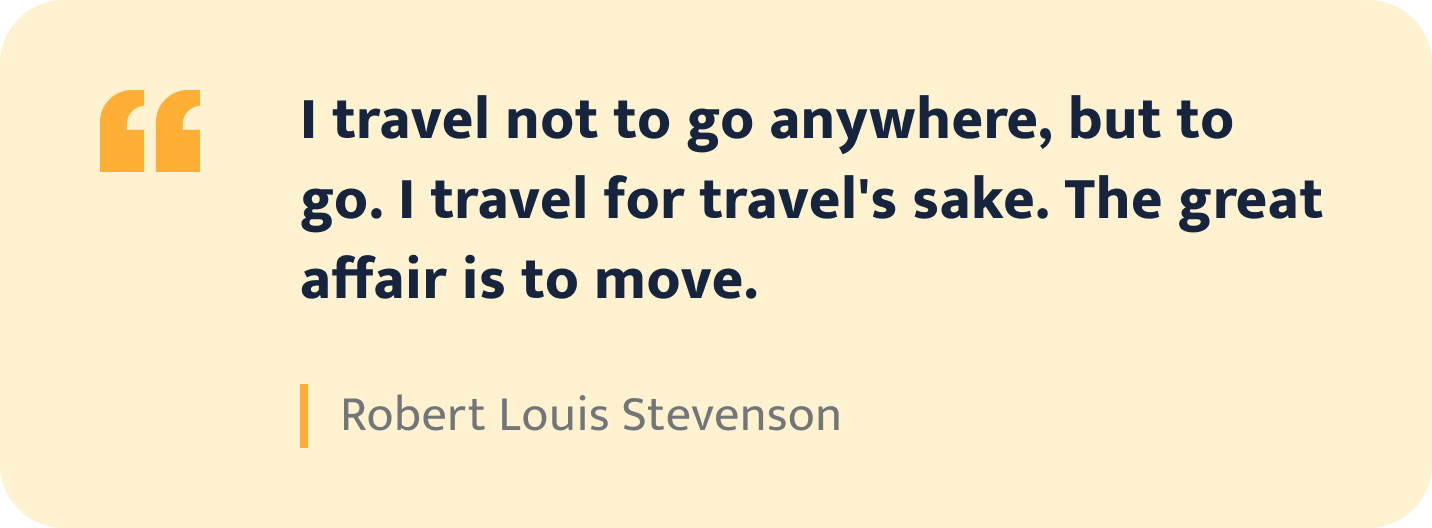
- Traveling to see your family on holidays.
- Come up with a narrative about hitchhiking across America.
- What is it like to travel in the air balloon?
- How to prepare for a trip around the world.
- What to do if your luggage got lost in a foreign country.
- Describe packing a suitcase for a long trip.
- A story about a person missing their plane.
🏫 Narrative Essay Topics about School
This section is for all grades! Writing a narrative essay about school gives you a chance to share your personal experience as a student. You can write about precious memories, challenges, or influential people in your school career. Pick one of the narrative essay topics about school from this list:
🧒 Elementary School
- Write a story with your favorite teacher as the main character.
- Describe your first day at school.
- A fun memory with your best friend.
- What is your favorite thing to do during a break?
- Tell your reader about something interesting you learned in class recently.
- A day when you had to leave school early.
- Recall your favorite celebration with classmates.
- Write about your favorite school subject.
- A story about your most unusual day at school.
- How did you bond with your classmates?
- Come up with narrative about a memorable event at the cafeteria .
- The last day of school before the summer break .
- One time when you forgot to bring something to the class.
- Describe how you worked on a science project.
- The most challenging class you took in middle school.
- A story of how you pranked a friend.
- Have you ever won a school competition?
- The day when you’ve decided on your future profession.
- Write about the teacher who impacted you the most.
- A story of a serious conversation you had about your grades .
- The day when you got in trouble with the principal .
- Reflect on a class you will never forget.
👫 Narrative Essay Topics about Relationships
Narrative essay about relationships focuses on presenting a story about connections between people. You can write about your family, friends, or loved ones. Make sure to pick a statement that you will expand on in your story. Use the following list of narrative writing topics to come up with your narrative about relationships.
- A conflict between generations .
- What is it like to be in love ?
- Write about how hatred can destroy relationships.
- Describe an example of loyalty.
- A story about maintaining friendship via social media .
- Come up with a narrative where people with opposite personalities are getting along.
- Tell the reader about somebody being generous.
- Write about a couple being honest with each other.
- A story where classmates treat each other with respect.
- Describe a family that maintains loving relationship no matter what.
- A story where you help somebody who used to be your enemy .
- How friendliness can brighten up a person’s day.
- Talk about the pain of ending a relationship .

- Children learning from their parents about empathy .
- A narrative about food connecting people.
- Come up with a story about unfulfilled expectations.
- The importance of authentic conversations in a friendship.
- What relational patterns do you see in your family?
- Manifestations of real love in everyday life.
- A story when someone makes a sacrifice for the sake of others.
- Describe a situation where parents are bonding with their child.
- Talk about the most meaningful relationship in your life.
🧸 Childhood Narrative Essay Topics
Childhood narrative essays are about sharing memories from the time when you were little. You can write about playing with friends or a day when you fell off the bike. Or, ask your family members to recall some episodes from your childhood.
- A story of how you received your nickname.
- Write about playing with your favorite toys.
- What is the most memorable place you went to when you were little?
- What kind of friends did you have when you were little?
- Did you ever break anything?
- Recall your earliest childhood memories.
- What was the first valuable lesson you’ve learned as a kid?
- Share your favorite childhood sports memory.
- A story of your first triumph.
- What did you enjoy doing when you were little?
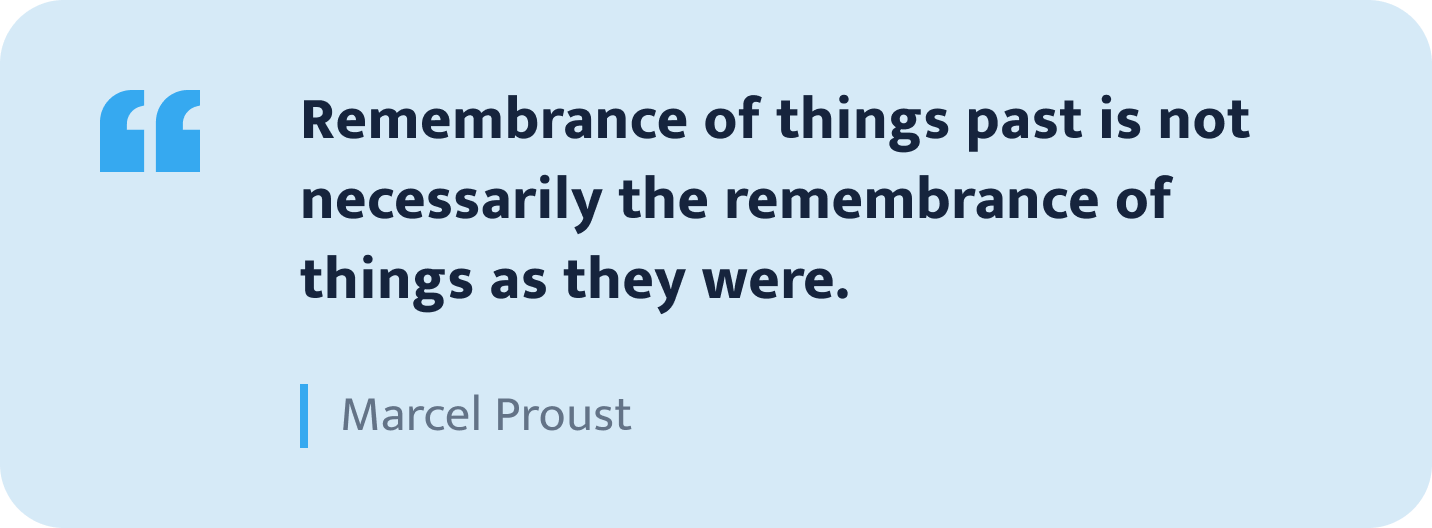
- A moment from your childhood that your parents often recall.
- Which talents did you have when you were a child?
- What was it like to grow up with your siblings?
- Write a narrative about your favorite pet.
- The most memorable childhood moment with your family.
- Were there any challenges you had to overcome as a kid?
- What was your favorite children’s book ?
- Did you ever get lost when you were little?
- An exciting sleepover you had with friends.
- Write a story about how you and your friends went on an adventure.
- A family holiday that you will remember forever.
- What was your favorite food in your early years?
💡 Narrative Essay Writing Guide and Tips
As you already know, writing a narrative essay is very similar to telling a story. Here are a few tips to remember for narrative writing:
- Tip 1: Use your memories. Take time to write down everything you can recall about the event. You can use it as a basis for your paper.
- Tip 2: Be clear. Stick to the main idea of the essay. It’s better not to add characters or details that are not relevant to the story you’re telling.
- Tip 3: Choose words carefully. In an essay words to are like paint on a canvas. The use of vivid language can help you create a story worth reading.
Now, pay attention to this step-by-step guide. It will help you outline an on-point narrative essay:
- Introduction. In the opening paragraph, determine the main idea of the paper. Make a clear thesis that reflects the purpose of your narrative. To help yourself with this part, you can try a narrative essay thesis generator .
In this essay, I want to share my happiest childhood memory of playing with my older brother.
- The body. Since you are writing the narrative essay as a story, make sure to tell the story well. Think through the plot with conflict, climax, and a powerful conclusion. Take your time to introduce the setting and the characters. All this will make your paper entertaining and easy to read.
- Conclusion. Bring your narrative to a logical end. Expanding on the thesis statement will help you write a great conclusion.
Playing with my older brother taught me the true meaning of family, and I’m very grateful for it.
We hope this article helped you figure out how to write a narrative essay!
You may be also interested in:
- How to Write a Narrative Essay: Easy Guide and Useful Tips
- How to Start an Autobiography about Yourself: Full Guide + Autobiography Examples
- How to Write a Creative Essay: Tips, Topics and Techniques
- Breaking Down the Types of Essays: a Complete Guide for Success
🔍 References
- Narrative Essays: Purdue University
- Nailing the Craft of Narrative Writing: WeAreTeachers
- Narrative and Reflection Writing Samples: Western Technical College
- Drafting a Narrative: Walden University
- Scholarly Personal Narrative: University of Vermont
- The Power of Personal Narratives in the Classroom: University of Washington
- Fiction Writing Basics: Purdue University
- How to Write a Literacy Narrative: Pen and the Pad
- Literacy Narratives: UNC Charlotte
- Share to Facebook
- Share to Twitter
- Share to LinkedIn
- Share to email

Similar to the instructions in a recipe book, process essays convey information in a step-by-step format. In this type of paper, you follow a structured chronological process. You can also call it a how-to essay. A closely related type is a process analysis essay. Here you have to carefully consider...

In a classification essay, you divide the subject into categories. To create these categories, you single out certain attributes of things. You can classify them according to their characteristics, themes, or traits. Sounds complicated? Be sure that any high school or college student can manage this type of essay!

Throughout your high school years, you are likely to write many evaluative papers. In an evaluation essay you aim is to justify your point of view through evidence.

Immigration is a permanent move to a foreign country. It takes place all over the globe, including the United States. It played an important role in history, and it continues to influence society today. This article offers a variety of immigration essay topics. They are suitable for college-level works, as...

Should you buy a green or a red apple? Before making a decision, people often compare their options. In a compare and contrast essay, you analyze the similarities and differences between certain things. In this article, you’ll find interesting and easy compare and contrast essay topics for college, high school...

An opinion essay requires a student to present a point of view on a chosen subject and back it up with substantial evidence. Like in a debate, the writer has to give their opinion and defend it while using scholarly resources. This article will help you find a good opinion...

When you start studying philosophy, you may think it’s boring and has nothing to do with the real world. It couldn’t be further from the truth! The study of philosophy deals with the most exciting and mysterious aspects of reality. It is closely connected with science, psychology, art, and politics....

It would be great if economics in college would just teach you how to save and make money. In reality, however, students usually write research papers on micro- and macroeconomics topics to learn about the production and consumption of goods on an international level.

The corporate world is the world of the future – there’s no doubt about that. And education in ABM will help you conquer it! What is ABM strand, exactly? ABM stands for Accountancy, Business, and Management. Future leaders and entrepreneurs pursue education in this field to learn the skills essential...

If you are a psychology student and you think that Mindhunter is just not good enough, you are not alone! Psychology is one of the most exciting research areas. It is one of the reasons why Custom-writing.org experts prepared as many as 191 psychology research topics! 🔝 Top 10 Communication...

There is a big difference between research conducted in science and humanities. Scholars in humanities and social sciences (HumSS strand) are more interested in questions rather than answers. Interpreting the known facts and looking at them from a new perspective is also a part of research in HumSS. There are...

The importance of health research can’t be underestimated. It helps move medicine forward and save millions of people. It also promotes various preventive techniques that help us live longer and safer lives.
Narrative Essay Writing
Narrative Essay Topics

Interesting Narrative Essay Topics and Ideas
16 min read
Published on: Mar 22, 2023
Last updated on: Mar 25, 2024

People also read
How to Write a Narrative Essay in Simple Steps
20+ Top Narrative Essay Examples by Experts
Personal Narrative Essay - Easy Guide & Examples
Share this article
Unlike other forms of academic writing, narrative essays focus on personal experiences, anecdotes, and reflections. They aim to engage readers through vivid storytelling, allowing them to connect emotionally with the narrative.
However, finding the right topic can sometimes be challenging.
In this guide, we'll look into the narrative essay topic examples, explore various themes, and provide valuable tips to help you choose the perfect topic for your narrative essay.
Let’s jump in!
On This Page On This Page -->
Narrative Essay Topics for Students
If you're a student, you probably have to write an essay at some point. Getting an interesting topic idea is not easy. We have gathered some essay topics for different academic levels to help you with the task.
Let's dive right into the narrative essay topics list without any delay.
Narrative Essay Topics For University Students
- The worst interview of your life
- A time when you discovered something precious
- A time when you were insulted or disrespected
- A time you discovered one of your skills
- The moment when your loved one was hurt
- The moment when your best friend had an accident
- The day your father caught you smoking
- A mistake that taught you something significant
- An action you thought would help the person but got you in trouble.
- The moment when someone else's experience saved your life
- The time when you underestimated a junior
- How has practicing helped you become a professional?
- The time when your beliefs were shaken
- An event that made you feel sorry about a person
- The time when you had to let go of one of your most important things
Narrative Essay Topics For College Students
- First experience of living in a hostel
- The worst roommate ever
- Frightening memory of your childhood
- Why you chose a specific major
- What studying in a dream college feels like?
- The most healthy part of your routine
- The time you inspired someone
- What should you tell your younger self?
- Your favorite author and his work that you most relate to
- A moment when your joke offended your friend
Narrative Essay Topics For Grade 12
- Your favorite activities in your leisure time
- How you overcome your fears
- The hardest thing you did in life
- What regrets do you have in life?
- Your biggest motivation to score well in academics
- Share a cherished family tradition and its impact on you.
- Recall a moment where you stood up for your beliefs.
- Discuss a tough decision and its impact on your character.
- Explore a memory that highlights the value of friendship.
- Reflect on a book, movie, or art that shaped your perspective.
- Overcome a setback or failure and what you learned.
Narrative Essay Topics High School
- The most interesting summer school memory
- The moment when you saw your favorite actor in real life
- The first time you helped a needy person
- How you became friends with your best friend
- A person who left a deep influence on you
- The day when you became a class representative
- Your first speech on the stage
- Your first term paper
- Your favorite high school studentâs profession
- The first time you stood up for something you believed in
Narrative Essay Topics For Grade 10
- A time when you had to stand up for something you believed in
- The most significant challenge you have faced in your life so far
- A moment that changed your life forever
- A decision that you regret making and what you learned from it
- A person who has had a significant impact on your life
- A time when you learned an important life lesson through a mistake you made
- A trip that you will never forget
- A time when you felt like you had to prove yourself to someone
- A moment when you felt like giving up, but you pushed through anyway
- An experience that helped you discover something new about yourself.
Narrative Essay Topics For Grade 9
- A time when you overcame a fear
- The most memorable day of your life
- A difficult decision you had to make
- The first time you tried something new
- A moment when you learned an important life lesson
- An experience that changed your perspective on something
- A time when you made a mistake and what you learned from it
- A memorable trip you went on
- The first time you fell in love with a hobby or activity
- A moment when you felt proud of yourself for overcoming a challenge.
Narrative Essay Topics For Class 7
- My favorite sibling
- Betrayal in friendship
- Why is television so important in your life?
- A hobby of yours that you recently adopted
- The most memorable farewell
- A memorable encounter with a new friend
- The day when you became a class representative
- Your dream college
- Your favorite profession
Narrative Essay Topics For Class 6
- The time when you underestimated a junior
- The time when your beliefs were shaken
- An event that made you feel sorry about a person
- The time when you had to let go of one of your most important things
- Your favorite activities in your leisure time
- The most adventurous thing you've ever done
- Your biggest motivation to score well in academics
Narrative Essay Topics For Grade 5
- Your first day at school
- Your favorite teacher
- Your best winter vacations
- The happiest day of your life
- Your best birthday ever
- The moment when you got lost in a mall
- The most painful injury
- Your first pet
- The feeling of losing loved ones
- The hardest goodbye

Tough Essay Due? Hire Tough Writers!
Short Narrative Essay Topics
- Exploring family traditions
- Narrating standing up for beliefs
- Recounting a tough decision
- Reflecting on the value of friendship
- Sharing shaping perspectives
- Reflecting on overcoming failure
- Revisiting meaningful places
- Delving into a social passion
- Narrating stepping out of comfort zones
- Reflecting on influential role models
Best Narrative Essay Topics
- An unexpected act of kindness
- A transformative travel experience
- The day everything changed
- Lessons learned from failure
- A secret that changed everything
- Discovering my passion
- The power of forgiveness
- A moment of serendipity
- Conquering my greatest fear
- Lessons from a cultural exchange
Topics For Narrative Essays on Themes
Narrative essay themes contain a range of subjects and ideas that serve as the central focus or underlying message of the narrative. These themes often reflect aspects of human experience, emotions, relationships, and societal issues.
Here are some common narrative essay themes and their topic ideas:
Childhood Memories Narrative Essay Topics
- My favorite toy from childhood
- Exploring my grandparents' house
- Building forts and imaginary worlds
- The day I lost my first tooth
- Baking cookies with my mom
- Playing hide and seek in the neighborhood
- My first pet and our adventures together
- Celebrating holidays with family traditions
- Exploring nature in my backyard
- The joy of making new friends in kindergarten
Life Lessons Narrative Essay Topics
- Overcoming stage fright during a school performance
- Finding strength through a sports injury
- Learning patience through gardening
- Embracing change after moving to a new city
- The value of empathy in understanding others
- Discovering inner courage during a difficult decision
- The power of forgiveness in healing relationships
- Finding beauty in imperfection and embracing flaws
- The rewards of volunteer work and helping others
- Overcoming self-doubt through creative expression
Personal Growth Narrative Essay Topics
- Exploring my cultural heritage through food and traditions
- Overcoming language barriers in a foreign country
- Finding confidence through public speaking
- Rediscovering creativity through art and music
- Exploring new career paths and passions
- Finding balance between work, family, and self-care
- Embracing vulnerability and authenticity in relationships
- The journey of self-discovery through traveling alone
- Overcoming limiting beliefs and embracing personal power
- Learning to set boundaries and prioritize self-respect
Relationships Narrative Essay Topics
- The bond between siblings: shared adventures and conflicts
- Lessons learned from a long-distance friendship
- Reconnecting with an estranged family member
- The influence of a childhood teacher on personal development
- Building trust and communication in romantic relationships
- Exploring the dynamics of multigenerational relationships
- Navigating friendships through life transitions
- Overcoming misunderstandings and repairing relationships
- The role of pets in family dynamics and emotional support
- Exploring the meaning of unconditional love through relationships
Social Issues Narrative Essay Topics
- Empowering youth through education and mentorship
- Exploring access to healthcare in underserved communities
- Addressing mental health stigma and promoting awareness
- Bridging the digital divide: access to technology and information
- The impact of climate change on local communities
- Exploring racial justice and equity in society
- Overcoming barriers to LGBTQ+ equality and acceptance
- Supporting refugees and building inclusive communities
- The importance of intersectional feminism in social justice movements
- Promoting diversity and inclusion in educational settings
Personal Narrative Topics
A personal narrative essay is a type of essay in which the writer shares a personal story, experience, or event from their own life. In this section, we will look into some different personal narrative ideas:
Personal Experience Narrative Essay Topics
- Overcoming a fear of public speaking
- The day I conquered my greatest phobia
- Learning to embrace vulnerability and authenticity
- A life-changing encounter with a stranger
- Navigating a crossroads: choosing between passion and stability
- Finding resilience through adversity
- The transformative power of self-reflection
- Lessons learned from a failed business venture
- Exploring the joys and challenges of parenthood
- Overcoming cultural barriers in pursuit of personal growth
Personal Narrative Essay About Friendship
- The unlikely friendship that changed my life
- Weathering storms together: the strength of true friendship
- Navigating the ups and downs of high school friendships
- From strangers to soulmates: a journey of friendship
- The power of empathy in strengthening friendships
- Exploring cultural differences through friendship
- The art of forgiveness: repairing broken friendships
- Lessons learned from a childhood best friend
- Finding support and laughter in friendships across generations
- Celebrating diversity: embracing friendship beyond borders
Personal Narrative Stories Ideas on Traveling and Holidays
- A solo journey to self-discovery
- Living with locals in a foreign land
- Traveling alone to remote destinations
- Exploring culinary delights around the world
- The joy of spontaneity
- A holiday to remember
- Traveling through time
- From backpacker to business class
- Discovering hidden gems off the beaten path
- Family road trips
Fictional Narrative Essay Ideas
- Lost in a parallel universe: A journey through time
- The last survivors of a post-apocalyptic world
- A magical creature's quest for home
- The secret society of time travelers
- Escaping from a dystopian society
- Adventures in a virtual reality game
- Discovering a hidden portal to another dimension
- The mystery of the abandoned spaceship
- Guardians of the enchanted forest
- A quest for the legendary artifact of power
Literacy Narrative Essay Topics
- How a childhood book shaped my imagination
- Learning to read and write in a second language
- Discovering the power of poetry through personal experience
- The influence of storytelling in family traditions
- Overcoming dyslexia: My journey to literacy
- Exploring literary classics through different cultural lenses
- The impact of technology on reading habits
- The role of libraries in nurturing a love for reading
- Finding my voice through creative writing workshops
- Using literature to navigate life's challenges
First-Person Narrative Essay Ideas
- My journey through a haunted house on Halloween night
- A day in the life of a street performer in New York City
- Surviving a wilderness adventure in the Rocky Mountains
- Exploring the abandoned mansion at the edge of town
- My experience as a volunteer in a refugee camp
- Racing against time: My first marathon experience
- Finding love in unexpected places: A summer romance
- The night I spent stranded on a deserted island
- Becoming a detective for a day: Solving a mystery in my neighborhood
- My encounter with a UFO: An unforgettable extraterrestrial experience
Funny Narrative Essay Topics
- The misadventures of my clumsy pet cat
- Embarrassing moments during family gatherings
- My hilarious attempt at learning a new dance
- Surviving a disastrous cooking experiment in the kitchen
- The comedy of errors: my unforgettable road trip
- Accidentally sending a funny text to the wrong person
- The day I accidentally wore mismatched shoes to school
- My awkward encounter with a celebrity lookalike
- The unintentional pranks I played on April Fools' Day
- When auto-correct turns texting into a comedy show
Tips to Choose the Right Narrative Essay Topic
When selecting a narrative essay topic, consider the following tips:
- Authenticity: Choose topics that align with your personal experiences and values.
- Relevance: Select topics that are relevant and meaningful to your intended audience.
- Engagement: Opt for topics that are engaging and thought-provoking, sparking curiosity and empathy in readers.
- Scope: Ensure that the topic allows for sufficient depth and exploration within the confines of a narrative essay.
If you want to get an idea of writing a narrative essay, visit our narrative essay examples blog and get access to free PDF examples.
Summing it up!
Essays provide a unique opportunity to share personal experiences, insights, and reflections with readers. By choosing the right topic and crafting a compelling narrative, you can engage and inspire your audience.
Remember to infuse your writing with authenticity, emotion, and vivid detail to create narratives that resonate long after they're read.
If you find yourself short on time or unsure where to begin, seeking professional assistance is always an option. The custom essay writing service at CollegeEssay.org is here to help you with your writing needs.
Additionally, don't forget to try our essay writer AI tool for further assistance!
Cathy A. (Literature, Marketing)
For more than five years now, Cathy has been one of our most hardworking authors on the platform. With a Masters degree in mass communication, she knows the ins and outs of professional writing. Clients often leave her glowing reviews for being an amazing writer who takes her work very seriously.
Paper Due? Why Suffer? That’s our Job!

Keep reading

Legal & Policies
- Privacy Policy
- Cookies Policy
- Terms of Use
- Refunds & Cancellations
- Our Writers
- Success Stories
- Our Guarantees
- Affiliate Program
- Referral Program
- AI Essay Writer
Disclaimer: All client orders are completed by our team of highly qualified human writers. The essays and papers provided by us are not to be used for submission but rather as learning models only.

150 Narrative Essay Topics
If you're looking for a more creative approach to writing essays, narrative essays might be a great option for you. With narrative essays, you have the freedom to tell a story and use your own personal experiences to make a point.
Whether you're writing a personal narrative or an experiential essay, you'll want to make sure that you're engaging your reader and conveying your message effectively. This is where custom essay writing services and coursework writing services can be incredibly helpful. With the assistance of professional writers, you can develop a compelling narrative essay that is both engaging and informative.
Overall, writing a narrative essay can be a fun and rewarding experience. Whether you're reflecting on a personal experience or sharing an anecdote, remember that the goal is to make a point and connect with your audience. So why not give it a try and see what stories you can tell? And if you need any assistance, don't hesitate to reach out to a " write my essay" or " write a paper for me" service for help.
What is a Narrative Essay?
A narrative essay is a less formal form of academic writing where the goal is to see whether you can tell a story clearly in an engaging manner. It follows the typical format of an essay with an introduction, body paragraphs, and a conclusion but also incorporates classic story writing elements like plot, setting, character, climax, and ending.
This kind of essay is written from a defined point of view, usually yours, so writing in the first person is recommended unlike most other forms of academic writing. You still need to make a point though, so include a thesis statement in your first paragraph and refer to it again in the conclusion.
Many college application essay prompts are narrative writing, for example - describe the most significant achievement of your life. Learning how to write a good narrative paper has use beyond just college essays though, a majority of online content now is based on telling engaging stories. Read on to know more about narrative papers and find a list of 150 fascinating topics for narrative essays.
How to Choose a Topic for a Narrative Essay
Choosing good narrative essay topics are crucial for a few reasons. The story you tell will most often draw from your own experiences and thoughts, so choose a topic that you know well or are well-informed about. Additionally, since the story has to have a purpose, select a topic that has broad potential and narrow it down to tell your unique story. Remember the following things when choosing a topic for a narrative essay.
The key thing to remember is that you’re telling a story
Because a narrative essay is so unlike most academic writing assignments, a common mistake is writing sections like a dry academic assignment. It’s for school, but that doesn’t mean you can’t deliver an experience. It’s about crafting an engaging piece of storytelling while revealing something impactful through the story.
Choose an interesting or meaningful idea to explore
This is a great time to write about something that is particularly important in your life or something you are passionate about. Topics can range from your thoughts and ideas about a concept to an obscure activity that you enjoy.
The pre-writing stage is critically important
A good story flows well and includes details that draw the reader in, but it also has to deliver some idea or message. Collecting information and planning ahead to create an outline for your essay will smoothen your writing process.
Don’t forget to have fun with it!
The story you tell should be engaging, which means you have the freedom to experiment! Drawing from several different but interconnected life experiences, or telling the story from the perspective of an inanimate object are some interesting ways to make your essay stand out.
But remember that it’s still an essay
Even though it’s storytelling, you’re still writing an essay, which means it needs to follow the classic essay structure. Based on the word count, plan how many body paragraphs you need (minimum 3 ALWAYS). Your first sentence should still have a hook, and your first paragraph still needs to have a thesis statement. The story that unfolds in the body paragraphs shouldn’t drift from your thesis statement, and your conclusion needs to end the story as well as reiterate your thesis.
Struggling with the Topic for Your Narrative Essay Homework?
Get your assignments done by real pros. Save your precious time and boost your marks with ease.
150 Unique Topics for Narrative Essay
It can be quite tough to think of something meaningful to write your essay about, but almost any experience you have can be an interesting topic. For one person, the first time they played a sport could be a traumatic experience, for another it could be life-changing. Only you know your experiences and thoughts. Here’s a list of narrative essay topics that you can use to start the brainstorming process and spark your imagination.
College narrative essay topics
College is a time of new experiences. So much happens that it shouldn’t be difficult to choose something to write about. The essay you write can be more descriptive, focussing on your sensory observations of an experience, or more contemplative, focusing on new thoughts and feelings. Take a look at these narrative essay topics for college students.
What was it like getting your first acceptance letter?
How you chose which college to go to
Your first day leaving home and coming to campus
Meeting your roommate and whether it went well or not
Your first college party
Your favorite class
Losing touch or staying in touch with friends from high school
The best day in college so far
The difference between sports in high school and college
How you realized college was easier or tougher than you thought it would be
What it was like being in a class with 200 students
Your experience with an extracurricular you had never tried before
Going home for the first time after attending college
Finding a subject you never thought you would like
How did you start feeling truly comfortable in college?
Narrative essay topics for high school students
High school years are chaotic. The changes in students and their social expectations can be frustrating, challenging, and exhilarating. Essays about many important firsts can be drawn from high school. Here are a few examples of narrative essay topics related to high school.
The best day of freshman year
A time you were bullied and stood up for yourself
A time when you were bullied and felt helpless
Your most significant social accomplishment
What was a meaningful volunteering experience you had?
Your proudest moment in a sporting event
Losing a valued friend
Your first highschool dance
Why your favorite teacher became your favorite teacher
When you realized what you want to pursue as a career
The best video game moment you had
An embarrassing moment in school and how you overcame it
Your best social media moment
The buildup to graduation day
An experience helping another student
Personal narrative essay topics
Since narrative essays are often written in the first person and rely on the experiences and thoughts of the author, they can all be considered personal, but a personal essay asks you to specifically tell a story about a time that changed you in a meaningful way. Here are some topics for writing a narrative essay about personal moments and revelations.
A summer vacation adventure that involved heroics
Describe an experience you had in a foreign country that made you feel lucky to be from your country
Your first time following a YouTube tutorial
Your excitement at watching the newest star wars/lord of the rings/Marvel Cinematic Universe etc. movie
Bonding with a new pet
The moment you realized that you admire some traits in a person and want to be like them
A situation that changed your relationship with your parents
A situation when you had to deal with the police
Witnessing an event that needed you to call the police
Your best leadership moment
Your experience attending a large event (politics, religion, sports, etc)
The most meaningful time in church or any religious moment of significance
An experience that humbled you
A situation where you made a serious mistake
A time you had to learn from adversity
Narrative argument essay topics
Like any narrative essay - the goal is to tell a story, but like any argument essay - the goal is to convince or persuade the reader to agree with your viewpoint. Writing an effective narrative argument essay incorporates convincing arguments into the story itself. The trick is finding a balance between getting lost in telling the story and forgetting about storytelling and convincing the reader. Here are a few examples to help you find a topic for a narrative essay.
A time when you convinced somebody against a conspiracy theory
A moment that made you more religious or spiritual
A moment that made you less religious or spiritual
Your favorite trip and why the place you went to is fantastic
How you discovered your favorite art style
The first time you played a new genre of game and why it’s the best
Your experience attending a conference or event about climate change
Watching a movie, tv-show, youtube video, or any media that changed your mind
A situation where you had to verbally defend yourself or a friend
An observation about income disparity gained by working in a soup kitchen/homeless shelter etc.
An experience you’ve had talking to somebody with different political beliefs
A conversation about gender identity with an older person
Seeing the police behave appropriately or inappropriately
Your experience with love and how you developed your definition of it
A time you had to swallow your pride and hold your tongue
Easy narrative essay topics
Here’s a list of some good topics for a narrative essay that most people have experience with and can write about but are still interesting enough to create an engaging story for the reader. Below are some easy but interesting narrative essay topics.
A hike, picnic, or walk that made you appreciate nature
Visiting a particularly awesome amusement park
An especially romantic date
Your first trip to a big city
Your first trip to a foreign country
Discovering a new movie genre
The thrill of watching horror movies
A regular day in your life
A moment when you gained respect for your parents, teachers, or friends
The time you saved an animal
How you broke a bad habit
How you developed a new skill
Your experience at a zoo
The first time you went bowling (tried any new game)
Your happiest day
Did you like our inspiring Narrative Essay Guide?
For more help, tap into our pool of professional writers and get expert essay editing services!
Cultural narrative essay topics
Some of the most mind-expanding experiences happen when looking at and understanding a different culture or by analyzing your own culture from an outsider’s perspective. Cultural narrative essay topics are particularly useful when applying to colleges or applying for grants or scholarships for exchange programs.
What you learned from a trip abroad
How the lives of people in various socio-economic brackets are different
Observations on which basic things are different in different countries
How your cultural identity has changed over time
Sleeping over at a friends house from a different cultural background
Describe some unique personal family traditions
An experience where your culture/race/religion affected the situation around you
How you learned to fit in with a different culture
You first experience living in a foreign country
Discovering new subcultures like anime, gaming, k-pop, etc
Your favorite traditions from foreign cultures
How you understood your cultural heritage better
A time when you realized the impact of media on the perspective of other cultures
Getting over stereotypes because someone behaved differently than what you expected
Celebrating a different festival for the first time
Autobiographical narrative essay topics
Autobiographical narrative essays as you to specifically describe and talk about things in your life that impacted you. Take a look at the narrative essay topics below for inspiration.
Your first memory
Your first meaningful memory
Your first day of school
Your relationship with your grandparents
Finding out a shocking family secret
Your proudest achievement as a child
Your favorite childhood hobby
The best day of middle school
A time when you lost something important
How you dealt with losing someone close to you
Discovering your favorite musician
Your first kiss, date, or relationship
The worst day of your life
Why certain things are so meaningful to you
Which people have influenced your life significantly?
Fictional narrative essay topics
Fictional narrative essay topics are an opportunity to flex your creativity. Put yourself in the shoes of someone else, or in a fantastic situation and write a story! These are some narrative essay topics to choose from down below.
What it would be like traveling to Mars
What you would do with a million dollars
Describe a particularly vivid dream
A day in your life if you woke up as the opposite sex
What it would be like to be a professional gamer
What it would be like to have 100,000 Instagram followers
A day at the zoo from the perspective of an animal
A day in the life of a child from a very wealthy family
A day in the life of a child from a war-torn country
What it would be like to have your own talk show
What would you do if you were president?
What would you do if you were a dictator?
What it would be like to be a superhero
Tell a story based on your favorite work of art
A hypothetical dinner with your favorite celebrity
Best narrative essay topics - our choice
The best narrative essay topic ideas are going to be different for every individual. This section is going to choose some topics that offer the most space for creativity, are interesting to write about, or offer a broad chance for self-reflection.
Your earliest sad memory
How you realized someone had become a role model
A day in the life of your favorite fictional character
The thrill of winning
The heartbreak of loss
Understanding gender identity
A clash of culture
A new discovery
Finding your favorite hobby
Performing beyond expectation
Overcoming personal trauma
Helping someone in need
A life-changing trip
Enjoying nature
Questioning the status quo
More interesting narrative essay topics
Think about these situations and ask yourself if any of these or something similar happened to you and makes for a good story. Enjoy these interesting narrative essay topics!
The best way to win at a particular video game
The process of creating a good TikTok
Why binging a show is the best way to consume media
What it’s like being lost in a virtual world
A time you were convinced to try something new
Discovering a new favorite food
What dancing means to you
The saddest scene in media
The funniest babysitting moment
Your first day at a job
A time you asked for help
What it feels like to end a good book
A time where you panicked
A time you were kind to someone
Final thoughts
A narrative writing is unlike most other forms of academic writing. This can make it challenging for students, but as long as you think about it as writing a story and choose the right topic for a narrative essay, they are actually a joy to write! Here are a few key things to remember as you write your essay.
A narrative essay uses the story structure - beginning, middle, and end, as well as plot, climax, setting, and characters
Spend time on the prewriting phase to gather your thoughts and plan an outline
Don’t lose track of the main purpose of the story
Generally, write in the first person, but the third person can be used as well
Use vivid words and explain sensory details
Above all, have fun and engage the reader as much as you can
Featured Posts
Definition essay topics.

Cause and Effect Essay Topics

180 Persuasive Essay Topics

100+ Narrative Essay Topics for your Next Assignment
Writing a narrative essay should be fun and easy in theory. Just tell your readers a story, often about yourself. Who knows you better than you? You should ace this!
Unfortunately, narrative writing can be very difficult for some. When a teacher leaves the topic choice wide open, it’s tough to even know what to write about. What anecdote from your life is worth sharing? What story is compelling enough to fill an entire essay?

Narrative writing will show up for the rest of your life. You’ll need to tell life stories in college essays, in grad school applications, in wedding speeches, and more. So learning how to write a narrative essay is a skill that will stick with you forever.
But where do you begin?
You can always check out essay examples to get you started, but this will only get you so far.
At the end of the day, you still need to come up with a story of your own. This is often the toughest part.
To help you get things kicked off, we’ve put together this list of more than a hundred topic ideas that could easily be turned into narrative essays. Take a look and see what stands out to you!
Choosing a Topic
Narrative essays fall into several categories. Your first task is to narrow down your choices by choosing which category you want to explore.
Each of these categories offers a stepping off point from which you can share a personal experience. If you have no idea where to begin, reflecting on these main categories is a great place to start. You can pick and choose what you feel comfortable sharing with your readers. This list is not exclusive—there are other areas of your life you can explore. These are just some of the biggies.
As you explore categories, think about which one would be the best fit for your assignment. Which category do you have the strongest ideas for? Which types of stories do you tell the best?
These categories include:
Childhood Tales
Educational background, travel and adventure, friends and relationships, experiences and defining moments, my favorite things, ethics and values.
Once you’ve selected a category, it’s time to see which topic piques your interest and might intrigue your audience as well. These topics are all a natural fit for a story arc , which is a central part of a narrative essay.
Writing about your childhood can be a great choice for a narrative essay. We are growing and learning during this delicate and often awkward time. Sharing these moments can be funny, endearing, and emotional. Most people can relate to childhood events because we have all survived it somehow!
- A childhood experience that defined who I am today
- A childhood experience that made me grow up quickly
- My best/worst childhood memory
- My favorite childhood things (games, activities, stories, fairy tales, TV shows, etc.)
- What I remember most about my childhood
- How I used to celebrate holidays/birthdays
- My best/worst holiday/birthday memory
- What I used to believe was true
- The oldest memory I have
- The most valuable possession from my childhood
- What I would tell my younger self
- What my friends were like when I was younger
Your educational experience offers a wealth of ideas for an essay . How you’ve learned and have been inspired can help others be inspired too. Although we were all educated in one way or another, your educational experience is uniquely your own to share.
- First day of school/junior high/high school/college
- First/most memorable school event
- My favorite/worst school years
- My favorite/worst teachers
- My favorite/worst school subjects
- What recess was like for me
- My experiences in the school cafeteria
- How I succeeded/failed in certain classes
- Life as a student (elementary, junior high, high school, college)
- The best/worst assignment I ever completed for a class
- Why I chose my college
- First novel I read for school
- First speech I had to give
People love to read about adventures. Sharing your travel stories transports your reader to a different place. And we get to see it through your eyes and unique perspective. Writing about travel experiences can allow your passion for diving into the world shine through.
- My first time traveling alone
- My first time traveling out of the country
- The place I travel where I feel most at home
- My favorite/worst travel experience
- The time I spent living in a hostel/RV
- The time I spent backpacking around a country
- Traveling with friends/family/significant other
- Best/worst family vacation
- Most memorable travel experience ever
- Places I want to visit
- Why I travel
- Why I cruise/climb mountains/camp/fly/drive
- Trying to speak another language
- How I prefer to travel
- How I pack to travel
The good, the bad, and the ugly. We all have family stories that range from jubilantly happy and hilarious to sad and more serious. Writing about family can show your reader about who you are and where you come from.
- Family traditions that you enjoy/dislike
- What your parents/siblings are like
- What your family members (mom, dad, grandparents, siblings, etc.) have taught you
- What being the oldest/youngest/middle/only child was like
- Family members who made the most impact on your life
- Most memorable day with a family member
- How a pet changed my family’s life/my life
Friends, enemies, and loved ones come in and out of our lives for a reason. And they provide great material for writing. If relationships exist to teach you something, what have you learned? Writing about those you’ve connected with demonstrates how others have influenced your life.
- My most important relationship
- How I work on my relationships
- What I value in my relationships
- My first love/relationship/breakup
- Losing/Gaining a close friend
- How my friendships have changed/evolved
- The person I’m afraid of losing the most
- How technology has affected my relationships
- The worst argument I’ve had with someone
- What happened when I was rejected
It was the best of times, it was the worst of times... sharing your best times and sharing your worst times can make great stories. These highs and lows can be emotional, funny, and thought-provoking.
- The event that most defines who I am today
- The best/worst day of my life
- The most embarrassing/frightening moment of my life
- A moment that taught me something
- A moment where I succeeded/failed
- A time when I was hurt (physically or emotionally)
- A time when I gave up hope
- An experience when I had to overcome challenges (fear, intimidation, rejection, etc.)
- My greatest accomplishment
- The time I learned to accept/love/be okay with myself
- The most difficult time in my life
- The toughest thing I’ve ever done
- My first time surviving something alone
Explaining to others what you love and why can really paint a picture of who you are and what you value. It’s important to note that simply sharing a favorite isn’t a very deep topic. However, you can take this topic deeper by expressing how this favorite has impressed you, inspired you, and affected your life.
- My favorite author/poet/playwright
- My favorite movie/book/song/play/character
- My favorite actor/actress/director
- My favorite singer/musician
- My role model
- What I like to do to relax
- My favorite activities/games/sports
- How I handle stress and tough times
- Why I dance/sing/write/journal/play sports/bake
Where you stand on deep issues tells a lot about you. Taking a stance and explaining your opinion on tough topics reveals some insight into your ethical reasoning.
- The most difficult decision I have made
- How I treat people/strangers
- A time I faced a moral/ethical dilemma
- A decision I regret
- A lie I have told
- When I rebelled against someone in authority
- My most important life rule
- The principle I always live by
Situational prompts allow you to step out of your past and picture a different future. If digging into your past experiences seems scary and intimidating, then look to your future. What you imagine can be insightful about your life and where you see yourself heading.
- If I had a million dollars...
- If I were famous...
- If I could change history...
- If I had no fear...
- If I could change one thing about myself...
- If I had one extra hour a day...
- If I could see the future...
- If I could change the world...
- If I could have one do-over in life...
Writing a narrative essay can seem daunting at first. Sharing a bit of yourself with the world is a scary thing sometimes. Choosing the right topic, however, can make the process much smoother and easier.

Browsing through topic ideas can inspire you to pick a topic you feel you can tell a story about and that can take up a full essay. Once you have a quality story to tell, the rest of the pieces will fall into place.
How to Write Essay Titles and Headers
Don’t overlook the title and section headers when putting together your next writing assignment. Follow these pointers for keeping your writing organized and effective.
101 Standout Argumentative Essay Topic Ideas
Need a topic for your upcoming argumentative essay? We've got 100 helpful prompts to help you get kickstarted on your next writing assignment.
Writing a Standout College Admissions Essay
Your personal statement is arguably the most important part of your college application. Follow these guidelines for an exceptional admissions essay.
- Words with Friends Cheat
- Wordle Solver
- Word Unscrambler
- Scrabble Dictionary
- Anagram Solver
- Wordscapes Answers
Make Our Dictionary Yours
Sign up for our weekly newsletters and get:
- Grammar and writing tips
- Fun language articles
- #WordOfTheDay and quizzes
By signing in, you agree to our Terms and Conditions and Privacy Policy .
We'll see you in your inbox soon.
100+ Inspiring Narrative Essay Topics

- DESCRIPTION Teenager writing narrative essay
- SOURCE SDI Productions / E+ / Getty
You can find great narrative essay topics by exploring major events in your own life that were inspiring or by reading uplifting narrative essay examples . Use these narrative essay topics to start your paper or inspire an original topic.
Encouraging Personal Narrative Essay Topics
Writing a personal narrative starts with a good personal narrative topic. Remember, this type of essay should be about a personal experience that inspired you or might inspire others.
- Overcoming a disability
- A health scare that changed your life
- A time when you helped someone
- Someone who changed your life and doesn’t know it
- A time your opinion was changed
- Something you dreamed of as a child that came to fruition
- Overcoming a publicly embarrassing moment
- How social media helped you
- How you dealt with a state of emergency
- A time when you realized someone looked up to you
- A random act of kindness that moved you
- Your part in a pay it forward chain
- One moment that made you a better person
- Checking something off your bucket list
- An accomplishment you never believed was possible
- A lesson you learned from nature
- A book that changed your outlook on life
- A song lyric that uplifts you
- A moment of spontaneity that brought great joy
- Someone who helped you set a goal
- The moment you realized you were beautiful
- Something a child said to you that put life in perspective
- A news story that made you take action
- Following your instincts
- An employer that really supports employees
- A job that changed your opinion about something
- A moment that taught you the value of money
- A movie that mirrors your life
- How VR changed your perspective of the world
Refreshing Narrative Essay Topics for Middle School
Middle school is a great time of self-discovery that’s filled with firsts and memorable moments. Use these milestones as the topic for your narrative essay.
- Making an unlikely friend
- How bad relationships help you become a better person
- The first time you opened your locker
- The teacher that makes you feel smart
- Moving from elementary school to middle school
- A social media post that inspired you
- A news story about a kid/teen that was uplifting
- A comment from a teacher that made you feel good
- A comment from someone you’re not friends with that made you feel good
- Being yourself
- A class you look forward to
- Your parents supporting you and giving you some independence
- Your first cell phone
- A family vacation
- A special photo of friends
- Your bedroom as a safe haven
- Something that always calms you down
- A class presentation that went well
- Something that makes you special or unique
- A time when you didn’t let peer pressure get to you
- A time when you lost a friend, then got them back
- The village that helped raise you
- How you make a difference in the world
- What your pet has taught you about love
Moving Narrative Essay Topics for High School
High school narrative essay topics include the classic moments that are stereotypical of the secondary school experience.
- Special homecoming court moment
- A friendship that started long before high school
- Prom dress shopping and your self-esteem
- Anticipation for graduation
- An award or scholarship you received
- Participating in a school musical
- A class or club trip
- Your first love
- A moment you stood up for what you believed in
- How your relationship with your parents changed for the better
- Showing school pride
- Something you thought would be hard, but turned out to be easy
- Taking a stand against social norms
- Expressing your personality through fashion
- A YA novel that captures your feelings exactly
- Removing a toxic person from your life
- Your most inspiring social media post
- Songs that get you pumped up
- A celebrity who impacted your life in a good way
- Overcoming a sports injury
- The power of true teamwork
- An optimistic moment
- A time you felt totally prepared for something scary
- Something you built on your own
- A life skill you’ve mastered
- Learning to drive
Uplifting Narrative Essay Topics for College
College is another time in your life that’s wrought with self-discovery and seeing the world as it truly is.
- Why you chose to go to college
- How you chose your major
- The impact of joining a team or club
- A fellow student you see thriving against the odds
- Examples of community on campus
- A test experience that boosted your self-esteem
- The moment you realized you were going into the right field
- What a college degree means to you
- College as a microcosm of the world
- The feeling of independence
- Keeping in touch with family
- The role of old friends in your new life
- Dating as a way of finding yourself and growing as a person
- Receiving good news
- Overcoming professional rejection
- Something you brought from home that keeps you sane
- The role of “home” in your life
- A time when you received great professional feedback
- Your biggest cheerleader
- Your mentor
- A TV character who broke the mold
- A moving internship experience
Share Your Story
Whether you use narrative writing prompts or not, a narrative essay should always be a moment where you share your story. More often than not, your story is relatable to others. To craft the best narrative essay, choose a topic that’s meaningful to you.

- Scriptwriting
Narrative Essay Topics — Prompts & Ideas For All Grade Levels
N arrative essays can present a serious challenge for even the most seasoned of writers, but fear not, we’ve compiled some great narrative essay topics to inspire your next paper! Follow along as we explore prompts relating to life, school, and more. By the end, you’ll be prepared to tackle narrative essays from a variety of different angles.
Good Narrative Topics
What is a narrative essay.
Before we jump into our narrative essay topics, we have to first answer the question: what is a narrative essay ? A narrative essay is a prose-written story that’s focused on the commentary of a central theme.
Narrative essays are generally written in the first-person POV , and are usually about a topic that’s personal to the writer.
Everything in a narrative essay should take place in an established timeline, with a clear beginning, middle, and end.
For more on narrative essays, check out this video on literacy narrative topics and structure:
Narrative Essay Topic Ideas • Narrative Essay Titles
In the world of literature, narrative essays are held to a rigorous structure. We’re not going to enforce that rigor here! So, follow along as we (hopefully) inspire you with a variety of narrative essay topics and argument essay ideas.
Narrative Ideas
Narrative essay ideas for kids.
Narrative essay topics for kids usually focus on family, school, and friends.
Here are some easy narrative essay topics that work well for kids:
- Describe your most recent birthday party.
- Tell the story of your first day of school.
- Who is your best friend?
- Have you ever helped others?
- Describe your favorite animal(s)
- What is your dream for the future?
This next video from “Teaching Without Frills” explores narrative essay topics for kids in further detail.
Narrative Essay Ideas • Titles of narrative essays
Sometimes it can help to visualize narrative essay topics with pictures, especially for younger kids. If you’re a teacher, consider using pictures to inspire your students!
Narrative essay ideas for teens
Middle school and high school students are often asked to write narrative essays too. But whereas narrative essay topics for elementary school students are usually structured around simple, positive topics, narrative essay topics for teens are generally more contemplative.
Here are some personal narrative essay topics that work well for teens:
- Describe a moment of loss.
- Describe a moment of serenity.
- Recount the story of a lost friend.
- Detail your greatest creation.
- Tell the story of your favorite teacher.
- How would you change the world?
Remember: not every person has the same circumstances as others. That's why they're called personal narrative essay topics.
It’s important to frame narrative essay topics for kids in a way that every kid can relate. For example: the prompt “a lost friend” could mean a friend who moved away or a dead pet. Make sure to word your prompts in such a way that participants can glean their own interpretation.
Related Posts
- What is a Narrative? →
- What is Narrative in Film? →
- FREE: The Ultimate Storyboard Creator →
Narrative Essay Ideas
Narrative essay ideas for young adults.
Young adults are sometimes asked to write narrative essays for school and or job applications. Narrative essay reviewers typically want to see writers demonstrate maturity and growth in their work. As such, their questions are generally structured around challenges and problem management.
Here are some narrative argument essay topics for young adults:
- Have you ever failed at your job?
- If you could change one thing from your past, what would it be?
- What is something you take pride in?
- Describe your childhood.
- How will you grow this year?
- What is the most important element of success?
Of course, the topics above are mostly focused on success and failure. Young adults can certainly respond to the other prompts too!
Narrative essay ideas for adults
Adults aren’t generally tasked with writing narrative essays unless they’re writers. But that doesn’t have to be the case! There are a lot of positives to writing narrative essays, whether you’re a literary professor or a wrestler looking to articulate your thoughts.
So, here are some things to write a narrative essay about for adults:
- What was your worst job?
- What (or who) was your first love?
- Who do you take care of?
- What is your most prized possession?
- If you could tell somebody who’s now gone from your life one thing, what would it be?
- Paint a picture of where you find peace.

Narrative essay titles • Easy narrative essay topics
In recent years, companies have been selling books with narrative essay prompts for adults (particularly elderly adults) to reflect on their lives.
Creative Writing Prompts & Exercises
Now that you're brainstorming good titles for personal narrative, time to learn about other forms of creating writing. A narrative essay is just one type of essay – there are dozens more! In our next article, we break down more creative writing prompts and exercises, including those suited to fantasy, romance, horror, and more. By the end, you’ll know a ton of different ways to approach your next story.
Up Next: Creative Writing Exercises →
Write and produce your scripts all in one place..
Write and collaborate on your scripts FREE . Create script breakdowns, sides, schedules, storyboards, call sheets and more.
Leave a comment
Your email address will not be published. Required fields are marked *
- Pricing & Plans
- Product Updates
- Featured On
- StudioBinder Partners
- The Ultimate Guide to Call Sheets (with FREE Call Sheet Template)
- How to Break Down a Script (with FREE Script Breakdown Sheet)
- The Only Shot List Template You Need — with Free Download
- Managing Your Film Budget Cashflow & PO Log (Free Template)
- A Better Film Crew List Template Booking Sheet
- Best Storyboard Softwares (with free Storyboard Templates)
- Movie Magic Scheduling
- Gorilla Software
- Storyboard That
A visual medium requires visual methods. Master the art of visual storytelling with our FREE video series on directing and filmmaking techniques.
We’re in a golden age of TV writing and development. More and more people are flocking to the small screen to find daily entertainment. So how can you break put from the pack and get your idea onto the small screen? We’re here to help.
- Making It: From Pre-Production to Screen
- How to Get a Film Permit — A Step-by-Step Breakdown
- How to Make a Storyboard — Ultimate Guide with Free Storyboard Templates
- VFX vs. CGI vs. SFX — Decoding the Debate
- What is a Freeze Frame — The Best Examples & Why They Work
- TV Script Format 101 — Examples of How to Format a TV Script
- 0 Pinterest

- Environment
- Information Science
- Social Issues
- Argumentative
- Cause and Effect
- Classification
- Compare and Contrast
- Descriptive
- Exemplification
- Informative
- Controversial
- Exploratory
- What Is an Essay
- Length of an Essay
- Generate Ideas
- Types of Essays
- Structuring an Essay
- Outline For Essay
- Essay Introduction
- Thesis Statement
- Body of an Essay
- Writing a Conclusion
- Essay Writing Tips
- Drafting an Essay
- Revision Process
- Fix a Broken Essay
- Format of an Essay
- Essay Examples
- Essay Checklist
- Essay Writing Service
- Pay for Research Paper
- Write My Research Paper
- Write My Essay
- Custom Essay Writing Service
- Admission Essay Writing Service
- Pay for Essay
- Academic Ghostwriting
- Write My Book Report
- Case Study Writing Service
- Dissertation Writing Service
- Coursework Writing Service
- Lab Report Writing Service
- Do My Assignment
- Buy College Papers
- Capstone Project Writing Service
- Buy Research Paper
- Custom Essays for Sale
Can’t find a perfect paper?
- Essay Topics
100 Narrative Essay Topics
Every month, students start looking for good narrative essay topics, hoping to fulfill their professors’ requirements. Writing assignments is a common academic task all over the world, in every school, college, and university. To get a great grade, in most cases, you have to demonstrate how thorough your research is and how well you understand a complex topic. But narrative papers stand out because of creativity heavily involved in them. There is no need to investigate something — all you have to do is tell a personal story in a compelling way.
Narrative essay prompts are usually autobiographical, so you have to describe your own life. At times, papers could focus on fictional events, but in any case, the most important thing is to disclose the personality of the main character, whether it’s you or some made-up person. Students should describe something that has affected them on a deep level, slowly revealing the lesson they’ve learned. This is the essence of such paper. By analyzing an important situation, writers get a chance to understand how it affected them and what they can do in the future. So, there must be an emphasis on personal growth and an event that caused it. Topics differ — they could include anything from personal life to education, but there are still tips you should follow.
How to Find Personal Narrative Ideas for Best Essay
The first tip lies in understanding the nature of your assignment. Lots of students confuse narrative essays writing with short stories writing. Both types are descriptive in nature — they should have vivid details and an alluring style, but the difference is, narration focuses on one specific motif. The point here is to describe what happened and how as well as why it affected you. For choosing an interesting topic, you should think about your past. What made you stronger? What challenge forced you to rethink your life? Perhaps a teacher inspired you to choose a certain profession or a friend’s betrayal made you wary and mistrustful toward other people. Search your mind, consider all relevant happenings, select the most specific and important one, and build solid link between it and its result.
Stimulating your memory is another thing you should keep in mind. Just saying that something happened isn’t enough, you have to describe it as vividly and richly as possible. For that, you should re-create the situation perfectly. Why don’t you discuss it with other involved parties? For example, ask your best friend if they remember how you behaved or what you said during an event. Collect information and add these details to your work, making readers feel as if they were present there with you. Be heartfelt, truthful, follow the standard essay structure, and you won’t face any problems!
100 Narrative Essays Topics for College Students
After hours of creative brainstorming, we created a list with top topic samples for narrative papers. There will be 10 categories with ten themes in each. All of them are interesting and refreshing, and they could serve as an inspiration source for your essay.
Personal Topics
This is the most common category for tasks of this nature. Exploring your inner world and showing what made you the person you are today is extremely interesting, so take a look at these personal narrative topics.
- Being a Betrayer: Reasons, Pain, Consequences, and Remorse
- Fighting for a Personal Opinion Even If People Hate It
- Living in a House Full of Violence
- Learning to Put Others Above Yourself: Long and Troubling Journey
- Hobby That Grew to Be a Profession
- An Unlikely Role Model That Shaped Your Behavior
- The Most Inspiring Moment From Your Life
- The World of Books & Their Influence
- What Is a Soul and How It Affects One’s Personality
- Panic Attacks, Everlasting Fear, & Ways of Fighting It
Technology and Social Media Narrative Topics
These days, finding a person who wouldn’t be interested in technology is a tough task. Check out top topics for narrative essay about this subject below.
- My Favorite Social Media Platform and Problems It Brought
- Being a Young Scientist Among Skeptical Family Members
- Being Popular Blogger: Dream or Nightmare?
- The Moment I Knew My Future Will Be Related to Technology
- Having a Robot for a Pet
- My Amazing/Terrible Experience with Online Dating
- Cyberstalking and Doxxing: Small Mistake with Dangerous Consequences
- Why Sharing Your Password Is a Bad Idea
- The Worst/Best Email in My Life
- The Day I Was Caught Using My Phone During a Lesson
Narrative Essays Ideas For College Students
Some narrative essays topics are suitable for college in particular. If this is what you’re searching for, the ideas are below.
- Public Humiliation and What It Taught Me
- How Undone Homework Ruined My Entire Day
- Looking for Work & Not Hearing Back from Employers
- How I Lost an Important Bet and Had to Face Repercussions
- Staying Friends with People Who Entered Different Colleges
- Chance Meeting and How It Changed Everything
- The Dangers of Plagiarism for College Students
- Doing Something Illegal & Regretting It
- The Most Scandalous Party I Have Ever Visited
- Correcting All Wrongs: Arguing with Professors When It Is Deserved
Narrative Culture Prompts
This is a powerful category with numerous great narrative writing topics ideas. Sample at least some of them.
- Travelling to the Poorest Regions & Impact It Left on Me
- Misunderstanding That Happened Due to Cultural Differences
- Strange Family Traditions We Keep Following
- How Culture Surrounding Me Affected My Personality
- Culture of Music and Its Impacts
- Why I Celebrate Some Holidays Differently From the Rest of the World
- Foreign Culture I Unexpectedly Found Close To My Heart
- Culture and Society: How They Are Related
- Strange Cultural Norms That Shocked Me
- Why Learning Foreign Languages Helped Me Understand Another Culture
Narrative Topics About Love and Friendship
Everyone wants to love or be loved. These personal narrative essay ideas could help you explore some of such wishes.
- How It Felt to Be in Love For the First Time
- Treachery and Betrayals: The Closest People Have Most Power to Hurt You
- Choosing between a Partner and a Friend: Story of Heartbreak and Recovery
- Surviving a Break-Up & Becoming Stronger
- Closest Friends Make the Best Romantic Partners
- Love as It Is Depicted in Movies vs. Reality and Impact This Difference Had
- Experience with Being Unloved
- Having Two Best Friends At Once & Balancing These Relationships
- Age Difference Between Friends & Stereotypes Surrounding It
- Maintaining Long-Distance Relationships After Being Separated
Ideas About Life
Sure, this category is very broad, but that means it has plenty of amazing narrative topics.
- Losing a Loved One and Finding a Way to Move On
- Understanding Death & Planning Life on the Basis of This Notion
- Learning How to Be Happy No Matter What
- My Visit to a Place Devoured by Natural Disaster
- Near-Death Experience and Its Impact on My Further Life
- Dreams and Their Value: Night Is My Favorite Time of the Day
- Surviving Disappointment and Rejection
- Life with Depression
- The Time When You Were Sick and Worried You Might Not Recover
- Role of Fiction in Your Life
Narrative Topics on Education
Getting an education is a difficult stage for some people. Sure, it could be fun, but it could also be brutal, so finding a topic for a narrative essay in this sphere is very easy.
- Teacher Who Hated Me at First Sight
- The Worst Paragraph In Your Life: Redoing It Over and Over Again
- Experience with Writing the Most Complex Essay & What It Taught Me
- Failing At School and Fearing Punishment At Home
- Why Teachers’ Indifference Hurts
- Staying Motivated to Study Despite Personal Problems
- Fears of High Tuition and Inability to Afford It
- Does Not Getting Higher Education Mean You Would Be Unemployable?
- Combining Parties with Studying: Why It Does Not Work
- How Researching a Topic for Academic Project Can Transform One’s Life
Prompts For High School
Some levels of topics are easier than others. Take some of these narrative essay ideas if you’d like to be done with your essay sooner rather than later.
- The Thing I Spent All My Birthday Money On
- Cheating During Exams: What It Could Result In
- The Happiest Holiday In Your Life
- How Having a Pet Has Changed the Course of My Life
- Developing Empathy and Lessons Acquired After This Process
- Why Age-Related Stereotypes Hurt
- Having a Hobby Many People Deem Shameful
- My First Visit to Church & Why It Had a Profound Impact On Me
- Why Childish Dreams Often Lead Nowhere
- How Doing Homework With My Parents Made Me Feel
Suffer from writer’s block?
Your unique essay is just a few clicks away!
Social Issues Topics for Narrative Essay
Our world is full of problems. If this bothers you, too, check the following ideas for narrative essay.
- The Day I Witnessed A Person Being Bullied
- Being Raised in a Homophobic Family & The Wounds It Inflicted On Me
- When the World Is Bitterly Unfair and There Is Nothing You Could Do
- People Eating Meat & Ignoring the Slaughter of Billions of Animals Hurts
- Cruelty Among Teenagers Is Often Worse Than What Adults Do
- Weight Shaming: Why I Used to Be Embarrassed about Being Myself
- How I Learned About Feminism and What It Meant For Me
- Ways in Which Gender Bias Affects Everything I Do
- Story of How I Was Catcalled When Walking Down the Street & Why It Terrified Me
- My Parents Always Violate My Privacy by Looking Through My Things and Online Posts
Funny and Interesting Narrative Prompts
Sometimes nothing is inspiring enough. If this is a problem you’ve faced, look at these interesting narrative ideas!
- Reasons Why All My Closest Neighbors Hate Me
- My Ghost Story: How I Stumbled Upon Something I Cannot Understand
- Winning a Lottery: Delight & Sadness That Came With It
- Being Stranded in the Middle of Nowhere
- The Time I Got Lost in the Woods & How I Escaped
- First Time Being Hospitalized and Why I Never Want to Repeat That Experience
- An Amazing Day That I Would Love to Live Through Again
- Why Few People Know What I Do In My Free Time
- The Most Difficult Decision I Ever Had to Make
- The Time I Cried and Could Not Make Myself Stop
Share a Personal Story and Get Great Results
Narrative papers are something students should enjoy writing. It’s a chance to tell their professors more about themselves and test their creativity. Look for those topics for a narrative essay that make your heart beat faster. Add personal details, describe them, and you’re almost guaranteed to get a positive reaction. But if for any reason you don’t think this is an assignment you could do, it’s not a problem either! We offer professional help with papers of all kinds, and we have experts who could produce a perfect creative narration you and your professor would love. Drop us a word, explain the topic you need (or tell us if we should find it ourselves), and receive an essay that’s ready to be submitted!
Can’t come up with a topic for you paper? We’ve prepared a collection of essay topics for you
Want to write a winning essay but lack experience? Browse our free essay samples
Related Topics
Related essays to narrative essays.
Words: 1133
Got to the bottom and still stuck with essay ideas?

All the same ESSAYPAY in a new design! Special offer for our client! Click to order with 5% discount:
TOP 105 Compelling Narrative Essay Topics to Impress your Teacher

A narrative essay is one of the most creative and exciting academic assignments. When you need to write a narrative essay, you get a chance to reveal your own point of view once using personal experience. This is one of the top tasks for students since a narrative essay allows avoiding all formal rules within a writing process. Still, it is very important to come up with great ideas for narrative essays when completing an assignment. It will help to submit a perfect final paper.
- What is Narrative Essay Topic?
When performing a narrative essay, every writer should reveal his own experience. In the same time, the writer must show his personal experience within a certain context or reveal a life lesson learned. Therefore, a narrative essay paper requires life example, personal points of view, and illustrations. In such a case, a good narrative essay topic is the one you can write about and teach your audience once revealing a selected subject. Choose the topic based on your personal experience and life lessons learned. Make your paper really detailed and well-illustrated.
- Why is it so difficult to choose a Narrative Essay Topic? How it works?
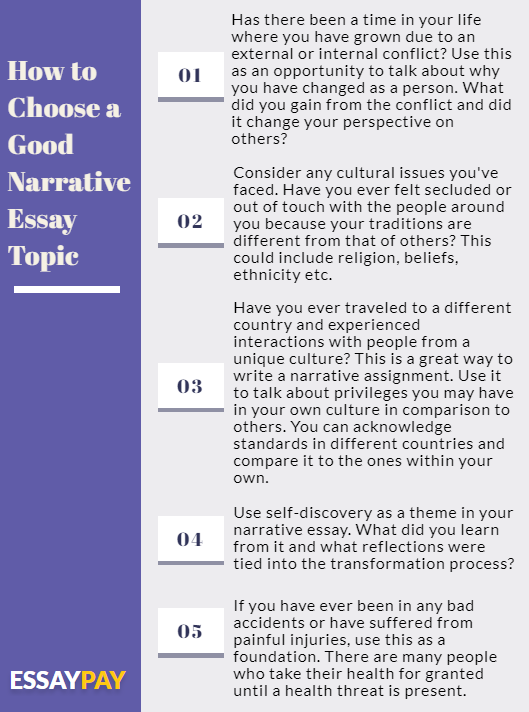
There are many narrative essay topics you can choose from; thus you need to think a lot about your future theme. Our best essay writers believe that choosing the right topic is quite a challenge. First, you need to select a theme you are familiar with, and the one you can write about a lot. Second, with chosen the topic for my narrative essay, students must reveal a subject in details. It is very important to provide enough illustrations, details, and other particulars.
- List of sample Narrative Essay Topics in our Special Collection
We have analyzed a bunch of narrative essay topics to come up with the list of the most compelling narrative essay themes:
- Personal Narrative Topics
- Memorable days with family
- The love of your life
- The best person in your life
- Memorable birthday party
- People you miss the most
- Favorite childhood fairytale
- Your favorite music
- Your favorite movie
- The day you stopped believing in Santa Klaus
- Favorite childhood hero
- The people influenced you the most
- The best friends ever
- The person who broke your heart
- People who care about you the most
- People you do not want to let go
- The best trait of your character
- The people you have lost
- Your perspectives on sports
- Your personal obsessions
- The country you want to travel
- The place you want to visit
- Social media in your life
- The most loving people in your life
- Travel that you like the most
- Your favorite book or e-book
- Your preferences in people
- Something you have in common with parents
- Narrative Essay Topics For College Students
- Your success in numbers
- The best gift ever
- The first serious injury
- The day you have hurt your friend
- The person you want to be alike
- Valuable adult possession
- Valuable childhood possession
- The best way to be happy
- Kindness is the best trait
- Being a part of a school/college team
- First day at college
- The first big party in your life
- Good Narrative Essay Topics
- People you can die for
- The day you have become adult
- The impossible dreams
- The biggest dreams and their implementation
- The person you want to be with
- Why do you want to become successful?
- Why rejection makes us stronger
- The fictional character you want to be
- Descriptive Narrative Essay Topics
- Very unpleasant personal experience
- The things to be learned first in life
- Something to appreciate the most
- The biggest achievement
- Someone to care the most
- The story you want to become a part
- How to overcome your own fears
- Your secret dreams and hopes
- How to learn to love someone?
- Dark sides of your soul
- The top life goals
- How to not become a coward?
- How to live after betrayal
- The best personal traits
- The best talents and skills
- The most valuable lessons learned
- How to discover your talent?
- Autobiographical Narrative Topics
- The biggest fear in life
- The most embarrassing moment in life
- The most frightening experience in childhood
- The best childhood memory
- The most exciting date
- The day you learned how to swim
- Your biggest life achievement
- The day you stopped being afraid
- The first serious breakup
- The first serious disagreement
- The worst argument with friends
- First misunderstanding with parents
- First disagreement with a loved one
- The first rejection in life
- The biggest lie in your life
- The day to make your dreams come true
- The first job experience
- The first experience with a diet
- The song that changed your life
- Narrative Essay Topics For High School
- The first poetry learned by heart
- Memorable events at school
- Your favorite hobbies at a young age
- Your personal hero
- Did your teachers influence you much?
- The most exhausting exam
- Your favorite comic book
- Your first day in the new school
- Interesting Narrative Essay Topics
- How to treat strangers?
- The movie you want to play in
- Stars you want to meet in real life
- Loving a TV character for real
- Favorite country in the world
- The first love trips
- Meeting people from other countries
- Being a part of your favorite game
- How to use a time machine?
- Imagine yourself to become an animal
- If you were a millionaire
- The personal creativeness and its benefits
- Why do we need to love someone?
- Caring friend and spouses
- Good narrative essay topic – it is important!
When you have a chance to choose your own narrative essay theme among a wide variety of existed narrative essay topics, it is a great chance to select a winning topic. You can use a bunch of online tools for completing an excellent narrative essay paper, including numerous tutorials, instructions, and illustrations. Moreover, you can use any essay sample online to check the proper format and structure of a narrative essay. You can also use online writing help to submit a flawless final paper in a few clicks.
- EssayPay can write a Narrative essay for you on a unique and interesting topic!
When writing a narrative paper, make sure to choose good narrative essay writing topics for your final paper. If you have no idea how to complete a paper , you can order it online. In such a case, you will get a chance to submit a fascinating and useful final material and impress your teacher. Just a few clicks, and you will get your desired paper!

Arlene McCoy has extensive writing, teaching, and mentoring experience. She graduated from the University of Southern California with a master’s degree in applied psychology. Thanks to her experience, teaching expertise, and genuine passion for writing, she consistently develops high-quality course materials that inspire and engage students.

- Assignment Writing Service
- Research Paper Writing Service
- Capstone Project Writing Service
- Literature Review Writing Service
- Essay Writers for Hire

Choose Your Test
Sat / act prep online guides and tips, 3 great narrative essay examples + tips for writing.
General Education

A narrative essay is one of the most intimidating assignments you can be handed at any level of your education. Where you've previously written argumentative essays that make a point or analytic essays that dissect meaning, a narrative essay asks you to write what is effectively a story .
But unlike a simple work of creative fiction, your narrative essay must have a clear and concrete motif —a recurring theme or idea that you’ll explore throughout. Narrative essays are less rigid, more creative in expression, and therefore pretty different from most other essays you’ll be writing.
But not to fear—in this article, we’ll be covering what a narrative essay is, how to write a good one, and also analyzing some personal narrative essay examples to show you what a great one looks like.
What Is a Narrative Essay?
At first glance, a narrative essay might sound like you’re just writing a story. Like the stories you're used to reading, a narrative essay is generally (but not always) chronological, following a clear throughline from beginning to end. Even if the story jumps around in time, all the details will come back to one specific theme, demonstrated through your choice in motifs.
Unlike many creative stories, however, your narrative essay should be based in fact. That doesn’t mean that every detail needs to be pure and untainted by imagination, but rather that you shouldn’t wholly invent the events of your narrative essay. There’s nothing wrong with inventing a person’s words if you can’t remember them exactly, but you shouldn’t say they said something they weren’t even close to saying.
Another big difference between narrative essays and creative fiction—as well as other kinds of essays—is that narrative essays are based on motifs. A motif is a dominant idea or theme, one that you establish before writing the essay. As you’re crafting the narrative, it’ll feed back into your motif to create a comprehensive picture of whatever that motif is.
For example, say you want to write a narrative essay about how your first day in high school helped you establish your identity. You might discuss events like trying to figure out where to sit in the cafeteria, having to describe yourself in five words as an icebreaker in your math class, or being unsure what to do during your lunch break because it’s no longer acceptable to go outside and play during lunch. All of those ideas feed back into the central motif of establishing your identity.
The important thing to remember is that while a narrative essay is typically told chronologically and intended to read like a story, it is not purely for entertainment value. A narrative essay delivers its theme by deliberately weaving the motifs through the events, scenes, and details. While a narrative essay may be entertaining, its primary purpose is to tell a complete story based on a central meaning.
Unlike other essay forms, it is totally okay—even expected—to use first-person narration in narrative essays. If you’re writing a story about yourself, it’s natural to refer to yourself within the essay. It’s also okay to use other perspectives, such as third- or even second-person, but that should only be done if it better serves your motif. Generally speaking, your narrative essay should be in first-person perspective.
Though your motif choices may feel at times like you’re making a point the way you would in an argumentative essay, a narrative essay’s goal is to tell a story, not convince the reader of anything. Your reader should be able to tell what your motif is from reading, but you don’t have to change their mind about anything. If they don’t understand the point you are making, you should consider strengthening the delivery of the events and descriptions that support your motif.
Narrative essays also share some features with analytical essays, in which you derive meaning from a book, film, or other media. But narrative essays work differently—you’re not trying to draw meaning from an existing text, but rather using an event you’ve experienced to convey meaning. In an analytical essay, you examine narrative, whereas in a narrative essay you create narrative.
The structure of a narrative essay is also a bit different than other essays. You’ll generally be getting your point across chronologically as opposed to grouping together specific arguments in paragraphs or sections. To return to the example of an essay discussing your first day of high school and how it impacted the shaping of your identity, it would be weird to put the events out of order, even if not knowing what to do after lunch feels like a stronger idea than choosing where to sit. Instead of organizing to deliver your information based on maximum impact, you’ll be telling your story as it happened, using concrete details to reinforce your theme.

3 Great Narrative Essay Examples
One of the best ways to learn how to write a narrative essay is to look at a great narrative essay sample. Let’s take a look at some truly stellar narrative essay examples and dive into what exactly makes them work so well.
A Ticket to the Fair by David Foster Wallace
Today is Press Day at the Illinois State Fair in Springfield, and I’m supposed to be at the fairgrounds by 9:00 A.M. to get my credentials. I imagine credentials to be a small white card in the band of a fedora. I’ve never been considered press before. My real interest in credentials is getting into rides and shows for free. I’m fresh in from the East Coast, for an East Coast magazine. Why exactly they’re interested in the Illinois State Fair remains unclear to me. I suspect that every so often editors at East Coast magazines slap their foreheads and remember that about 90 percent of the United States lies between the coasts, and figure they’ll engage somebody to do pith-helmeted anthropological reporting on something rural and heartlandish. I think they asked me to do this because I grew up here, just a couple hours’ drive from downstate Springfield. I never did go to the state fair, though—I pretty much topped out at the county fair level. Actually, I haven’t been back to Illinois for a long time, and I can’t say I’ve missed it.
Throughout this essay, David Foster Wallace recounts his experience as press at the Illinois State Fair. But it’s clear from this opening that he’s not just reporting on the events exactly as they happened—though that’s also true— but rather making a point about how the East Coast, where he lives and works, thinks about the Midwest.
In his opening paragraph, Wallace states that outright: “Why exactly they’re interested in the Illinois State Fair remains unclear to me. I suspect that every so often editors at East Coast magazines slap their foreheads and remember that about 90 percent of the United States lies between the coasts, and figure they’ll engage somebody to do pith-helmeted anthropological reporting on something rural and heartlandish.”
Not every motif needs to be stated this clearly , but in an essay as long as Wallace’s, particularly since the audience for such a piece may feel similarly and forget that such a large portion of the country exists, it’s important to make that point clear.
But Wallace doesn’t just rest on introducing his motif and telling the events exactly as they occurred from there. It’s clear that he selects events that remind us of that idea of East Coast cynicism , such as when he realizes that the Help Me Grow tent is standing on top of fake grass that is killing the real grass beneath, when he realizes the hypocrisy of craving a corn dog when faced with a real, suffering pig, when he’s upset for his friend even though he’s not the one being sexually harassed, and when he witnesses another East Coast person doing something he wouldn’t dare to do.
Wallace is literally telling the audience exactly what happened, complete with dates and timestamps for when each event occurred. But he’s also choosing those events with a purpose—he doesn’t focus on details that don’t serve his motif. That’s why he discusses the experiences of people, how the smells are unappealing to him, and how all the people he meets, in cowboy hats, overalls, or “black spandex that looks like cheesecake leotards,” feel almost alien to him.
All of these details feed back into the throughline of East Coast thinking that Wallace introduces in the first paragraph. He also refers back to it in the essay’s final paragraph, stating:
At last, an overarching theory blooms inside my head: megalopolitan East Coasters’ summer treats and breaks and literally ‘getaways,’ flights-from—from crowds, noise, heat, dirt, the stress of too many sensory choices….The East Coast existential treat is escape from confines and stimuli—quiet, rustic vistas that hold still, turn inward, turn away. Not so in the rural Midwest. Here you’re pretty much away all the time….Something in a Midwesterner sort of actuates , deep down, at a public event….The real spectacle that draws us here is us.
Throughout this journey, Wallace has tried to demonstrate how the East Coast thinks about the Midwest, ultimately concluding that they are captivated by the Midwest’s less stimuli-filled life, but that the real reason they are interested in events like the Illinois State Fair is that they are, in some ways, a means of looking at the East Coast in a new, estranging way.
The reason this works so well is that Wallace has carefully chosen his examples, outlined his motif and themes in the first paragraph, and eventually circled back to the original motif with a clearer understanding of his original point.
When outlining your own narrative essay, try to do the same. Start with a theme, build upon it with examples, and return to it in the end with an even deeper understanding of the original issue. You don’t need this much space to explore a theme, either—as we’ll see in the next example, a strong narrative essay can also be very short.

Death of a Moth by Virginia Woolf
After a time, tired by his dancing apparently, he settled on the window ledge in the sun, and, the queer spectacle being at an end, I forgot about him. Then, looking up, my eye was caught by him. He was trying to resume his dancing, but seemed either so stiff or so awkward that he could only flutter to the bottom of the window-pane; and when he tried to fly across it he failed. Being intent on other matters I watched these futile attempts for a time without thinking, unconsciously waiting for him to resume his flight, as one waits for a machine, that has stopped momentarily, to start again without considering the reason of its failure. After perhaps a seventh attempt he slipped from the wooden ledge and fell, fluttering his wings, on to his back on the window sill. The helplessness of his attitude roused me. It flashed upon me that he was in difficulties; he could no longer raise himself; his legs struggled vainly. But, as I stretched out a pencil, meaning to help him to right himself, it came over me that the failure and awkwardness were the approach of death. I laid the pencil down again.
In this essay, Virginia Woolf explains her encounter with a dying moth. On surface level, this essay is just a recounting of an afternoon in which she watched a moth die—it’s even established in the title. But there’s more to it than that. Though Woolf does not begin her essay with as clear a motif as Wallace, it’s not hard to pick out the evidence she uses to support her point, which is that the experience of this moth is also the human experience.
In the title, Woolf tells us this essay is about death. But in the first paragraph, she seems to mostly be discussing life—the moth is “content with life,” people are working in the fields, and birds are flying. However, she mentions that it is mid-September and that the fields were being plowed. It’s autumn and it’s time for the harvest; the time of year in which many things die.
In this short essay, she chronicles the experience of watching a moth seemingly embody life, then die. Though this essay is literally about a moth, it’s also about a whole lot more than that. After all, moths aren’t the only things that die—Woolf is also reflecting on her own mortality, as well as the mortality of everything around her.
At its core, the essay discusses the push and pull of life and death, not in a way that’s necessarily sad, but in a way that is accepting of both. Woolf begins by setting up the transitional fall season, often associated with things coming to an end, and raises the ideas of pleasure, vitality, and pity.
At one point, Woolf tries to help the dying moth, but reconsiders, as it would interfere with the natural order of the world. The moth’s death is part of the natural order of the world, just like fall, just like her own eventual death.
All these themes are set up in the beginning and explored throughout the essay’s narrative. Though Woolf doesn’t directly state her theme, she reinforces it by choosing a small, isolated event—watching a moth die—and illustrating her point through details.
With this essay, we can see that you don’t need a big, weird, exciting event to discuss an important meaning. Woolf is able to explore complicated ideas in a short essay by being deliberate about what details she includes, just as you can be in your own essays.

Notes of a Native Son by James Baldwin
On the twenty-ninth of July, in 1943, my father died. On the same day, a few hours later, his last child was born. Over a month before this, while all our energies were concentrated in waiting for these events, there had been, in Detroit, one of the bloodiest race riots of the century. A few hours after my father’s funeral, while he lay in state in the undertaker’s chapel, a race riot broke out in Harlem. On the morning of the third of August, we drove my father to the graveyard through a wilderness of smashed plate glass.
Like Woolf, Baldwin does not lay out his themes in concrete terms—unlike Wallace, there’s no clear sentence that explains what he’ll be talking about. However, you can see the motifs quite clearly: death, fatherhood, struggle, and race.
Throughout the narrative essay, Baldwin discusses the circumstances of his father’s death, including his complicated relationship with his father. By introducing those motifs in the first paragraph, the reader understands that everything discussed in the essay will come back to those core ideas. When Baldwin talks about his experience with a white teacher taking an interest in him and his father’s resistance to that, he is also talking about race and his father’s death. When he talks about his father’s death, he is also talking about his views on race. When he talks about his encounters with segregation and racism, he is talking, in part, about his father.
Because his father was a hard, uncompromising man, Baldwin struggles to reconcile the knowledge that his father was right about many things with his desire to not let that hardness consume him, as well.
Baldwin doesn’t explicitly state any of this, but his writing so often touches on the same motifs that it becomes clear he wants us to think about all these ideas in conversation with one another.
At the end of the essay, Baldwin makes it more clear:
This fight begins, however, in the heart and it had now been laid to my charge to keep my own heart free of hatred and despair. This intimation made my heart heavy and, now that my father was irrecoverable, I wished that he had been beside me so that I could have searched his face for the answers which only the future would give me now.
Here, Baldwin ties together the themes and motifs into one clear statement: that he must continue to fight and recognize injustice, especially racial injustice, just as his father did. But unlike his father, he must do it beginning with himself—he must not let himself be closed off to the world as his father was. And yet, he still wishes he had his father for guidance, even as he establishes that he hopes to be a different man than his father.
In this essay, Baldwin loads the front of the essay with his motifs, and, through his narrative, weaves them together into a theme. In the end, he comes to a conclusion that connects all of those things together and leaves the reader with a lasting impression of completion—though the elements may have been initially disparate, in the end everything makes sense.
You can replicate this tactic of introducing seemingly unattached ideas and weaving them together in your own essays. By introducing those motifs, developing them throughout, and bringing them together in the end, you can demonstrate to your reader how all of them are related. However, it’s especially important to be sure that your motifs and clear and consistent throughout your essay so that the conclusion feels earned and consistent—if not, readers may feel mislead.
5 Key Tips for Writing Narrative Essays
Narrative essays can be a lot of fun to write since they’re so heavily based on creativity. But that can also feel intimidating—sometimes it’s easier to have strict guidelines than to have to make it all up yourself. Here are a few tips to keep your narrative essay feeling strong and fresh.
Develop Strong Motifs
Motifs are the foundation of a narrative essay . What are you trying to say? How can you say that using specific symbols or events? Those are your motifs.
In the same way that an argumentative essay’s body should support its thesis, the body of your narrative essay should include motifs that support your theme.
Try to avoid cliches, as these will feel tired to your readers. Instead of roses to symbolize love, try succulents. Instead of the ocean representing some vast, unknowable truth, try the depths of your brother’s bedroom. Keep your language and motifs fresh and your essay will be even stronger!
Use First-Person Perspective
In many essays, you’re expected to remove yourself so that your points stand on their own. Not so in a narrative essay—in this case, you want to make use of your own perspective.
Sometimes a different perspective can make your point even stronger. If you want someone to identify with your point of view, it may be tempting to choose a second-person perspective. However, be sure you really understand the function of second-person; it’s very easy to put a reader off if the narration isn’t expertly deployed.
If you want a little bit of distance, third-person perspective may be okay. But be careful—too much distance and your reader may feel like the narrative lacks truth.
That’s why first-person perspective is the standard. It keeps you, the writer, close to the narrative, reminding the reader that it really happened. And because you really know what happened and how, you’re free to inject your own opinion into the story without it detracting from your point, as it would in a different type of essay.
Stick to the Truth
Your essay should be true. However, this is a creative essay, and it’s okay to embellish a little. Rarely in life do we experience anything with a clear, concrete meaning the way somebody in a book might. If you flub the details a little, it’s okay—just don’t make them up entirely.
Also, nobody expects you to perfectly recall details that may have happened years ago. You may have to reconstruct dialog from your memory and your imagination. That’s okay, again, as long as you aren’t making it up entirely and assigning made-up statements to somebody.
Dialog is a powerful tool. A good conversation can add flavor and interest to a story, as we saw demonstrated in David Foster Wallace’s essay. As previously mentioned, it’s okay to flub it a little, especially because you’re likely writing about an experience you had without knowing that you’d be writing about it later.
However, don’t rely too much on it. Your narrative essay shouldn’t be told through people explaining things to one another; the motif comes through in the details. Dialog can be one of those details, but it shouldn’t be the only one.
Use Sensory Descriptions
Because a narrative essay is a story, you can use sensory details to make your writing more interesting. If you’re describing a particular experience, you can go into detail about things like taste, smell, and hearing in a way that you probably wouldn’t do in any other essay style.
These details can tie into your overall motifs and further your point. Woolf describes in great detail what she sees while watching the moth, giving us the sense that we, too, are watching the moth. In Wallace’s essay, he discusses the sights, sounds, and smells of the Illinois State Fair to help emphasize his point about its strangeness. And in Baldwin’s essay, he describes shattered glass as a “wilderness,” and uses the feelings of his body to describe his mental state.
All these descriptions anchor us not only in the story, but in the motifs and themes as well. One of the tools of a writer is making the reader feel as you felt, and sensory details help you achieve that.
What’s Next?
Looking to brush up on your essay-writing capabilities before the ACT? This guide to ACT English will walk you through some of the best strategies and practice questions to get you prepared!
Part of practicing for the ACT is ensuring your word choice and diction are on point. Check out this guide to some of the most common errors on the ACT English section to be sure that you're not making these common mistakes!
A solid understanding of English principles will help you make an effective point in a narrative essay, and you can get that understanding through taking a rigorous assortment of high school English classes !

Melissa Brinks graduated from the University of Washington in 2014 with a Bachelor's in English with a creative writing emphasis. She has spent several years tutoring K-12 students in many subjects, including in SAT prep, to help them prepare for their college education.
Ask a Question Below
Have any questions about this article or other topics? Ask below and we'll reply!
Improve With Our Famous Guides
- For All Students
The 5 Strategies You Must Be Using to Improve 160+ SAT Points
How to Get a Perfect 1600, by a Perfect Scorer
Series: How to Get 800 on Each SAT Section:
Score 800 on SAT Math
Score 800 on SAT Reading
Score 800 on SAT Writing
Series: How to Get to 600 on Each SAT Section:
Score 600 on SAT Math
Score 600 on SAT Reading
Score 600 on SAT Writing
Free Complete Official SAT Practice Tests
What SAT Target Score Should You Be Aiming For?
15 Strategies to Improve Your SAT Essay
The 5 Strategies You Must Be Using to Improve 4+ ACT Points
How to Get a Perfect 36 ACT, by a Perfect Scorer
Series: How to Get 36 on Each ACT Section:
36 on ACT English
36 on ACT Math
36 on ACT Reading
36 on ACT Science
Series: How to Get to 24 on Each ACT Section:
24 on ACT English
24 on ACT Math
24 on ACT Reading
24 on ACT Science
What ACT target score should you be aiming for?
ACT Vocabulary You Must Know
ACT Writing: 15 Tips to Raise Your Essay Score
How to Get Into Harvard and the Ivy League
How to Get a Perfect 4.0 GPA
How to Write an Amazing College Essay
What Exactly Are Colleges Looking For?
Is the ACT easier than the SAT? A Comprehensive Guide
Should you retake your SAT or ACT?
When should you take the SAT or ACT?
Stay Informed
Get the latest articles and test prep tips!
Looking for Graduate School Test Prep?
Check out our top-rated graduate blogs here:
GRE Online Prep Blog
GMAT Online Prep Blog
TOEFL Online Prep Blog
Holly R. "I am absolutely overjoyed and cannot thank you enough for helping me!”
The Ultimate Narrative Essay Guide for Beginners

A narrative essay tells a story in chronological order, with an introduction that introduces the characters and sets the scene. Then a series of events leads to a climax or turning point, and finally a resolution or reflection on the experience.
Speaking of which, are you in sixes and sevens about narrative essays? Don’t worry this ultimate expert guide will wipe out all your doubts. So let’s get started.
Table of Contents
Everything You Need to Know About Narrative Essay
What is a narrative essay.
When you go through a narrative essay definition, you would know that a narrative essay purpose is to tell a story. It’s all about sharing an experience or event and is different from other types of essays because it’s more focused on how the event made you feel or what you learned from it, rather than just presenting facts or an argument. Let’s explore more details on this interesting write-up and get to know how to write a narrative essay.
Elements of a Narrative Essay
Here’s a breakdown of the key elements of a narrative essay:
A narrative essay has a beginning, middle, and end. It builds up tension and excitement and then wraps things up in a neat package.
Real people, including the writer, often feature in personal narratives. Details of the characters and their thoughts, feelings, and actions can help readers to relate to the tale.
It’s really important to know when and where something happened so we can get a good idea of the context. Going into detail about what it looks like helps the reader to really feel like they’re part of the story.
Conflict or Challenge
A story in a narrative essay usually involves some kind of conflict or challenge that moves the plot along. It could be something inside the character, like a personal battle, or something from outside, like an issue they have to face in the world.
Theme or Message
A narrative essay isn’t just about recounting an event – it’s about showing the impact it had on you and what you took away from it. It’s an opportunity to share your thoughts and feelings about the experience, and how it changed your outlook.
Emotional Impact
The author is trying to make the story they’re telling relatable, engaging, and memorable by using language and storytelling to evoke feelings in whoever’s reading it.
Narrative essays let writers have a blast telling stories about their own lives. It’s an opportunity to share insights and impart wisdom, or just have some fun with the reader. Descriptive language, sensory details, dialogue, and a great narrative voice are all essentials for making the story come alive.
The Purpose of a Narrative Essay
A narrative essay is more than just a story – it’s a way to share a meaningful, engaging, and relatable experience with the reader. Includes:
Sharing Personal Experience
Narrative essays are a great way for writers to share their personal experiences, feelings, thoughts, and reflections. It’s an opportunity to connect with readers and make them feel something.
Entertainment and Engagement
The essay attempts to keep the reader interested by using descriptive language, storytelling elements, and a powerful voice. It attempts to pull them in and make them feel involved by creating suspense, mystery, or an emotional connection.
Conveying a Message or Insight
Narrative essays are more than just a story – they aim to teach you something. They usually have a moral lesson, a new understanding, or a realization about life that the author gained from the experience.
Building Empathy and Understanding
By telling their stories, people can give others insight into different perspectives, feelings, and situations. Sharing these tales can create compassion in the reader and help broaden their knowledge of different life experiences.
Inspiration and Motivation
Stories about personal struggles, successes, and transformations can be really encouraging to people who are going through similar situations. It can provide them with hope and guidance, and let them know that they’re not alone.
Reflecting on Life’s Significance
These essays usually make you think about the importance of certain moments in life or the impact of certain experiences. They make you look deep within yourself and ponder on the things you learned or how you changed because of those events.
Demonstrating Writing Skills
Coming up with a gripping narrative essay takes serious writing chops, like vivid descriptions, powerful language, timing, and organization. It’s an opportunity for writers to show off their story-telling abilities.
Preserving Personal History
Sometimes narrative essays are used to record experiences and special moments that have an emotional resonance. They can be used to preserve individual memories or for future generations to look back on.
Cultural and Societal Exploration
Personal stories can look at cultural or social aspects, giving us an insight into customs, opinions, or social interactions seen through someone’s own experience.
Format of a Narrative Essay
Narrative essays are quite flexible in terms of format, which allows the writer to tell a story in a creative and compelling way. Here’s a quick breakdown of the narrative essay format, along with some examples:
Introduction
Set the scene and introduce the story.
Engage the reader and establish the tone of the narrative.
Hook: Start with a captivating opening line to grab the reader’s attention. For instance:
Example: “The scorching sun beat down on us as we trekked through the desert, our water supply dwindling.”
Background Information: Provide necessary context or background without giving away the entire story.
Example: “It was the summer of 2015 when I embarked on a life-changing journey to…”
Thesis Statement or Narrative Purpose
Present the main idea or the central message of the essay.
Offer a glimpse of what the reader can expect from the narrative.
Thesis Statement: This isn’t as rigid as in other essays but can be a sentence summarizing the essence of the story.
Example: “Little did I know, that seemingly ordinary hike would teach me invaluable lessons about resilience and friendship.”
Body Paragraphs
Present the sequence of events in chronological order.
Develop characters, setting, conflict, and resolution.
Story Progression : Describe events in the order they occurred, focusing on details that evoke emotions and create vivid imagery.
Example : Detail the trek through the desert, the challenges faced, interactions with fellow hikers, and the pivotal moments.
Character Development : Introduce characters and their roles in the story. Show their emotions, thoughts, and actions.
Example : Describe how each character reacted to the dwindling water supply and supported each other through adversity.
Dialogue and Interactions : Use dialogue to bring the story to life and reveal character personalities.
Example : “Sarah handed me her last bottle of water, saying, ‘We’re in this together.'”
Reach the peak of the story, the moment of highest tension or significance.
Turning Point: Highlight the most crucial moment or realization in the narrative.
Example: “As the sun dipped below the horizon and hope seemed lost, a distant sound caught our attention—the rescue team’s helicopters.”
Provide closure to the story.
Reflect on the significance of the experience and its impact.
Reflection : Summarize the key lessons learned or insights gained from the experience.
Example : “That hike taught me the true meaning of resilience and the invaluable support of friendship in challenging times.”
Closing Thought : End with a memorable line that reinforces the narrative’s message or leaves a lasting impression.
Example : “As we boarded the helicopters, I knew this adventure would forever be etched in my heart.”
Example Summary:
Imagine a narrative about surviving a challenging hike through the desert, emphasizing the bonds formed and lessons learned. The narrative essay structure might look like starting with an engaging scene, narrating the hardships faced, showcasing the characters’ resilience, and culminating in a powerful realization about friendship and endurance.
Different Types of Narrative Essays
There are a bunch of different types of narrative essays – each one focuses on different elements of storytelling and has its own purpose. Here’s a breakdown of the narrative essay types and what they mean.
Personal Narrative
Description : Tells a personal story or experience from the writer’s life.
Purpose: Reflects on personal growth, lessons learned, or significant moments.
Example of Narrative Essay Types:
Topic : “The Day I Conquered My Fear of Public Speaking”
Focus: Details the experience, emotions, and eventual triumph over a fear of public speaking during a pivotal event.
Descriptive Narrative
Description : Emphasizes vivid details and sensory imagery.
Purpose : Creates a sensory experience, painting a vivid picture for the reader.
Topic : “A Walk Through the Enchanted Forest”
Focus : Paints a detailed picture of the sights, sounds, smells, and feelings experienced during a walk through a mystical forest.
Autobiographical Narrative
Description: Chronicles significant events or moments from the writer’s life.
Purpose: Provides insights into the writer’s life, experiences, and growth.
Topic: “Lessons from My Childhood: How My Grandmother Shaped Who I Am”
Focus: Explores pivotal moments and lessons learned from interactions with a significant family member.
Experiential Narrative
Description: Relays experiences beyond the writer’s personal life.
Purpose: Shares experiences, travels, or events from a broader perspective.
Topic: “Volunteering in a Remote Village: A Journey of Empathy”
Focus: Chronicles the writer’s volunteering experience, highlighting interactions with a community and personal growth.
Literary Narrative
Description: Incorporates literary elements like symbolism, allegory, or thematic explorations.
Purpose: Uses storytelling for deeper explorations of themes or concepts.
Topic: “The Symbolism of the Red Door: A Journey Through Change”
Focus: Uses a red door as a symbol, exploring its significance in the narrator’s life and the theme of transition.

Historical Narrative
Description: Recounts historical events or periods through a personal lens.
Purpose: Presents history through personal experiences or perspectives.
Topic: “A Grandfather’s Tales: Living Through the Great Depression”
Focus: Shares personal stories from a family member who lived through a historical era, offering insights into that period.
Digital or Multimedia Narrative
Description: Incorporates multimedia elements like images, videos, or audio to tell a story.
Purpose: Explores storytelling through various digital platforms or formats.
Topic: “A Travel Diary: Exploring Europe Through Vlogs”
Focus: Combines video clips, photos, and personal narration to document a travel experience.
How to Choose a Topic for Your Narrative Essay?
Selecting a compelling topic for your narrative essay is crucial as it sets the stage for your storytelling. Choosing a boring topic is one of the narrative essay mistakes to avoid . Here’s a detailed guide on how to choose the right topic:
Reflect on Personal Experiences
- Significant Moments:
Moments that had a profound impact on your life or shaped your perspective.
Example: A moment of triumph, overcoming a fear, a life-changing decision, or an unforgettable experience.
- Emotional Resonance:
Events that evoke strong emotions or feelings.
Example: Joy, fear, sadness, excitement, or moments of realization.
- Lessons Learned:
Experiences that taught you valuable lessons or brought about personal growth.
Example: Challenges that led to personal development, shifts in mindset, or newfound insights.
Explore Unique Perspectives
- Uncommon Experiences:
Unique or unconventional experiences that might captivate the reader’s interest.
Example: Unusual travels, interactions with different cultures, or uncommon hobbies.
- Different Points of View:
Stories from others’ perspectives that impacted you deeply.
Example: A family member’s story, a friend’s experience, or a historical event from a personal lens.
Focus on Specific Themes or Concepts
- Themes or Concepts of Interest:
Themes or ideas you want to explore through storytelling.
Example: Friendship, resilience, identity, cultural diversity, or personal transformation.
- Symbolism or Metaphor:
Using symbols or metaphors as the core of your narrative.
Example: Exploring the symbolism of an object or a place in relation to a broader theme.
Consider Your Audience and Purpose
- Relevance to Your Audience:
Topics that resonate with your audience’s interests or experiences.
Example: Choose a relatable theme or experience that your readers might connect with emotionally.
- Impact or Message:
What message or insight do you want to convey through your story?
Example: Choose a topic that aligns with the message or lesson you aim to impart to your readers.
Brainstorm and Evaluate Ideas
- Free Writing or Mind Mapping:
Process: Write down all potential ideas without filtering. Mind maps or free-writing exercises can help generate diverse ideas.
- Evaluate Feasibility:
The depth of the story, the availability of vivid details, and your personal connection to the topic.
Imagine you’re considering topics for a narrative essay. You reflect on your experiences and decide to explore the topic of “Overcoming Stage Fright: How a School Play Changed My Perspective.” This topic resonates because it involves a significant challenge you faced and the personal growth it brought about.
Narrative Essay Topics
50 easy narrative essay topics.
- Learning to Ride a Bike
- My First Day of School
- A Surprise Birthday Party
- The Day I Got Lost
- Visiting a Haunted House
- An Encounter with a Wild Animal
- My Favorite Childhood Toy
- The Best Vacation I Ever Had
- An Unforgettable Family Gathering
- Conquering a Fear of Heights
- A Special Gift I Received
- Moving to a New City
- The Most Memorable Meal
- Getting Caught in a Rainstorm
- An Act of Kindness I Witnessed
- The First Time I Cooked a Meal
- My Experience with a New Hobby
- The Day I Met My Best Friend
- A Hike in the Mountains
- Learning a New Language
- An Embarrassing Moment
- Dealing with a Bully
- My First Job Interview
- A Sporting Event I Attended
- The Scariest Dream I Had
- Helping a Stranger
- The Joy of Achieving a Goal
- A Road Trip Adventure
- Overcoming a Personal Challenge
- The Significance of a Family Tradition
- An Unusual Pet I Owned
- A Misunderstanding with a Friend
- Exploring an Abandoned Building
- My Favorite Book and Why
- The Impact of a Role Model
- A Cultural Celebration I Participated In
- A Valuable Lesson from a Teacher
- A Trip to the Zoo
- An Unplanned Adventure
- Volunteering Experience
- A Moment of Forgiveness
- A Decision I Regretted
- A Special Talent I Have
- The Importance of Family Traditions
- The Thrill of Performing on Stage
- A Moment of Sudden Inspiration
- The Meaning of Home
- Learning to Play a Musical Instrument
- A Childhood Memory at the Park
- Witnessing a Beautiful Sunset
Narrative Essay Topics for College Students
- Discovering a New Passion
- Overcoming Academic Challenges
- Navigating Cultural Differences
- Embracing Independence: Moving Away from Home
- Exploring Career Aspirations
- Coping with Stress in College
- The Impact of a Mentor in My Life
- Balancing Work and Studies
- Facing a Fear of Public Speaking
- Exploring a Semester Abroad
- The Evolution of My Study Habits
- Volunteering Experience That Changed My Perspective
- The Role of Technology in Education
- Finding Balance: Social Life vs. Academics
- Learning a New Skill Outside the Classroom
- Reflecting on Freshman Year Challenges
- The Joys and Struggles of Group Projects
- My Experience with Internship or Work Placement
- Challenges of Time Management in College
- Redefining Success Beyond Grades
- The Influence of Literature on My Thinking
- The Impact of Social Media on College Life
- Overcoming Procrastination
- Lessons from a Leadership Role
- Exploring Diversity on Campus
- Exploring Passion for Environmental Conservation
- An Eye-Opening Course That Changed My Perspective
- Living with Roommates: Challenges and Lessons
- The Significance of Extracurricular Activities
- The Influence of a Professor on My Academic Journey
- Discussing Mental Health in College
- The Evolution of My Career Goals
- Confronting Personal Biases Through Education
- The Experience of Attending a Conference or Symposium
- Challenges Faced by Non-Native English Speakers in College
- The Impact of Traveling During Breaks
- Exploring Identity: Cultural or Personal
- The Impact of Music or Art on My Life
- Addressing Diversity in the Classroom
- Exploring Entrepreneurial Ambitions
- My Experience with Research Projects
- Overcoming Impostor Syndrome in College
- The Importance of Networking in College
- Finding Resilience During Tough Times
- The Impact of Global Issues on Local Perspectives
- The Influence of Family Expectations on Education
- Lessons from a Part-Time Job
- Exploring the College Sports Culture
- The Role of Technology in Modern Education
- The Journey of Self-Discovery Through Education
Narrative Essay Comparison
Narrative essay vs. descriptive essay.
Here’s our first narrative essay comparison! While both narrative and descriptive essays focus on vividly portraying a subject or an event, they differ in their primary objectives and approaches. Now, let’s delve into the nuances of comparison on narrative essays.
Narrative Essay:
Storytelling: Focuses on narrating a personal experience or event.
Chronological Order: Follows a structured timeline of events to tell a story.
Message or Lesson: Often includes a central message, moral, or lesson learned from the experience.
Engagement: Aims to captivate the reader through a compelling storyline and character development.
First-Person Perspective: Typically narrated from the writer’s point of view, using “I” and expressing personal emotions and thoughts.
Plot Development: Emphasizes a plot with a beginning, middle, climax, and resolution.
Character Development: Focuses on describing characters, their interactions, emotions, and growth.
Conflict or Challenge: Usually involves a central conflict or challenge that drives the narrative forward.
Dialogue: Incorporates conversations to bring characters and their interactions to life.
Reflection: Concludes with reflection or insight gained from the experience.
Descriptive Essay:
Vivid Description: Aims to vividly depict a person, place, object, or event.
Imagery and Details: Focuses on sensory details to create a vivid image in the reader’s mind.
Emotion through Description: Uses descriptive language to evoke emotions and engage the reader’s senses.
Painting a Picture: Creates a sensory-rich description allowing the reader to visualize the subject.
Imagery and Sensory Details: Focuses on providing rich sensory descriptions, using vivid language and adjectives.
Point of Focus: Concentrates on describing a specific subject or scene in detail.
Spatial Organization: Often employs spatial organization to describe from one area or aspect to another.
Objective Observations: Typically avoids the use of personal opinions or emotions; instead, the focus remains on providing a detailed and objective description.
Comparison:
Focus: Narrative essays emphasize storytelling, while descriptive essays focus on vividly describing a subject or scene.
Perspective: Narrative essays are often written from a first-person perspective, while descriptive essays may use a more objective viewpoint.
Purpose: Narrative essays aim to convey a message or lesson through a story, while descriptive essays aim to paint a detailed picture for the reader without necessarily conveying a specific message.
Narrative Essay vs. Argumentative Essay
The narrative essay and the argumentative essay serve distinct purposes and employ different approaches:
Engagement and Emotion: Aims to captivate the reader through a compelling story.
Reflective: Often includes reflection on the significance of the experience or lessons learned.
First-Person Perspective: Typically narrated from the writer’s point of view, sharing personal emotions and thoughts.
Plot Development: Emphasizes a storyline with a beginning, middle, climax, and resolution.
Message or Lesson: Conveys a central message, moral, or insight derived from the experience.
Argumentative Essay:
Persuasion and Argumentation: Aims to persuade the reader to adopt the writer’s viewpoint on a specific topic.
Logical Reasoning: Presents evidence, facts, and reasoning to support a particular argument or stance.
Debate and Counterarguments: Acknowledge opposing views and counter them with evidence and reasoning.
Thesis Statement: Includes a clear thesis statement that outlines the writer’s position on the topic.
Thesis and Evidence: Starts with a strong thesis statement and supports it with factual evidence, statistics, expert opinions, or logical reasoning.
Counterarguments: Addresses opposing viewpoints and provides rebuttals with evidence.
Logical Structure: Follows a logical structure with an introduction, body paragraphs presenting arguments and evidence, and a conclusion reaffirming the thesis.
Formal Language: Uses formal language and avoids personal anecdotes or emotional appeals.
Objective: Argumentative essays focus on presenting a logical argument supported by evidence, while narrative essays prioritize storytelling and personal reflection.
Purpose: Argumentative essays aim to persuade and convince the reader of a particular viewpoint, while narrative essays aim to engage, entertain, and share personal experiences.
Structure: Narrative essays follow a storytelling structure with character development and plot, while argumentative essays follow a more formal, structured approach with logical arguments and evidence.
In essence, while both essays involve writing and presenting information, the narrative essay focuses on sharing a personal experience, whereas the argumentative essay aims to persuade the audience by presenting a well-supported argument.
Narrative Essay vs. Personal Essay
While there can be an overlap between narrative and personal essays, they have distinctive characteristics:
Storytelling: Emphasizes recounting a specific experience or event in a structured narrative form.
Engagement through Story: Aims to engage the reader through a compelling story with characters, plot, and a central theme or message.
Reflective: Often includes reflection on the significance of the experience and the lessons learned.
First-Person Perspective: Typically narrated from the writer’s viewpoint, expressing personal emotions and thoughts.
Plot Development: Focuses on developing a storyline with a clear beginning, middle, climax, and resolution.
Character Development: Includes descriptions of characters, their interactions, emotions, and growth.
Central Message: Conveys a central message, moral, or insight derived from the experience.
Personal Essay:
Exploration of Ideas or Themes: Explores personal ideas, opinions, or reflections on a particular topic or subject.
Expression of Thoughts and Opinions: Expresses the writer’s thoughts, feelings, and perspectives on a specific subject matter.
Reflection and Introspection: Often involves self-reflection and introspection on personal experiences, beliefs, or values.
Varied Structure and Content: Can encompass various forms, including memoirs, personal anecdotes, or reflections on life experiences.
Flexibility in Structure: Allows for diverse structures and forms based on the writer’s intent, which could be narrative-like or more reflective.
Theme-Centric Writing: Focuses on exploring a central theme or idea, with personal anecdotes or experiences supporting and illustrating the theme.
Expressive Language: Utilizes descriptive and expressive language to convey personal perspectives, emotions, and opinions.
Focus: Narrative essays primarily focus on storytelling through a structured narrative, while personal essays encompass a broader range of personal expression, which can include storytelling but isn’t limited to it.
Structure: Narrative essays have a more structured plot development with characters and a clear sequence of events, while personal essays might adopt various structures, focusing more on personal reflection, ideas, or themes.
Intent: While both involve personal experiences, narrative essays emphasize telling a story with a message or lesson learned, while personal essays aim to explore personal thoughts, feelings, or opinions on a broader range of topics or themes.

A narrative essay is more than just telling a story. It’s also meant to engage the reader, get them thinking, and leave a lasting impact. Whether it’s to amuse, motivate, teach, or reflect, these essays are a great way to communicate with your audience. This interesting narrative essay guide was all about letting you understand the narrative essay, its importance, and how can you write one.
Order Original Papers & Essays
Your First Custom Paper Sample is on Us!
Timely Deliveries
No Plagiarism & AI
100% Refund
Try Our Free Paper Writing Service
Related blogs.

Connections with Writers and support
Privacy and Confidentiality Guarantee
Average Quality Score
Narrative Essay
Narrative Essay Topics
Best Narrative Essay Topics 2023 for Students
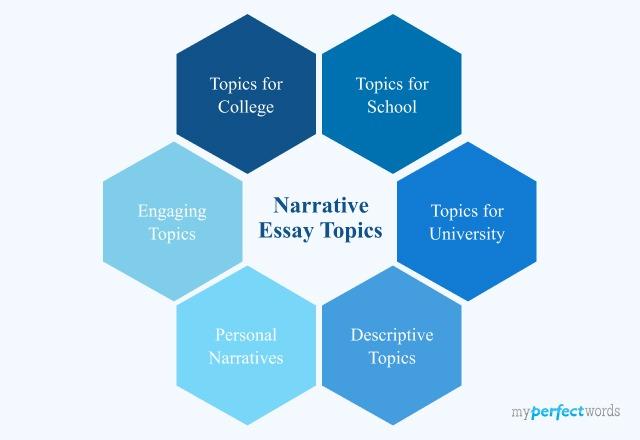
People also read
Narrative Essay - A Complete Writing Guide with Examples
Writing a Personal Narrative Essay: Everything You Need to Know
10+ Interesting Narrative Essay Examples Plus Writing Tips!
Crafting a Winning Narrative Essay Outline: A Step-by-Step Guide
Are you a student in 2023, looking for some awesome narrative essay topics that are easy to grasp and fun to write about?
You're in luck! Narrative essays let you share your stories, making them a perfect choice for students.
In this guide, we've put together a list of the best narrative essay topics for 2023.
Whether you're an experienced writer searching for fresh ideas or a student hunting for an exciting topic for your next assignment, we've got your back. These topics will ignite your imagination and captivate your readers.
So, let's dive in!
- 1. Narrative Essay Topics for Students
- 2. Unique Narrative Essay Topics for Students
- 3. How to Choose a Topic for a Narrative Essay?
- 4. Tips for Writing Narrative Essays
Narrative Essay Topics for Students
If you're a student looking for a diverse range of topics, we've got you covered with a diverse selection of narrative essay topics.
Narrative Essay Topics for Grade 5
- My First Day at a New School
- The Time I Learned to Ride a Bike
- A Visit to a Haunted House
- The Day I Met a Real-Life Superhero
- My Most Memorable Family Vacation
- A Surprising Encounter with an Animal
- The Mystery of the Missing Homework
- The Best Birthday Party I Ever Had
- When I Lost a Tooth
- My Adventure in a Fantasy World
Narrative Essay Topics for Grade 6
- An Unforgettable Camping Trip
- The Day I Discovered a Hidden Talent
- A Mysterious Letter and Its Consequences
- A Time I Had to Stand Up for What's Right
- The Thrilling Mystery of a Forgotten Diary
- A Memorable Encounter with a Famous Person
- My Journey Through a Fantasy Land
- The Day I Learned a Valuable Life Lesson
- An Unexpected Act of Kindness
- A Secret Adventure in an Abandoned Place
Narrative Essay Topics for Grade 7
- The Most Exciting Adventure of My Life
- The Day I Overcame a Fear
- A Memorable School Field Trip
- The Strangest Mystery I Ever Encountered
- An Unforgettable Encounter with Wildlife
- A Life-Changing Decision I Had to Make
- The Best Book I Ever Read and Why
- A Day in the Life of a Time Traveler
- The Importance of Friendship in My Life
- A Valuable Lesson Learned from a Mistake
Narrative Essay Topics for Grade 8
- A Time I Faced a Difficult Moral Dilemma
- The Most Memorable Summer Vacation
- The Impact of a Life-Altering Decision
- An Unexpected Act of Kindness I Received
- The Day I Stepped Out of My Comfort Zone
- A Historical Event I Would Like to Witness
- A Special Family Tradition and Its Significance
- A Personal Achievement I'm Proud Of
- A Challenging Obstacle I Overcame
- A Journey Through My Creative Imagination
Narrative Essay Topics for Grade 9
- The Transition to High School: Challenges and Triumphs
- A Life-Changing Encounter with an Inspiring Mentor
- My First Part-Time Job and What I Learned
- The Day I Realized the Power of Empathy
- The Impact of a Personal Passion or Hobby
- An Unforgettable Travel Experience Abroad
- A Meaningful Community Service Project I Participated In
- The Role of Technology in My Life
- A Defining Moment in My Cultural Identity
- My Vision for the Future: Dreams and Aspirations
Narrative Essay Topics for O-Levels
- The Day I Took a Leap of Faith
- An Unforgettable Journey into the Unknown
- A Life-Altering Decision I Made in High School
- An Encounter with a Stranger That Changed My Perspective
- The Role of Resilience in Overcoming a Personal Challenge
- The Impact of a Cultural Exchange Experience
- A Lesson Learned from a Unique Life Experience
- The Importance of Perseverance in Achieving a Goal
- My Most Memorable Academic Achievement
- A Glimpse into My Future: Aspirations and Ambitions
Narrative Essay Topics for Highschool
- The Moment I Discovered My Passion
- A Life-Changing Journey Abroad
- A Challenging Decision That Shaped My Future
- An Unexpected Act of Kindness That Touched My Heart
- The Role of Resilience in Overcoming Adversity
- A Personal Experience That Shaped My Values
- The Impact of Technology on My Generation
- A Time I Took a Stand for a Cause I Believe In
- A Memorable Leadership Role I Assumed
- A Glimpse into My Ideal Future: Aspirations and Goals
Narrative Essay Topics for College
- The Journey to Finding My Academic Passion
- A Life-Altering Study Abroad Experience
- The Transformational Impact of a Challenging Decision
- Navigating the Transition from College to the Professional World
- An Unforgettable Encounter with a Mentor or Role Model
- The Role of Adversity in Shaping My Personal Growth
- A Significant Ethical Dilemma I Faced in College
- How My College Experiences Have Shaped My Worldview
- The Impact of Technology on My College Education
- A Personal Reflection on My Career Aspirations and Goals
Narrative Essay Topics for University
- The Evolution of My Academic and Career Goals at University
- An Eye-Opening Internship Experience That Impacted My Future
- A Transformative Study Abroad Journey
- Navigating the Complexities of Balancing Work, Academics, and Social Life at University
- The Role of a Unique Research Project in My Academic Growth
- A Personal Account of Overcoming a Significant Academic Challenge
- A Meaningful Leadership Role in a University Organization
- The Journey of Self-Discovery Through Elective Courses at University
- The Impact of Peer Relationships and Networking at University
- How My University Education Has Shaped My Perspective on Global Issues
Unique Narrative Essay Topics for Students
We've gathered distinct narrative topic ideas to fuel your creativity. Let’s look at some personal narrative ideas to inspire your narrative writing.
Descriptive Narrative Essay Topics
- A Peaceful Day by the Riverside
- Exploring a Haunted House
- My Favorite Childhood Memory
- A Walk Through an Ancient Forest
- The Perfect Winter Wonderland
- An Evening at a Carnival
- A Visit to a Vibrant Art Gallery
- The Spectacular Colors of Autumn
- A Day in the Life of a Beach
- An Exciting Night in the City
Personal Narrative Essay Topics
- A Life-Changing Decision I Made
- A Moment of Personal Triumph
- Overcoming My Greatest Fear
- A Meaningful Lesson from a Personal Challenge
- The Role of a Special Friend in My Life
- A Time When I Broke a Personal Record
- The Impact of a Mentor on My Life
- My Journey to Self-Discovery
Literacy Narrative Essay Topics
- My Earliest Memory of Learning to Read
- The Book That Sparked My Love for Reading
- A Life-Changing Experience in a Library
- The Impact of a Special Teacher on My Writing Skills
- How Technology Has Shaped My Writing Habits
- A Personal Reflection on My Writing Journey
- The Role of Literature in Shaping My Perspective
- Writing as a Tool for Self-Expression and Healing
- How I Overcame Writer's Block
- The Significance of Storytelling in My Life
Engaging Narrative Essay Topics
- The Mystery of a Lost Treasure Map
- An Unlikely Friendship That Changed My Life
- A Day in the Life of a Professional Athlete
- The Journey of Starting My Own Business
- A Haunting Experience in a Historic Place
- A Memorable Road Trip with Friends
- My Encounter with a Famous Celebrity
- The Day I Conquered My Greatest Fear
- An Adventure in a Foreign Land
- A Life-Altering Decision at a Crossroads
How to Choose a Topic for a Narrative Essay?
Choosing the right topic for your narrative essay can be a daunting task. Before you start writing, it is important to invest some time in researching and brainstorming.
Here are a few tips to help guide you in selecting an interesting and engaging narrative essay topic:
- Reflect on Your Personal Experiences: If you are writing about a personal narrative topic, consider the impactful moments in your life and think about experiences that have left a strong impression on you.
- Identify a Clear Message or Theme: Determine the central idea or theme of your narrative. Decide what lesson, insight, or emotion you want to convey.
- Engage Your Audience: Consider your target audience and what will resonate with them. Choose a topic that captures their interest and keeps them engaged.
- Play with Different Perspectives: Explore the option of incorporating different viewpoints. Combining personal and external perspectives can add depth to your narrative.
- Test Your Idea: Get feedback from a friend or classmate. Assess if your chosen topic is likely to resonate with your audience.
- Stay True to Your Voice: Balance considering your audience with being authentic. Let your unique voice and storytelling style shine through in your writing
Tips for Writing Narrative Essays
Once you have selected a topic for your narrative essay, it is time to start writing.
Here are a few tips to keep in mind as you write your story:
- Start with a Strong Hook: Begin your narrative essay with a captivating hook, such as an engaging anecdote, a thought-provoking question, or a vivid description.
- Follow a Clear Structure: Organize your narrative essay outline with a clear structure. Most narratives follow a chronological order, but you can also use flashbacks or nonlinear storytelling when it serves your narrative.
- Build Tension and Conflict: Create tension and conflict in your narrative to add depth and maintain reader engagement. Whether it's a personal struggle, a moral dilemma, or an external challenge, these obstacles will keep readers eagerly anticipating what comes next.
- Revise and Edit: After completing your first draft, take the time to revise and edit your work. Review it for grammar and spelling errors, but also examine the overall structure and flow of your narrative.
- Practice, Practice, Practice: Like any form of writing, improving your narrative essay skills takes practice. Keep writing and experimenting with different topics, styles, and approaches to develop your storytelling abilities.
Before you start writing, make sure you read some narrative essay examples to learn how to organize your thoughts and structure your story.
In summary, no matter the type of essay you are writing about, you need a topic to start with. Our collection of narrative essay topics offers fresh, distinct ideas.
These topics are crafted to ignite your creativity and captivate your audience. They cover a diverse range of experiences, making it easier for you to connect with your readers on a personal level.
Still, struggling to write a compelling narrative essay? MyPerfectWords.com is here to help you out!
We stand as the most reliable narrative essay writing service with a specialized focus on crafting exceptional essays designed for high school and college students. Our customer support team is also available 24/7, request write my essays online whenever you need assistance.
Frequently Asked Questions
How are narrative essay topics different from other essay types.
Narrative essay topics are usually based on personal experiences, so they are more emotional and creative than other types of essays. Also, they are often more open-ended, so you have more freedom to choose what to write about.
Where can I find good narrative essay topics?
There are a few ways to find good topics for your narrative essay. You can look through books or magazines for ideas, or search online for inspiration. You can also brainstorm with friends or family members to come up with ideas.
What do I write a narrative essay about?
You can write a narrative essay about anything, but it is usually based on personal experience. Try to recall interesting incidents from your life to develop a narrative about.

Write Essay Within 60 Seconds!

Caleb S. has been providing writing services for over five years and has a Masters degree from Oxford University. He is an expert in his craft and takes great pride in helping students achieve their academic goals. Caleb is a dedicated professional who always puts his clients first.

Paper Due? Why Suffer? That’s our Job!
Keep reading

Home — Blog — Topic Ideas — 150+ Great Narrative Essay Topics and Ideas
150+ Great Narrative Essay Topics and Ideas

Often during the education process in school or university , we are asked to write an essay. Let’s talk about essays, in particular narrative ones. In a narrative essay, the author tells a story from real life. In this form of essay, the presentation of events in chronological order will not be enough. The authors’ thesis should interest the reader and make the story as vivid as possible so that the reader wants to become a part of the events described and can easily "transfer" to the story . More often such an essay is written in the 1st person in the present or past tense.
There are also other types of essays, such as:
- Description essays. In such an essay, we describe an object.
- Definition essays. Here we have one goal - to reveal this or that concept.
- Illustration essays. Your goal is to prove a statement.
- Argument essays. Here we give examples of persuasive facts that support your assertion.
Now let's look at the most popular narrative essay topics that we can board you with.
How to Know What Topic You Need?
If you were given a list of essay topics at schools or colleges , it would be logical if you choose a topic that is closer to you, on which you are not averse to reflecting.
If there is no list of topics, and you have only indicated the direction in which you should choose a problem for the essay, you will have to formulate the topic for narrative writing yourself.
Here are some tips on how to choose a topic for your essay:
- Before defining a narrative essay topic, it is worth finding the author's position. This is the moral instruction of the author, which can be written directly or encrypted in the words or thoughts of the hero-narrator. To find it, one should single out the topic and all the micro-themes in the text, and then formulate moralizing within their framework, that is, the author's position.
- From the author's position, it is worth asking a special question, that is, a question that requires a general answer, and not a short "yes" or "no". This question will be a problem.
- It is necessary to find two examples in the text that illustrate the transition from the question to the author's position, that is, to help answer the question posed. This will prove that such a problem is indeed raised by the author.
Narrative Essay Topic Ideas
Now, let’s take a closer look at topics for narrative essay examples you can choose.
Personal Narrative Essay Topics
Personal narrative essay examples and ideas are needed when you describe something that you experienced in your life.
- How To Be a Defensive Driver.
- A Personal Narrative about Fear Of Heights.
- My Fear of Failure.
- The Narrative about Losing My Dad.
- A Day I Lost My Best Friend.
- Narrative on Precious Time.
- What I Did This Summer.
- Personal Narrative: I Am a Perfectionist.
- Why Softball Is Important in My Life.
- Narrative on Vocation.
- My First Rock Concert.
- How I Learned to Accept Myself the Way I am.
- I Helped a Person in Need.
- My Last Day at School.
- The Character I Associate Myself with.
Cultural Narrative Essay Topics
Cultural topics for narratives allow you to highlight the topic of culture and at the same time present the story in an interesting way for the reader.
- Narrative about Mexican Culture.
- What traditions are unique in your family?
- Which tradition surprised you the most?
- How does the media influence our perception of culture?
- How does culture define a person's personality?
- What culture do you identify with?
- What is your favorite holiday?
- How does your family celebrate Christmas?
- The Impact of Narrative in English Language and Culture.
- What holiday has the most sacred meaning for you?
- What traditions does your family observe on the Easter holidays?
- Which of the cultural events you attended did you remember the most?
- What foreign tradition do you like the most?
- Holiday traditions in your family.
- Which festival do you like the most?
Narrative Argument Essay Topics
This type of narrative topics for an essay implies that you need to write about something that has had a big impact on you.
- Conflict case from your life.
- What disagreements did you have together with your friend?
- The case when someone deceived you.
- Has there been a choice in your life that you regret?
- Have you been in conflict with other people?
- A situation where you have to make a difficult decision between right and wrong.
- Have you been caught doing something bad?
- Have you ever had to win friends following the rules?
- Have you ever blamed another person for what you did?
- Have you helped someone for personal gain?
- Have you ever played pranks on your friends?
- What experience can you call the most difficult but important in life?
- Have you ever been in a car accident?
- Have you ever been humiliated?
- Have you ever helped a friend solve his problem?
Interesting Narrative Essay Topics
- Have you had to make a difficult decision in life?
- Have you ever flooded a neighbor's house?
- Has there ever been a person in your life who has changed it drastically?
- Would you like to relive any of those days again?
- Have you ever failed an exam?
- What was the scariest moment in your life?
- Have you ever been really sick?
- Have you ever saved another person's life?
- Have you ever worked up the courage to visit a haunted house?
- Have you ever won a prize?
- What was your first job in life?
- Have you ever participated in educational student exchange programs ?
- What do you do when you are all alone?
- What was your first meeting with the police?
- Have you ever been to the emergency room?
Personal Experience Narrative Essay Topics
Here you can describe people or events that influenced you in one way or another.
- How have you met a special person in your life?
- The person you enjoy the most.
- The best place in the neighborhood.
- The place you'd like to live your whole life.
- A productive art, you enjoy.
- What is your first job search ?
- Your biggest disappointment.
- Do you remember your first birthday?
- Narrative on Earthquake: An Earth-Shattering Experience.
- Have you ever encountered a wild animal?
- Tell about the first time you got home alone.
- How did you cook food for the first time?
- Tell how you helped someone.
- How did you overcome your fear?
- Narrative about Video Games.
Relationship Narrative Essay Topics
Relationship narrative stories ideas help to describe our relationship and how our experience has influenced certain events in life.
- Have you ever fallen in love?
- What advice would you give to a couple who are just starting their relationship?
- How would you define family?
- If you have a best friend, how did you meet?
- Do you think that your parents are more sensitive than others?
- What is your attitude towards marriage?
- Have you ever experienced gender bias?
- How do you remember deceased family members?
- What do you know about the origins of your family?
- Narrative about Friendship.
- How did you meet your best friend?
- What can make you end a romantic relationship?
- Is the community in your area important?
- Do you think hatred can destroy a relationship?
- Have you ever experienced intergenerational conflict?
- What does honesty mean in a relationship?
Childhood Memories
In this type of essay, you need to describe the events and memories of childhood.
- What was my first pet?
- What are my first memories?
- Whom did I look up to as a child?
- How did I first go to the hospital?
- My first meeting with my uncle/aunt.
- The Impact of a Funeral.
- My first terrible incident.
- What are my childhood fears?
- What was the happiest day of my childhood?
- My first time at the stadium.
Growing Up in High School
Here you need to recall the most vivid impressions from high school.
- What lessons were my favorites?
- Who was my favorite teacher?
- What role in the school theater did I remember the most?
- How I lost a sports match.
- Topics forbidden to me.
- How did I feel when I failed the exam?
- How did I feel when I passed the exam with excellent marks?
- Is commuting to school a routine for me?
- My best adventure in school.
- What kind of extracurricular activities do I enjoy the most?
Moral & Ethical Dilemmas
In this type of essay, you have to describe the ideas of the complexity of moral choice.
- What is your attitude towards pro-life movement: argumentative essay on abortion ?
- How can we influence the fight against racism?
- How should a work ethic deal with sexism?
- Do you think euthanasia should be legal?
- Why can't war be ethical?
- What moral issues does workplace automation cause?
- The Missing Climate Change Narrative Analysis.
- Is it ethical to have a lot of money?
- If drugs were legal, would their use be ethical?
- Is it possible to justify eating meat in the modern world?
College Student Life
Try to describe events and memories from your student's life.
- Narrative about Reading.
- My last day with my schoolmates.
- My favorite course.
- Meeting my better half.
- The story of my split-up.
- My brightest high school moment.
- How I met my old friend.
- My favorite professor.
- Narrative on a Trip: The Wonders of Rome.
- The most symbolic episode from my college life.
- The day I moved.
- Narrative on a Road Trip to Remember.
- My first impressions of the college campus.
- How I met my roommate.
- My first friends at college.
Narrative Essay Topics for Different Grades
Let’s look at the narrative speech topics for different grades.
Narrative Essay Topics for Grade 5
- My first bicycle ride.
- My dad is my hero.
- A day with my grandmother.
- My first day at school.
- My best friend.
- My favorite teacher.
- A school trip to the zoo.
- My grandpa’s hands.
- The most exciting day of school.
- The best summer vacation.
Narrative Essay Topics for Grade 6
- A memorable teacher.
- My first trip abroad.
- A sad story from my childhood.
- My favorite vacation with my family.
- A fight with my best friend.
- My best birthday party.
- How we celebrate our parents’ wedding anniversary.
- My first day at a new school.
- Last Christmas was an interesting story.
- How I lost my sister.
Narrative Essay Topics for Grade 7
- Something that scared me the most.
- The best day of my life.
- Helping a stranger.
- How I met my best friend.
- My brother’s wedding.
- How I got my first pet.
- Once I called the dean's office.
- Conflict with my father.
- Unique family tradition.
Narrative Essay Topics for Grade 8
- School trip to the museum.
- My best day at school.
- The most exciting day of summer vacation.
- Worst day at school.
- The day I got my first pet.
- The hour we spent looking at our baby's album.
- My first attempt at cooking.
- My first Japanese pastry.
- My first foreign friend.
Narrative Essay Topics for Grade 9
- A visit to the countryside.
- How I lost my faith in humanity.
- A car accident.
- My friend had an accident.
- A trip I will never forget.
- The most enjoyable Christmas.
- A bad experience that completely changed my behavior.
- How I used to spend my summer vacations.
- My experience with a tornado.
- I got lost in the streets of venus.
Narrative Essay Topics for O Levels
- A special moment when I got my first bike.
- A disappointing birthday party.
- The most embarrassing thing that happened to me.
- A disastrous date.
- The moment of success.
- Growing up in New York.
- A sporting experience.
- A random act of kindness.
- The first six months of COVID-19.
- The end of my relationship.
Narrative Essay Topics for High School Students
Personal narrative ideas in high school include the classic moments that are stereotypical of the secondary school experience.
- Special homecoming court moment.
- A friendship that started long before high school.
- Prom dress shopping and your self-esteem.
- Anticipation for graduation.
- An award or scholarship you received.
- Participating in a school musical.
- Coming to America: A Narrative of a Journey of Hope.
- Your first love.
- A moment you stood up for what you believed in.
- How your relationship with your parents changed for the better.
Narrative Essay Topics for Middle School
Middle school is a great time of self-discovery that’s filled with firsts and memorable moments. Use these milestones as the topic for your narrative essay.
- Making an unlikely friend.
- How bad relationships help you become a better person.
- The first time you opened your locker.
- The teacher that makes you feel smart.
- Moving from elementary school to middle school.
- A social media post that inspired you.
- A news story about a kid/teen that was uplifting.
- A comment from a teacher that made you feel good.
- A comment from someone you’re not friends with that made you feel good.
- Being yourself.
Narrative Essay Topics for College Students
College is another time in your life that’s wrought with self-discovery and seeing the world as it truly is.
- Frederick Douglass Narrative.
- Frame Narrative in Mary Shelley’s Frankenstein.
- Narrative on The Definition of Bravery in Beowulf.
- A Critical Examination of Social Commentary and Narrative Execution.
- Examples of community on campus.
- A test experience that boosts your self-esteem.
- The moment you realized you were going into the right field.
- What does a college degree mean to you?
- College is a microcosm of the world.
- The feeling of independence.
Conclusion
Teachers and students are very fond of narrative essay topics, as they are flexible enough that everyone can find a topic that is close to them. If you can’t decide on a topic yourself, then the list that we presented in our material will help you. We sincerely wish you good luck and inspiration for writing the best essay. And the topics we have suggested will help you with this!

We use cookies to personalyze your web-site experience. By continuing we’ll assume you board with our cookie policy .
Purdue Online Writing Lab Purdue OWL® College of Liberal Arts
Narrative Essays

Welcome to the Purdue OWL
This page is brought to you by the OWL at Purdue University. When printing this page, you must include the entire legal notice.
Copyright ©1995-2018 by The Writing Lab & The OWL at Purdue and Purdue University. All rights reserved. This material may not be published, reproduced, broadcast, rewritten, or redistributed without permission. Use of this site constitutes acceptance of our terms and conditions of fair use.
What is a narrative essay?
When writing a narrative essay, one might think of it as telling a story. These essays are often anecdotal, experiential, and personal—allowing students to express themselves in a creative and, quite often, moving ways.
Here are some guidelines for writing a narrative essay.
- If written as a story, the essay should include all the parts of a story.
This means that you must include an introduction, plot, characters, setting, climax, and conclusion.
- When would a narrative essay not be written as a story?
A good example of this is when an instructor asks a student to write a book report. Obviously, this would not necessarily follow the pattern of a story and would focus on providing an informative narrative for the reader.
- The essay should have a purpose.
Make a point! Think of this as the thesis of your story. If there is no point to what you are narrating, why narrate it at all?
- The essay should be written from a clear point of view.
It is quite common for narrative essays to be written from the standpoint of the author; however, this is not the sole perspective to be considered. Creativity in narrative essays oftentimes manifests itself in the form of authorial perspective.
- Use clear and concise language throughout the essay.
Much like the descriptive essay, narrative essays are effective when the language is carefully, particularly, and artfully chosen. Use specific language to evoke specific emotions and senses in the reader.
- The use of the first person pronoun ‘I’ is welcomed.
Do not abuse this guideline! Though it is welcomed it is not necessary—nor should it be overused for lack of clearer diction.
- As always, be organized!
Have a clear introduction that sets the tone for the remainder of the essay. Do not leave the reader guessing about the purpose of your narrative. Remember, you are in control of the essay, so guide it where you desire (just make sure your audience can follow your lead).
What are your chances of acceptance?
Calculate for all schools, your chance of acceptance.
Your chancing factors
Extracurriculars.
50 Engaging Narrative Essay Topics for High Schoolers
Do you know how to improve your profile for college applications.
See how your profile ranks among thousands of other students using CollegeVine. Calculate your chances at your dream schools and learn what areas you need to improve right now — it only takes 3 minutes and it's 100% free.
Show me what areas I need to improve
What’s Covered:
Narrative essays vs. analytical essays, how to pick the right narrative essay topic, elements of a strong narrative essay, engaging narrative essay topics for high schoolers, where to get your narrative essay edited for free.
Narrative essays are an extensive form of writing that gives readers the opportunity to follow along as a person goes through a journey or sets of experiences. Rather than providing analytic insight, narrative essays simply share a story and offer a first-person account. These essays may seem easy to write at first, but it takes a certain finesse to write a narrative essay that is interesting, cohesive, and well-researched. Whether you’re looking for a unique topic to write about, or just want some new inspiration, CollegeVine is here to help! These 50 narrative essay topics are engaging, unique and will have you writing in no time.
A narrative essay is a great way to express your personal experiences and opinions, but it is important to remember that this type of essay is different from an analytical paper. In a narrative essay, you do not need to provide background information or explain your thoughts and feelings; instead, you simply tell a story. It’s important to avoid too much telling in your writing; instead, use creative details and vivid imagery to make readers feel as if they are actually right there with you.
Where You Will Encounter Narrative Essays
This type of essay is typically encountered in high school, where students may be required to write personal statements to prepare for their Common App essay . Narrative essays are also commonly seen in AP Language and Composition. Therefore, it’s important you are aware of the style because you are bound to have a narrative essay assignment.
Of course, before you start writing, it is important to pick the right essay topic. There are many factors involved in the process of picking the perfect narrative essay topic for your story.
You should always choose a topic that you are passionate about, since writing on something you care about will make the process much easier. Not only will it be more interesting to create your paper around something that truly interests you, but it will also allow you to fully express yourself in your essay. You also want to be sure that the topic has enough material to work with. If your chosen topic is too short, you will not have enough content to write a complete paper. For example, if you are writing about your experience getting lost at the mall, make sure that you have enough information to work with to craft an engaging narrative.
The best topic for an engaging narrative essay is one that focuses on showing versus telling, has a clear structure, and provides a dialogue. These elements come together to form an engaging narrative essay. Regardless of what subject you pick, any topic may be turned into a fascinating, A+ worthy narrative using the tips below.
Show, Don’t Tell
To write a good narrative essay, it’s important to show, not tell. Instead of simply informing your audience, show them what you mean. For example, instead of saying “I was nervous,” you could say “My heart began to race and my stomach filled with butterflies.” Also make sure to use sensory details, such as sights, sounds and tastes, and include a personal reflection at the end of your narrative.
Begin with a Strong Opening Line
A good narrative essay will begin with an attention-grabbing opening line. But make sure to avoid common clichés, such as “It was the best of times, it was the worst of times.” Instead, come up with something original and specific to you and your situation. For example: “My pre-calc teacher was obsessed with circles. I mean, he even used circular note cards.” Or, “It all started the day my mom brought home a guinea pig.”
Follows a Three-Act Structure
A strong narrative essay follows the same three-act structure as other essays. But in order to make it interesting, you’ll need to come up with a creative way to break things down into sections. For example, using the guinea pig example from above, you could write the following:
- Act 1 – Introduction: The day my mom brought home a guinea pig.
- Act 2 – Conflict: The day I had to say goodbye to my beloved pet.
- Act 3 – Conclusion: Looking back at how much I miss him now that he’s gone.
Conclude with Personal Reflection
To conclude your narrative essay, you’ll want to explain what this specific experience taught you or how you’ve changed. For example, upon realizing that her pre-calc teacher was obsessed with circles, the writer of the previous example begins to notice circular shapes everywhere. Another way to conclude your narrative essay is by touching on how this experience impacted you emotionally. For example, after losing his guinea pig, the writer explains how much he missed it.
Use Dialogue
Include a conversation in your essay to make it come alive. For example, instead of simply saying that you met a new friend, talk about how you introduced yourselves or what they were wearing when you met them.

Discover your chances at hundreds of schools
Our free chancing engine takes into account your history, background, test scores, and extracurricular activities to show you your real chances of admission—and how to improve them.
The following list of 50 narrative essay topics is divided into categories. This will make it easier to find a topic that fits your writing style.
1. What is a childhood song that still sticks with you today?
2. Your first day of Kindergarten
3. Talk about a time when you’re siblings looked up to you
4. Describe the best birthday party you’ve ever had
5. Talk about the best day you ever spent with a childhood friend
6. Explain your first childhood hobby
7. Describe your first halloween costume
8. A family vacation gone wrong
9. Your first family reunion
10. Describe a tradition that is unique to your family
11. Describe your family to a person who’s never met them before
12. What frustrates you most about your family
13. If you could only keep one memory of your family, what would it be and why?
14. Describe a time your family embarrassed you in public
15. The most beautiful place in the world
16. Your favorite season and why
17. If you were a part of nature, what element would you be? Why?
18. When you go outside, which of your senses are you most thankful to have?
19. Describe the first time you witnessed a tornado
20. Write a poem about your favorite season
21. Describe yourself as one of the four seasons
22. Describe a time in which you felt connected with nature
23. Describe the first time you played an instrument and how you felt
24. What major event would be much worse if music was removed, and why?
25. If you could only listen to one song for the rest of your life, what would it be and why?
26. What would a life without music look like?
27. If you could master one instrument, what would it be and why?
Relationships
28. What if you had never met your best friend?
29. Describe a time when you fixed a broken relationship
30. Talk about a movie that defined a relationship for you
31. Describe your first date
32. Describe the first time you made a friend
33. Describe your relationship with your parents
Self Reflection
34. Have you ever fooled someone? If so, describe what happened and how you felt about it
35. What is the worst thing you’ve done to someone else?
36. Write about the difference between how things seem and how they really are.
37. Have you ever been embarrassed in some way? If so, describe the situation and how it affected you as well as those around you
38. Have you ever witnessed something really beautiful? Describe it
39. Is your glass half empty or half full?
Overcoming Adversity
40. Have you ever been very afraid of something but tried your hardest to appear fearless? If so, describe that experience
41. When have you ever succeeded when you thought you might fail
42. What are your secret survival strategies?
43. Describe the last time you were stressed and why?
44. Describe a time when you were discriminated against
45. The most memorable class you’ve had and why
46. Your favorite study abroad memory
47. Describe your kindergarten classroom
48. Describe your first teacher
49. The first time you experienced detention
50. Your first field trip
Hopefully these topics will get you thinking about a personal experience that could make for a thoughtful and engaging narrative essay. Remember, a strong narrative essay must contain relatable details and a clear flow that keeps the reader entertained and engaged to read all the way to the end.
If you need some additional guidance on your narrative essay, use CollegeVine’s free peer review essay tool to get feedback for free!
Related CollegeVine Blog Posts

QuestBridge supports high-achieving students from low-income backgrounds on their path to a top college. This is your chance to dream big.
We’re here to connect Scholars and Alumni to the people and opportunities you need to reach your full potential.
Our partnerships bridge the gap between the nation’s brightest minds and the opportunities they deserve.
Learn more about who we are and how we help students dream big on their path to, through, and beyond college.
How to Write a College Essay
Let QuestBridge help you with college essay writing tips. We cover what to write about, how to get feedback, and more!
The low-income lens in college essays
Students from low-income backgrounds may not realize that they have a unique perspective to present to admissions officers. If your identity has been shaped by financial difficulties and other obstacles, consider writing about these challenges in your college essays so that admissions officers understand the full context of your successes and academic accomplishments.
Bring us into your world. We want to know you. We want to know your truth.
Student challenges and extenuating circumstances
You may describe specific challenges that you have risen above in your college essays, such as:
- You hold significant responsibilities in your household, such as providing care for an ill family member, babysitting siblings, or preparing family meals.
- You have a part-time job to pay for school activities or household expenses.
- You live with people other than your immediate family or have been in foster care.
- You experienced homelessness or other temporary housing situations.
- A parent has passed away or is not present in your life.
- You commute a long distance to attend school.
- Your family or community is not supportive of your educational goals.
- You faced obstacles because English is not your first language.
Proper tone for college essays
If you choose to write about challenges in your life, be careful to avoid using overly critical or negative language when writing a college essay. This is a good opportunity to emphasize your emotional maturity and how challenges in your life have helped you grow as a person. You may compromise that impression if your tone is resentful or excessively dramatic.
College essay topic choice
Giving admissions officers a window into difficult experiences can present your story in your college application, but there are other topics that can also make for a strong essay (e.g. a favorite book, a community service project). Whichever angle you select to tell your story, highlight the most important things that have shaped and continue to shape your identity.
The writing process: brainstorm, outline, and draft
Writing a college essay can seem daunting at first, but it doesn’t have to be. Watch our webinar, Write a College Essay that Stands Out , and download our worksheet as a template and foundation to help you craft a strong college essay. This college essay format may help you write your essay in a manner that goes beyond just a chronological explanation of your life or an expansion of your resume.
Essay feedback and revisions
Ask teachers, mentors, family, or friends for feedback on your essay. Reach out well in advance of any deadlines, and give them at least two weeks to provide feedback. Ask them in person if you can, but if you cannot, send them an email. If they agree to take a look, you can send them a message with your essay. Download a sample message below.
After receiving feedback, revise! You should plan on going through a few drafts. Here are some things to keep in mind:
- You do not have to incorporate all feedback. Accept what you think is most helpful.
- Edits and revisions should not remove your voice or completely alter your writing style.
- Pay attention to spelling, grammar, punctuation, and even formatting.
- It may help to read your essay out loud to catch mistakes you might otherwise skim over.
- Read your college essay from an admissions officer’s perspective.
- For more college essay writing tips, continue reading the FAQs below.
Detailed FAQs about college admissions essays
Mechanics, structure, and content are vital parts of a successful essay. Our Detailed College Essays FAQs page covers each category in detail to give your essay a strong start and finish. Learn about how to write a college essay, how long a college essay should be, and more.
Reading Worksheets, Spelling, Grammar, Comprehension, Lesson Plans
50 Narrative Essay Topics
They say a picture is worth a thousand words, but a narrative essay can also tell an exciting story and create vivid pictures in the reader’s mind! We’ve got 50 narrative essay topics designed to prompt students to craft memorable written narratives. These can be modified for students in elementary, middle and high school. Feel free to print the entire narrative essay topics list for plenty of inspiration for your next narrative essay assignment!
Narrative Essay Topics
- Your first day of school.
- Your most exciting day of school
- A field trip that your class took.
- Your favorite summer vacation.
- A trip that included something unexpected or surprising.
- A time that you experienced something spooky.
- A time that you experienced something truly frightening.
- A time that you learned something new that changed you in some way.
- The moment when you met someone who changed your life.
- The day that you got your first pet.
- A move from one place to another.
- Something funny that happened to you.
- Something funny that happened to one of your family members or friends.
- Something embarrassing that happened to you.
- Your favorite birthday party.
- A birthday that was disappointing.
- A big storm (rain, snow or even a tornado!).
- A time that the power went out.
- A summer day when the temperature got much higher than expected.
- A time when you went to an amusement park.
- A time when you got lost somewhere.
- A memorable experience with a favorite family member.
- A sad experience with someone about whom you care.
- Your most exciting moment playing sports.
- Your most exciting moment performing in a play, singing, playing music or dancing.
- An experience that left you feeling frustrated.
- An experience that was hard but ended up being worth it.
- A time that you experienced rejection.
- A weird encounter with a stranger.
- A random act of kindness.
- A time that you took a stand for someone or for an issue that you care about.
- A moment when you thought you might get hurt but didn’t.
- Breaking a bone (or otherwise suffering an injury).
- Your first time away from home for the night (or longer).
- A time when you experienced a historic event.
- Where you were when a major event happened. (Note: You don’t need to have been at the site of the event; this prompt is about where you were when you found out about the event and how you reacted.)
- A time when you rebelled against your parents or teacher.
- A dangerous experience.
- A misunderstanding between yourself and someone else.
- A difficult decision that you had to make.
- The end of a friendship or relationship.
- The beginning of a friendship or relationship.
- A time when you judged someone first and then realized that you were wrong about the person.
- A time when someone judged you first and then realized that he or she was wrong about you.
- A moment when you felt that you were starting to grow up.
- A time when you saw one or both of your parents in a different light.
- A time when you looked up to your older sibling.
- A time when your younger sibling looked up to you.
- A time when you were grateful to be an only child.
- An experience that you think has only ever happened to you!
Looking for more essay topics? Compare and Contrast Essay Topics Descriptive Essay Topics Cause and Effect Essay Topics Persuasive Essay and Speech Topics

Academic Essay Writing Made Simple: 4 types and tips
The pen is mightier than the sword, they say, and nowhere is this more evident than in academia. From the quick scribbles of eager students to the inquisitive thoughts of renowned scholars, academic essays depict the power of the written word. These well-crafted writings propel ideas forward and expand the existing boundaries of human intellect.
What is an Academic Essay
An academic essay is a nonfictional piece of writing that analyzes and evaluates an argument around a specific topic or research question. It serves as a medium to share the author’s views and is also used by institutions to assess the critical thinking, research skills, and writing abilities of a students and researchers.
Importance of Academic Essays
4 main types of academic essays.
While academic essays may vary in length, style, and purpose, they generally fall into four main categories. Despite their differences, these essay types share a common goal: to convey information, insights, and perspectives effectively.
1. Expository Essay
2. Descriptive Essay
3. Narrative Essay
4. Argumentative Essay
Expository and persuasive essays mainly deal with facts to explain ideas clearly. Narrative and descriptive essays are informal and have a creative edge. Despite their differences, these essay types share a common goal ― to convey information, insights, and perspectives effectively.
Expository Essays: Illuminating ideas
An expository essay is a type of academic writing that explains, illustrates, or clarifies a particular subject or idea. Its primary purpose is to inform the reader by presenting a comprehensive and objective analysis of a topic.
By breaking down complex topics into digestible pieces and providing relevant examples and explanations, expository essays allow writers to share their knowledge.
What are the Key Features of an Expository Essay

Provides factual information without bias

Presents multiple viewpoints while maintaining objectivity

Uses direct and concise language to ensure clarity for the reader

Composed of a logical structure with an introduction, body paragraphs and a conclusion
When is an expository essay written.
1. For academic assignments to evaluate the understanding of research skills.
2. As instructional content to provide step-by-step guidance for tasks or problem-solving.
3. In journalism for objective reporting in news or investigative pieces.
4. As a form of communication in the professional field to convey factual information in business or healthcare.
How to Write an Expository Essay
Expository essays are typically structured in a logical and organized manner.
1. Topic Selection and Research
- Choose a topic that can be explored objectively
- Gather relevant facts and information from credible sources
- Develop a clear thesis statement
2. Outline and Structure
- Create an outline with an introduction, body paragraphs, and conclusion
- Introduce the topic and state the thesis in the introduction
- Dedicate each body paragraph to a specific point supporting the thesis
- Use transitions to maintain a logical flow
3. Objective and Informative Writing
- Maintain an impartial and informative tone
- Avoid personal opinions or biases
- Support points with factual evidence, examples, and explanations
4. Conclusion
- Summarize the key points
- Reinforce the significance of the thesis
Descriptive Essays: Painting with words
Descriptive essays transport readers into vivid scenes, allowing them to experience the world through the writer ‘s lens. These essays use rich sensory details, metaphors, and figurative language to create a vivid and immersive experience . Its primary purpose is to engage readers’ senses and imagination.
It allows writers to demonstrate their ability to observe and describe subjects with precision and creativity.
What are the Key Features of Descriptive Essay

Employs figurative language and imagery to paint a vivid picture for the reader

Demonstrates creativity and expressiveness in narration

Includes close attention to detail, engaging the reader’s senses

Engages the reader’s imagination and emotions through immersive storytelling using analogies, metaphors, similes, etc.
When is a descriptive essay written.
1. Personal narratives or memoirs that describe significant events, people, or places.
2. Travel writing to capture the essence of a destination or experience.
3. Character sketches in fiction writing to introduce and describe characters.
4. Poetry or literary analyses to explore the use of descriptive language and imagery.
How to Write a Descriptive Essay
The descriptive essay lacks a defined structural requirement but typically includes: an introduction introducing the subject, a thorough description, and a concluding summary with insightful reflection.
1. Subject Selection and Observation
- Choose a subject (person, place, object, or experience) to describe
- Gather sensory details and observations
2. Engaging Introduction
- Set the scene and provide the context
- Use of descriptive language and figurative techniques
3. Descriptive Body Paragraphs
- Focus on specific aspects or details of the subject
- Engage the reader ’s senses with vivid imagery and descriptions
- Maintain a consistent tone and viewpoint
4. Impactful Conclusion
- Provide a final impression or insight
- Leave a lasting impact on the reader
Narrative Essays: Storytelling in Action
Narrative essays are personal accounts that tell a story, often drawing from the writer’s own experiences or observations. These essays rely on a well-structured plot, character development, and vivid descriptions to engage readers and convey a deeper meaning or lesson.
What are the Key features of Narrative Essays

Written from a first-person perspective and hence subjective

Based on real personal experiences

Uses an informal and expressive tone

Presents events and characters in sequential order
When is a narrative essay written.
It is commonly assigned in high school and college writing courses to assess a student’s ability to convey a meaningful message or lesson through a personal narrative. They are written in situations where a personal experience or story needs to be recounted, such as:
1. Reflective essays on significant life events or personal growth.
2. Autobiographical writing to share one’s life story or experiences.
3. Creative writing exercises to practice narrative techniques and character development.
4. College application essays to showcase personal qualities and experiences.
How to Write a Narrative Essay
Narrative essays typically follow a chronological structure, with an introduction that sets the scene, a body that develops the plot and characters, and a conclusion that provides a sense of resolution or lesson learned.
1. Experience Selection and Reflection
- Choose a significant personal experience or event
- Reflect on the impact and deeper meaning
2. Immersive Introduction
- Introduce characters and establish the tone and point of view
3. Plotline and Character Development
- Advance the plot and character development through body paragraphs
- Incorporate dialog , conflict, and resolution
- Maintain a logical and chronological flow
4. Insightful Conclusion
- Reflect on lessons learned or insights gained
- Leave the reader with a lasting impression
Argumentative Essays: Persuasion and Critical Thinking
Argumentative essays are the quintessential form of academic writing in which writers present a clear thesis and support it with well-researched evidence and logical reasoning. These essays require a deep understanding of the topic, critical analysis of multiple perspectives, and the ability to construct a compelling argument.
What are the Key Features of an Argumentative Essay?

Logical and well-structured arguments

Credible and relevant evidence from reputable sources

Consideration and refutation of counterarguments

Critical analysis and evaluation of the issue
When is an argumentative essay written.
Argumentative essays are written to present a clear argument or stance on a particular issue or topic. In academic settings they are used to develop critical thinking, research, and persuasive writing skills. However, argumentative essays can also be written in various other contexts, such as:
1. Opinion pieces or editorials in newspapers, magazines, or online publications.
2. Policy proposals or position papers in government, nonprofit, or advocacy settings.
3. Persuasive speeches or debates in academic, professional, or competitive environments.
4. Marketing or advertising materials to promote a product, service, or idea.
How to write an Argumentative Essay
Argumentative essays begin with an introduction that states the thesis and provides context. The body paragraphs develop the argument with evidence, address counterarguments, and use logical reasoning. The conclusion restates the main argument and makes a final persuasive appeal.
- Choose a debatable and controversial issue
- Conduct thorough research and gather evidence and counterarguments
2. Thesis and Introduction
- Craft a clear and concise thesis statement
- Provide background information and establish importance
3. Structured Body Paragraphs
- Focus each paragraph on a specific aspect of the argument
- Support with logical reasoning, factual evidence, and refutation
4. Persuasive Techniques
- Adopt a formal and objective tone
- Use persuasive techniques (rhetorical questions, analogies, appeals)
5. Impactful Conclusion
- Summarize the main points
- Leave the reader with a strong final impression and call to action
To learn more about argumentative essay, check out this article .
5 Quick Tips for Researchers to Improve Academic Essay Writing Skills

Use clear and concise language to convey ideas effectively without unnecessary words

Use well-researched, credible sources to substantiate your arguments with data, expert opinions, and scholarly references

Ensure a coherent structure with effective transitions, clear topic sentences, and a logical flow to enhance readability

To elevate your academic essay, consider submitting your draft to a community-based platform like Open Platform for editorial review

Review your work multiple times for clarity, coherence, and adherence to academic guidelines to ensure a polished final product
By mastering the art of academic essay writing, researchers and scholars can effectively communicate their ideas, contribute to the advancement of knowledge, and engage in meaningful scholarly discourse.
Rate this article Cancel Reply
Your email address will not be published.

Enago Academy's Most Popular Articles
![narrative essay topics college What is Academic Integrity and How to Uphold it [FREE CHECKLIST]](https://www.enago.com/academy/wp-content/uploads/2024/05/FeatureImages-59-210x136.png)
Ensuring Academic Integrity and Transparency in Academic Research: A comprehensive checklist for researchers
Academic integrity is the foundation upon which the credibility and value of scientific findings are…

- AI in Academia
AI vs. AI: How to detect image manipulation and avoid academic misconduct
The scientific community is facing a new frontier of controversy as artificial intelligence (AI) is…

- Industry News
- Publishing News
Unified AI Guidelines Crucial as Academic Writing Embraces Generative Tools
As generative artificial intelligence (AI) tools like ChatGPT are advancing at an accelerating pace, their…

- Diversity and Inclusion
Need for Diversifying Academic Curricula: Embracing missing voices and marginalized perspectives
In classrooms worldwide, a single narrative often dominates, leaving many students feeling lost. These stories,…

- Reporting Research
How to Effectively Cite a PDF (APA, MLA, AMA, and Chicago Style)
The pressure to “publish or perish” is a well-known reality for academics, striking fear into…
How to Optimize Your Research Process: A step-by-step guide
How to Improve Lab Report Writing: Best practices to follow with and without…
Digital Citations: A comprehensive guide to citing of websites in APA, MLA, and CMOS…

Sign-up to read more
Subscribe for free to get unrestricted access to all our resources on research writing and academic publishing including:
- 2000+ blog articles
- 50+ Webinars
- 10+ Expert podcasts
- 50+ Infographics
- 10+ Checklists
- Research Guides
We hate spam too. We promise to protect your privacy and never spam you.
I am looking for Editing/ Proofreading services for my manuscript Tentative date of next journal submission:

As a researcher, what do you consider most when choosing an image manipulation detector?
What Is a Capstone Project vs. Thesis

As students near the end of their academic journey, they encounter a crucial project called the capstone – a culmination of all they've learned. But what exactly is a capstone project?
This article aims to demystify capstone projects, explaining what they are, why they matter, and what you can expect when you embark on this final academic endeavor.
Capstone Project Meaning
A capstone project is a comprehensive, culminating academic endeavor undertaken by students typically in their final year of study.
It synthesizes their learning experiences, requiring students to apply the knowledge, skills, and competencies gained throughout their academic journey. A capstone project aims to address a real-world problem or explore a topic of interest in depth.
As interdisciplinary papers, capstone projects encourage critical thinking, problem-solving, and creativity. They allow students to showcase their mastery of their field of study and demonstrate their readiness for future academic or professional pursuits.
Now that we’ve defined what is a capstone project, let’s discuss its importance in the academic landscape. In case you have short-form compositions to handle, simply say, ‘ do my essay for me ,’ and our writers will take care of your workload.
Why Is a Capstone Project Important
A capstone project is crucial because it allows students to combine everything they've learned in school and apply it to real-life situations or big problems.
It's like the ultimate test of what they know and can do. By working on these projects, students get hands-on experience, learn to think critically and figure out how to solve tough problems.
Plus, it's a chance to show off their skills and prove they're ready for whatever comes next, whether that's starting a career or going on to more schooling.
Never Written Capstones Before?
Professional writers across dozens of subjects can help you right now.
What Is the Purpose of a Capstone Project
Here are three key purposes of a capstone project:
%20(1).webp)
Integration of Knowledge and Skills
Capstones often require students to draw upon the knowledge and skills they have acquired throughout their academic program. The importance of capstone project lies in helping students synthesize what they have learned and apply it to a real-world problem or project.
This integration helps students demonstrate their proficiency and readiness for graduation or entry into their chosen profession.
Culmination of Learning
Capstone projects culminate a student's academic journey, allowing them to apply theoretical knowledge to real-world scenarios.
tackling a significant project or problem, students demonstrate their understanding of concepts and their ability to translate them into practical solutions, reinforcing their learning journey.
Professional Development
Capstone projects allow students to develop skills relevant to their future careers. These projects can also be tangible examples of their capabilities to potential employers or graduate programs.
Whether it's conducting research, presenting findings, or collaborating with peers, students gain valuable experience that enhances their professional readiness.
Types of Capstone Projects
Capstones vary widely depending on the academic discipline, institution, and specific program requirements. Here are some common types:
What Is the Difference Between a Thesis and a Capstone Project
Here's a breakdown of the key differences between a thesis and a capstone project:
How to Write a Capstone Project
Let's dive into the specifics with actionable and meaningful steps for writing a capstone project:
1. Select a Pertinent Topic
Identify a topic that aligns with your academic interests, program requirements, and real-world relevance. Consider issues or challenges within your field that merit further exploration or solution.
Conduct thorough research to ensure the topic is both feasible and significant. Here are some brilliant capstone ideas for your inspiration.
2. Define Clear Objectives
Clearly articulate the objectives of your capstone project. What specific outcomes do you aim to achieve?
Whether it's solving a problem, answering a research question, or developing a product, ensure your objectives are specific, measurable, achievable, relevant, and time-bound (SMART).
3. Conduct Comprehensive Research
Dive deep into existing literature, theories, and empirical evidence related to your chosen topic. Identify gaps, controversies, or areas for further investigation.
Synthesize relevant findings and insights to inform the development of your project and provide a solid foundation for your analysis or implementation.
4. Develop a Structured Plan
What is a capstone project in college without a rigid structure? Outline a comprehensive plan for your capstone project, including key milestones, tasks, and deadlines.
Break down the project into manageable phases, such as literature review, data collection, analysis, and presentation. Establish clear criteria for success and regularly monitor progress to stay on track.
5. Implement Methodological Rigor
If your project involves research, ensure methodological rigor by selecting appropriate research methods, tools, and techniques.
Develop a detailed research design or project plan that addresses key methodological considerations, such as sampling, data collection, analysis, and validity. Adhere to ethical guidelines and best practices throughout the research process.
6. Analyze and Interpret Findings
Analyze your data or findings using appropriate analytical techniques and tools. Interpret the results in relation to your research questions or objectives, highlighting key patterns, trends, or insights.
Critically evaluate the significance and implications of your findings within the broader context of your field or industry.
7. Communicate Effectively
Present your capstone project clearly, concisely, and compellingly. Whether it's a written report, presentation, or multimedia deliverable, tailor your communication style to your target audience. Clearly articulate your research questions, methodology, findings, and conclusions.
Use visuals, examples, and real-world applications to enhance understanding and engagement. Be prepared to defend your project and answer questions from peers, faculty, or stakeholders.
In wrapping up, what is a capstone project? It’s like the grand finale of your academic journey, where all the knowledge and skills you've acquired come together in one big project.
It's not just about passing a test or getting a grade – it's about proving you've got what it takes to make a real difference in the world. So, if you ever need capstone project help , our writers will gladly lend you a hand in no time.
Due Date Is Just Around the Corner?
Streamline the writing progress with our expert service!
What Is a Capstone Project in College?
How to do a capstone project, how long does a capstone project take to complete.

Annie Lambert
specializes in creating authoritative content on marketing, business, and finance, with a versatile ability to handle any essay type and dissertations. With a Master’s degree in Business Administration and a passion for social issues, her writing not only educates but also inspires action. On EssayPro blog, Annie delivers detailed guides and thought-provoking discussions on pressing economic and social topics. When not writing, she’s a guest speaker at various business seminars.

is an expert in nursing and healthcare, with a strong background in history, law, and literature. Holding advanced degrees in nursing and public health, his analytical approach and comprehensive knowledge help students navigate complex topics. On EssayPro blog, Adam provides insightful articles on everything from historical analysis to the intricacies of healthcare policies. In his downtime, he enjoys historical documentaries and volunteering at local clinics.
- T. (2023, June 16). What Is a Capstone Project? National University. https://www.nu.edu/blog/what-is-a-capstone-project/
- Lukins, S. (2024, May 12). What is a capstone project? And why is it important? Top Universities. https://www.topuniversities.com/student-info/careers-advice-articles/what-capstone-project-why-it-important
- Capstone Project vs. Thesis: What’s the Difference? (2021, December 9). UAGC. https://www.uagc.edu/blog/capstone-project-vs-thesis-whats-difference
Related Articles
.webp)
ICYMI: New & Notable Articles (27 May 2024)
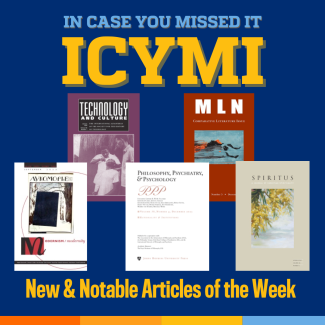
Each week, we collect the articles that we posted in the last week and put them all in one place, right here on the blog. So no worries if you missed an article we posted to Facebook , X/Twitter , Mastodon , Threads , Bluesky , Instagram and/or LinkedIn .
Here they are, I n C ase Y ou M issed I t:
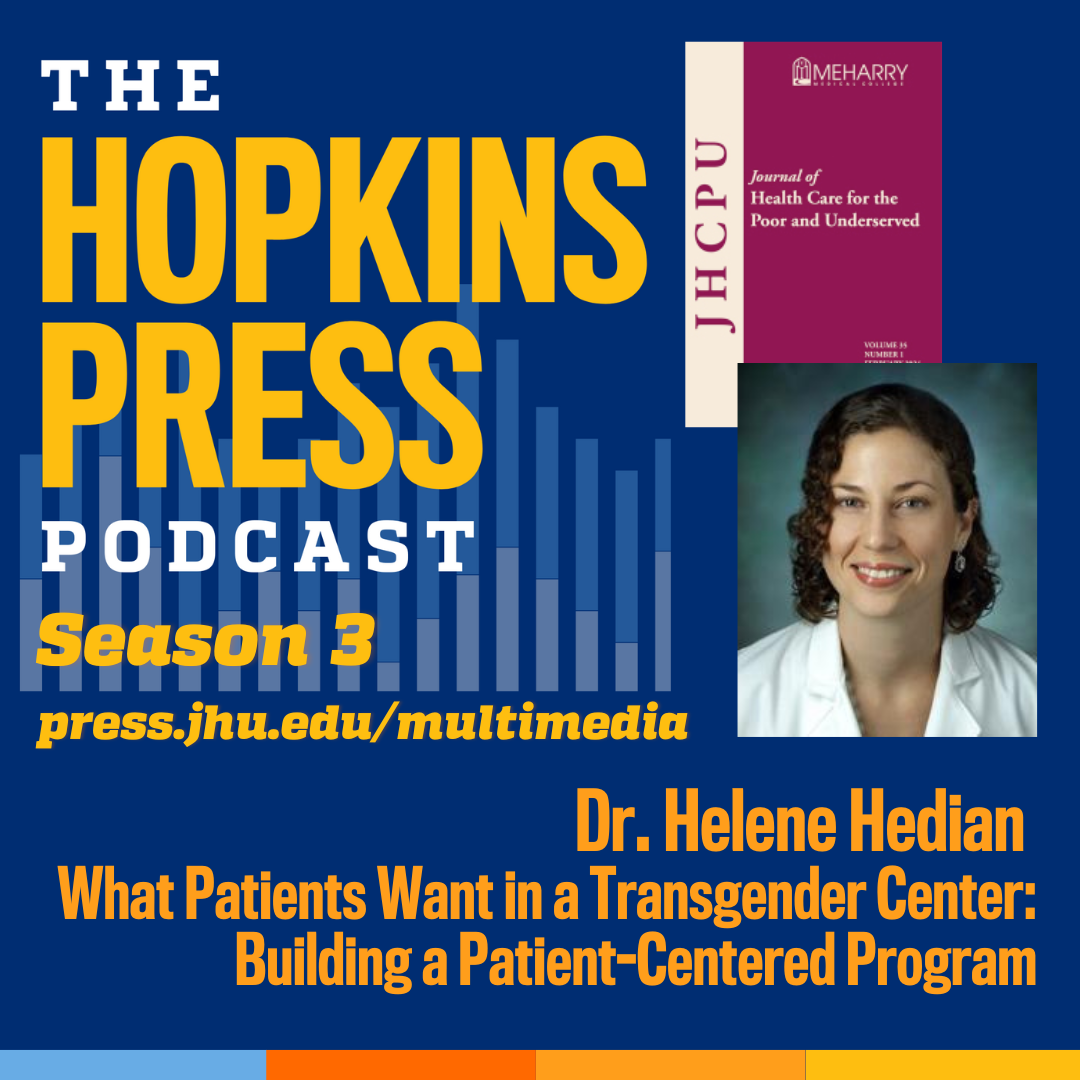
HOPKINS PRESS PODCAST: Helene Hedian on Building Patient-Centered Trans Health Care
On this month's Hopkins Press Podcast , we talk with Helene Hedian , MD, Director of Clinical Education, Center for Transgender and Gender Expansive Health, discussing data in a new study published in the February 2024 edition of Journal of Health Care for the Poor and Underserved ," What Patients Want in a Transgender Center:Building a Patient-Centered Program ."
Dr. Helene Hedian is an Assistant Professor of Medicine at the Johns Hopkins University School of Medicine, the Director of Clinical Education at the Johns Hopkins Center for Transgender and Gender Expansive Health, and the Assistant Vice Chair for LGBTQ+ Equity and Education in the Department of Medicine. Her academic interests include internal medicine, medical education, and the specific health needs of LGBTQ patients.
For further reading, see “ What Patients Want in a Transgender Center:Building a Patient-Centered Program ” for free in Journal of Health Care for the Poor and Underserved through 30 June 2024

What Patients Want in a Transgender Center: Building a Patient-Centered Program
Helene f. hedian , md , paula m. neira , msn, jd, rn, cen , devin coon , md, mse , joshua schwarz , phd , joseph cofrancesco jr, md, mph , and brandyn d. lau , mph , journal of health care for the poor and underserved volume 35, number 1, february 2024.
As featured in the Hopkins Press Podcast, Helene Hedian and her colleagues discuss the findings of a 2016 study that shares how Johns Hopkins Center for Transgender and Gender Expansive Health assessed patients' perceptions of health care organizations that provide gender-affirming care.
Read free in Journal of Health Care for the Poor and Underserved thru 30 June

Transgender Men and Non-Binary Students Managing Their Identities to Pay for College
Alex c. lange, review of higher education ahead of print, 2024.
Compared to previous generations, U.S. college students must increasingly rely on non-government sources of money to pay for college. Yet, paying for college looks markedly different for students from marginalized communities, given historical exclusion and inequitable access to financial capital.
Using data from a longitudinal study of transgender men and non-binary students, this study argues that identity management is a key tactic these students use to pay for college and navigate competing financial priorities. Ultimately, this study can help researchers and policymakers better address issues of affordability, while more clearly understanding the unique nature of identity management for transgender students.
Read free in Review of Higher Education thru 30 June
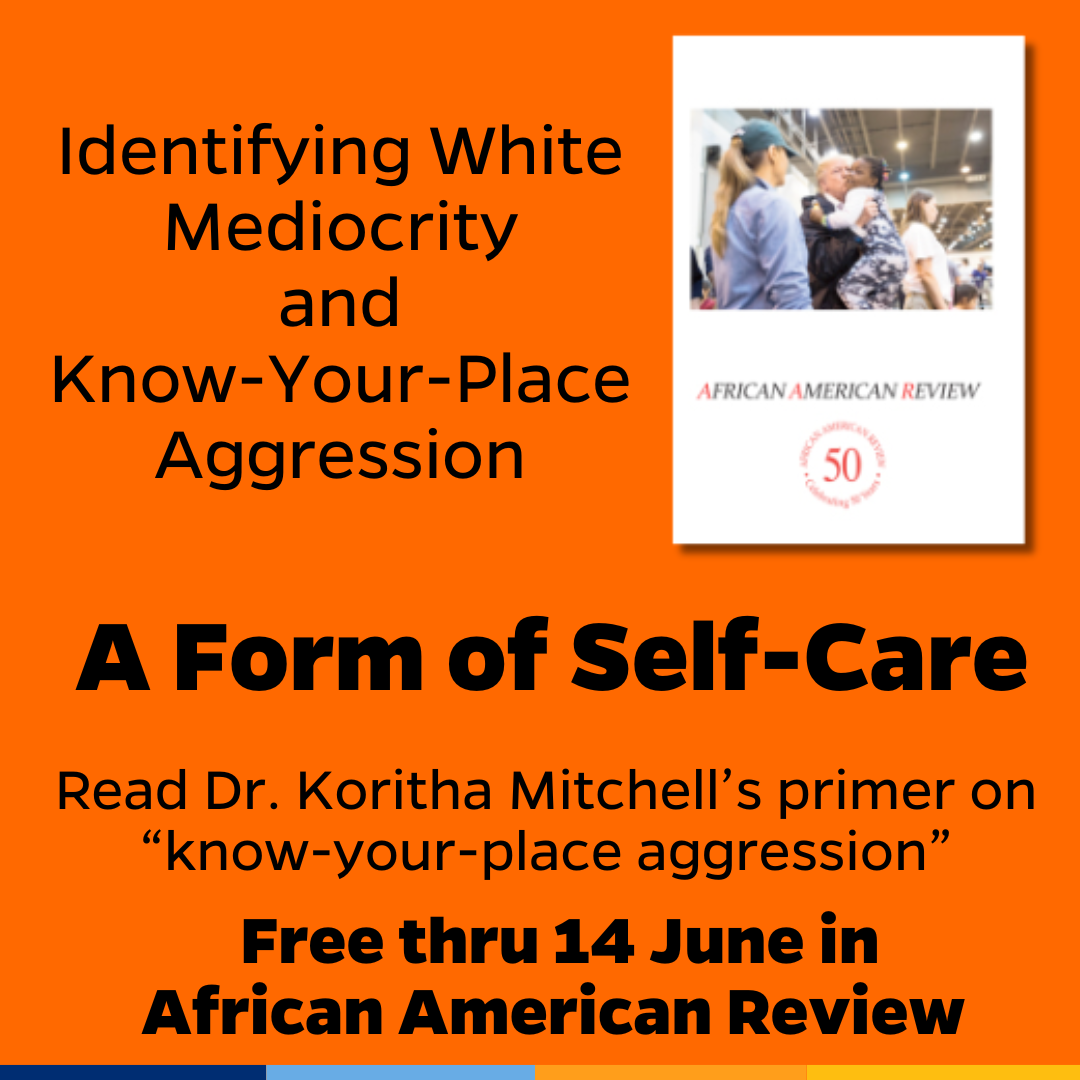
Identifying White Mediocrity and Know-Your-Place Aggression: A Form of Self-Care
Koritha mitchell, african american review volume 51, number 4, winter 2018.
Koritha Mitchell explores what she calls “know-your-place aggression” in African American Review, now available to read free thru 14 June
Explore further with a new interview with Dr. Mitchell in Public Books .

Excited Delirium: Why does this discredited term stick around?
In a new guest blog, Phoebe Friesen , PhD and Arjun Byju , MD examine the persistence of the discredited diagnosis "excited delirium" Their new article in Philosophy, Psychiatry, & Psychology and its responses are all free to read through 31 May.
Read “ Making up Monsters, Redirecting Blame: An Examination of Excited Delirium ” in the new issue of Philosophy, Psychiatry, & Psychology , free through 31 May.
Read further with a pair of commentaries," Excited Delirium: The Self-Fulfilling Prophecy of Police Brutality " by Kathryn Petrozzo and " Excited Delirium: What’s Psychiatry Got to do With It? " by Paul B. Lieberman , MD, as well as the authors' response: " Excited Delirium: Falsifiability, Causality, and the Importance of Advocacy " — all freely available to all readers for the month of May.

Fluid Bodies: Wet Nurses and Breastmilk Anxieties in Eighteenth-Century Madrid
Celia crifasi, journal of women's history volume 35, number 1, spring 2023.
Celia Crifasi’s “ Fluid Bodies: Wet Nurses and Breastmilk Anxieties in 18th-Century Madrid ” recently won the 2024 Barbara “Penny” Kanner Award from the Western Association of Women Historians
Centering the voices of women seeing employment as wet nurses in late 18th-century Madrid via ads they placed in newspapers, Crifasi reconsiders what we know about breastmilk and early modern bodies
Read free in Journal of Women's History thru 14 June

Child-Mothers and Invisible Fathers: The Paradox of "Precocious Maternity" and the Pervasiveness of Child Sexual Abuse in Nineteenth-Century America
Courtney e. thompson, journal of women's history volume 34, number 4, winter 2022.
Courtney Thompson’s “ Child-Mothers and Invisible Fathers: The Paradox of ‘Precocious Maternity’ and the Pervasiveness of Child Sexual Abuse in Nineteenth-Century America ” has won Nursing Clio’s Best Article Prize of 2023.
Thompson’s essay investigates the paradox of the "child-mother" to reveal the intersection of race, gender, sexuality, and age in 19th century culture and medicine, the instability of the categories of childhood and adulthood, and the erasure of child sexual abuse in history,
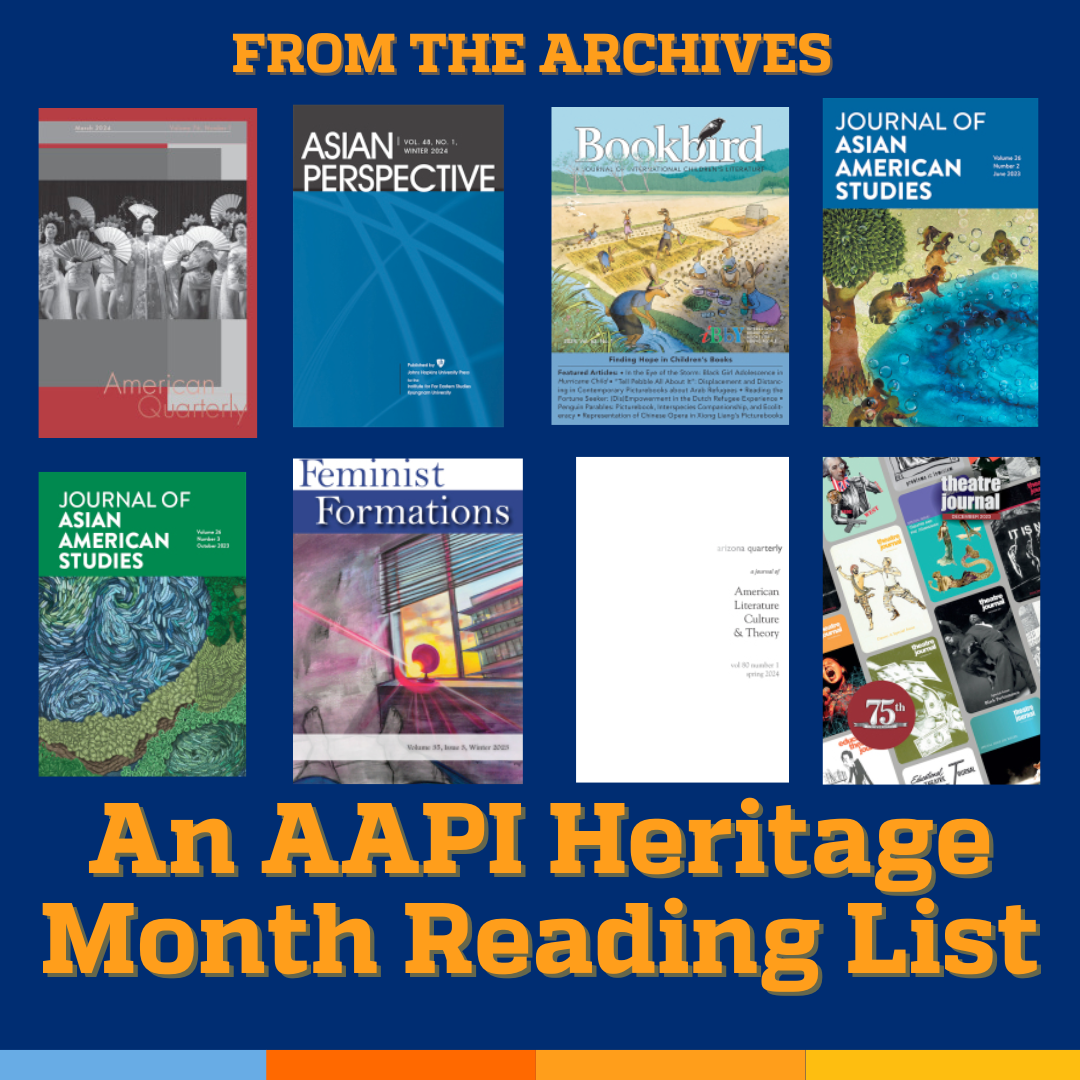
From the Archives: An AAPI Heritage Month Reading List
We're celebrating Asian American & Pacific Islander Heritage Month this May with a selection of recent journal articles spanning the Hopkins Press catalog.
Featuring articles from Children's Literature Association Quarterly , Journal of Asian American Studies , American Quarterly , Asian Perspective , Theatre Journal , Feminist Formations , Arizona Quarterly , Children's Literature Association Quarterly , and Bookbird on topics including pedagogies in Asian American studies; Filipino penal colonies; Kurdish and Korean diasporas; a symposium on Mel Gurtov 's Engaging China; Lee Isaac Chung's Minari; the Asian American outdoors; and much more.
Read free through 31 May
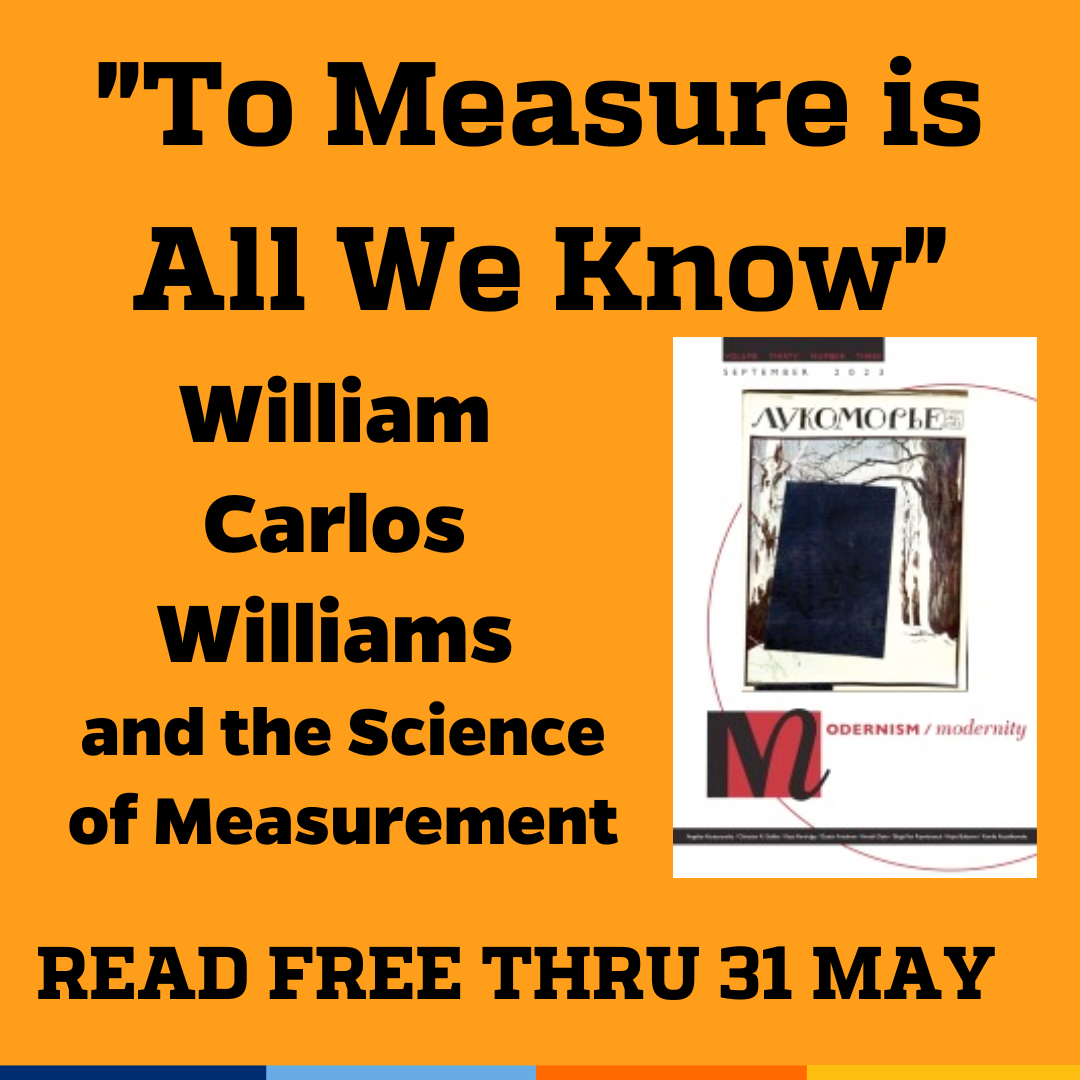
"To Measure is All We Know": William Carlos Williams and the Science of Measurement
Christian r. gelder, modernism/modernity volume 30, number 3, september 2023.
In order to appreciate William Carlos Williams' much-critiqued definition of “measure,” one must first understand how the science of measurement appeared in works by contemporaneous critics.
Read free in Modernism/modernity thru 31 May

"One of the Grand Works of the World": Walt Whitman's Advocacy for the Brooklyn Waterworks, 1856–59
Stephanie m. blalock , kevin mcmullen , stefan schöberlein , and jason stacy, technology and culture volume 65, number 1, january 2024.
Walt Whitman may be known as the “poet of America,” but fewer know about his contributions to bringing the Brooklyn Waterworks project out of obscurity through advocacy journalism.
Read more about his efforts in Technology and Culture , free thru 31 May .

PRSA Maryland names Artisanal Intelligence "Best in Maryland"
The Public Relations Society of America Maryland Chapter recently awarded Artisanal Intelligence , the 2024 Hopkins Press Journals catalog, Best in Maryland in the publications category!
Read all about the team work that made the dream work at our blog .

A Web of Support for Black Women in Higher Education
Paris wicker , dorian l. mccoy , rachelle winkle-wagner , and imani barnes, the review of higher education volume 47, number 1, fall 2023.
In a new guest blog post, "A Web of Support for Black Women in Higher Education," the authors of a new paper in The Review of Higher Education look at support networks Black women in STEM fields create to help each other persist.
Read “ A Web of Support: A Critical Narrative Analysis of Black Women’s Relationships in STEM Disciplines ” in The Review of Higher Education 47.1, Fall 2023 free through 31 May 2024
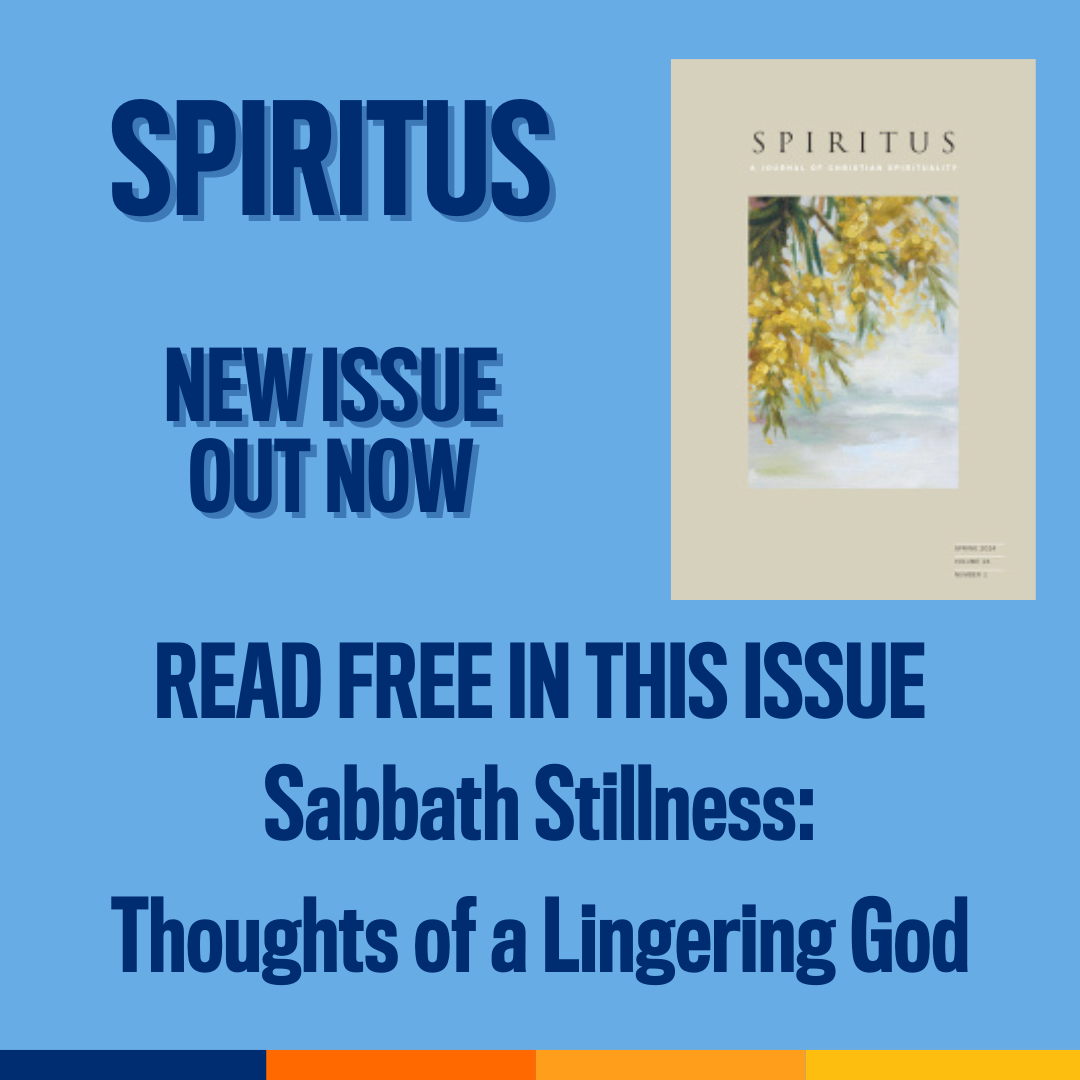
Sabbath Stillness: Thoughts of a Lingering God
Claire e. wolfteich, spiritus: a journal of christian spirituality volume 24, number 1, spring 2024.
Out now: the new issue of Spiritus: A Journal of Christian Spirituality , featuring an open access article: Claire E. Wolfteich 's " Sabbath Stillness: Thoughts of a Lingering God "
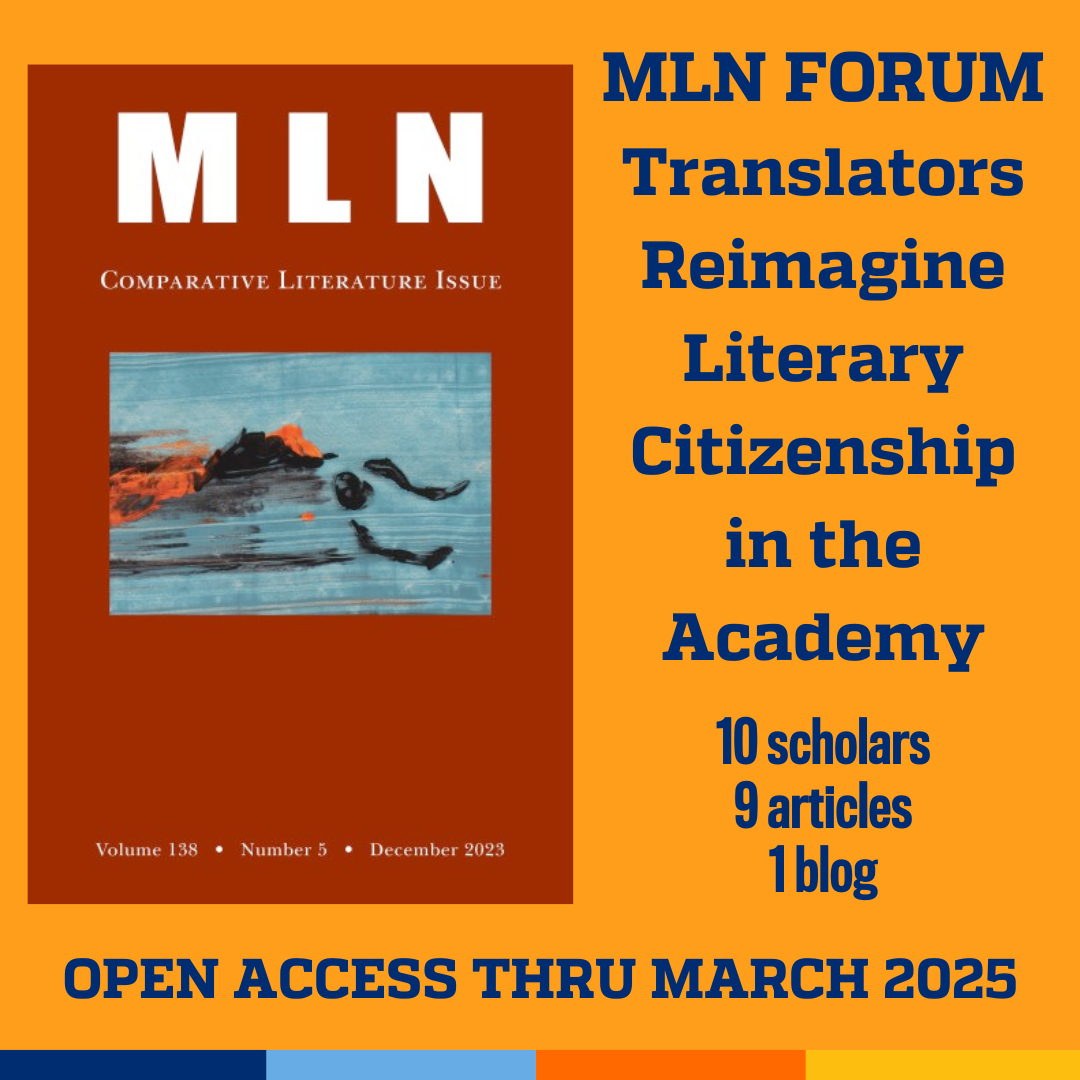
MLN Forum: Translators Reimagine Literary Citizenship in the Academy
Eleni theodoropoulos and bradley harmon, mln volume 138, number 5, december 2023.
How and when will translation receive recognition for its crucial role in the academic ecosystem?
Spanning the Hopkins Press blog & 9 articles in a new special issue of MLN , it's a lively and thoughtful 10-scholar forum, open access for a year thru March 2025
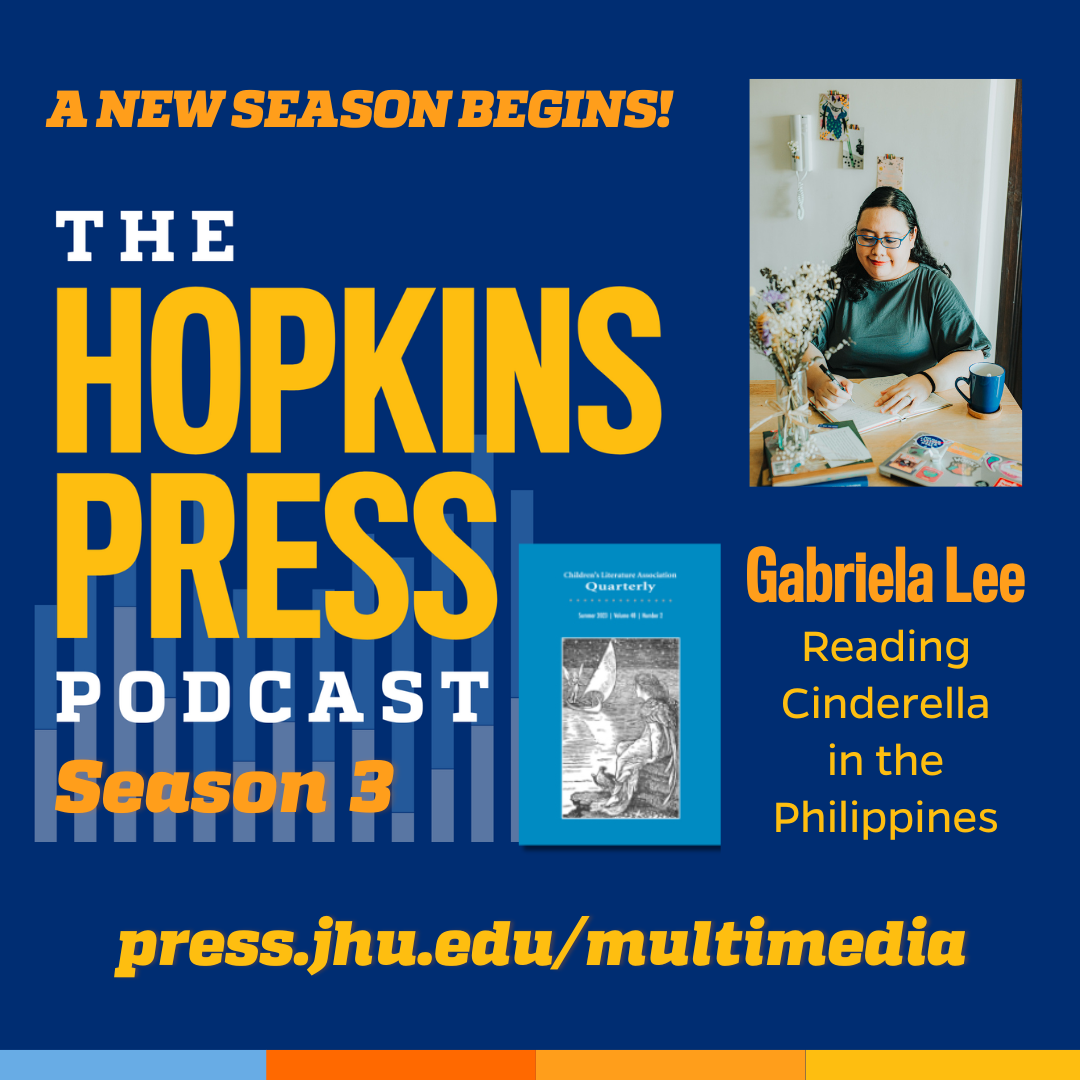
Hopkins Press Podcast: Gabriela Lee on Reading Cinderella in the Philippines
We begin our third season of the Hopkins Press Podcast with an interview with speculative fiction author and children's literature scholar Gabriela Lee , whose recent article in Children’s Literature Association Quarterly , “ When the Shoe Doesn't Fit: Reading Cinderella as Colonial Children's Literature in the Philippines ” became a viral hit on the Hopkins Press social media earlier this year.
Read her article, free through 31 May
When the Shoe Doesn't Fit: Reading Cinderella as Colonial Children's Literature in the Philippines
Gabriela lee, children's literature association quarterly , volume 48, number 2, summer 2023 .
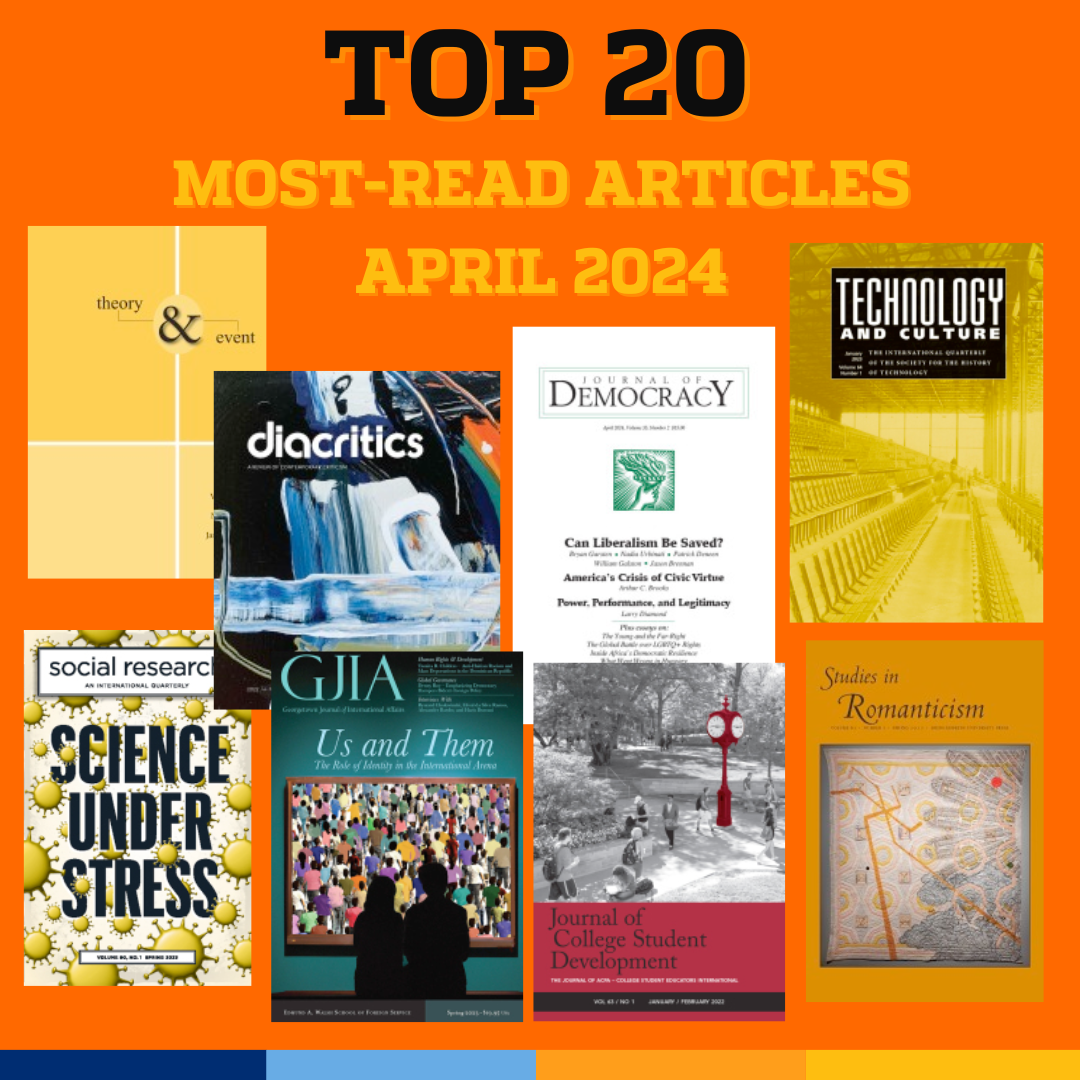
Top 20 of April 2024
Our monthly run-down of the most-read journal Hopkins Press journal articles last month.
Featuring articles from Journal of Democracy , Journal of College Student Development , Hispania , World Politics , Configurations , Journal of Orthodox Christian Studies , Bulletin of the History of Medicine , Spiritus: A Journal of Christian Spirituality , Journal of Chinese Religions , Diacritics , Bulletin of the History of Medicine , Georgetown Journal of International Affairs , Library Trends , Studies in Romanticism , Twentieth-Century China , Technology and Culture , Theory & Event , Children's Literature Association Quarterly , Social Research: An International Quarterly , and Shakespeare Bulletin .
Recently Released
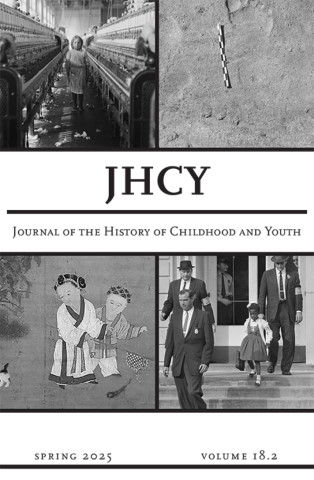
Linda Mahood, University of Guelph
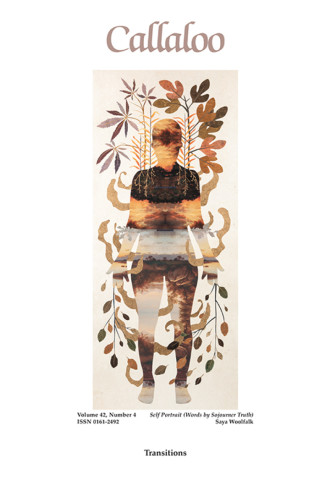
Charles Henry Rowell

Katharina Gerstenberger, University of Utah
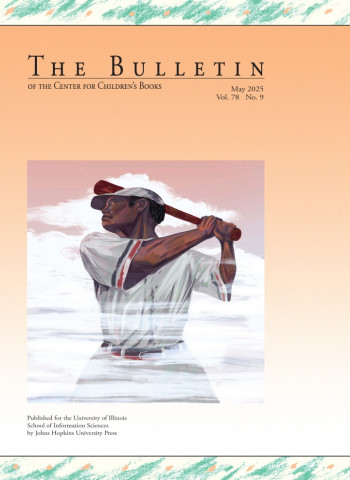
Kate Quealy-Gainer, University of Illinois at Urbana-Champaign
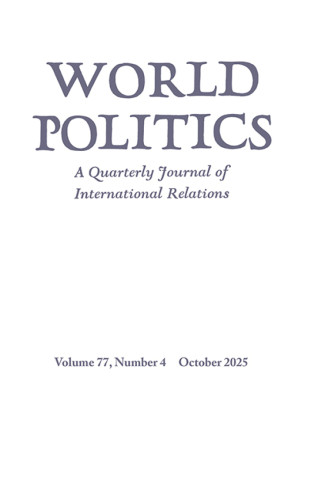
Grigore Pop-Eleches Executive Editor : Emily W. Babson
Princeton University

Katherine Malone, South Dakota State University

Logan D. Browning

Melissa A. Wong, University of Illinois Urbana-Champaign
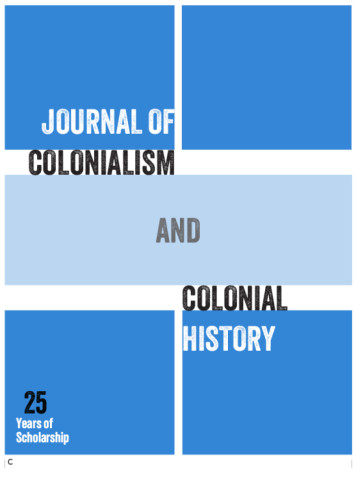
Clare Anderson, University of Leicester
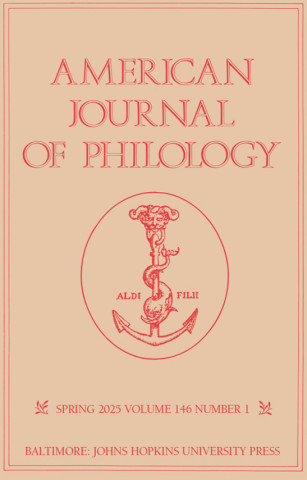
Rosa Andújar, King's College London

Dr. Nora Gilbert, University of North Texas
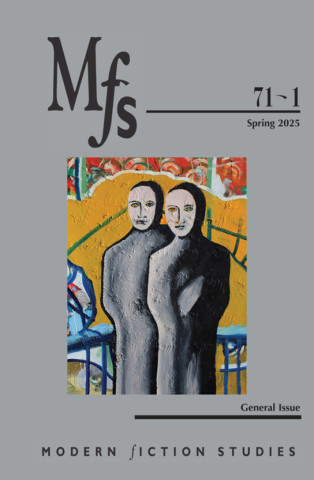
Robert P. Marzec, Purdue University

Philip Clart, Leipzig University, Germany
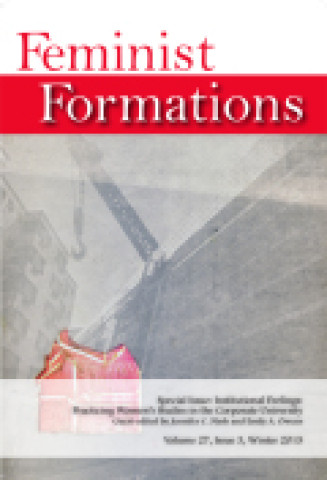
Patti Duncan, Oregon State University

Robin Mitchell-Boyask, Temple University

Christopher Sogge, Johns Hopkins University
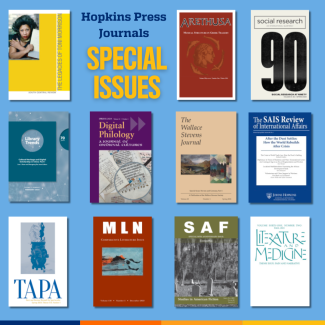

IMAGES
VIDEO
COMMENTS
Focus on a specific event or detail to make your narrative more focused and impactful. Look for universal themes like love or personal transformation that connect with readers on a deeper level. Brainstorm ideas and write freely to uncover compelling topics. Decide on storytelling techniques like flashbacks or foreshadowing and choose a topic ...
Good Narrative Essay Topics for College Students. Just like high schoolers, students at colleges and universities are fond of talking about their everyday matters. Whether a topic about students' affairs or reflection on new relationships, the most popular narrative topics for college students are collected here.
The list of 100 narrative essay topics that we've compiled is a versatile and expansive set designed to inspire students at various educational levels. The topics range from lighter, more relatable experiences like your "first job interview" or "a memorable birthday party," to deeper, more introspective themes such as "an experience ...
When applying for college, you might be asked to write a narrative essay that expresses something about your personal qualities. For example, this application prompt from Common App requires you to respond with a narrative essay. College application prompt. Recount a time when you faced a challenge, setback, or failure.
Take a look at the fictional narrative essay topics below: Write a narrative where a girl discovers her superpower. A story about a land that has 25 hours in a day. Describe your version of the future. Fiction narrative where a person discovers big city life. Come up with an apocalyptic story.
7. Personal Narrative Essay About Friendship. 8. Personal Narrative Stories Ideas on Traveling and Holidays. 9. Fictional Narrative Essay Ideas. 10. Literacy Narrative Essay Topics. 11.
College narrative essay topics College is a time of new experiences. So much happens that it shouldn't be difficult to choose something to write about. The essay you write can be more descriptive, focussing on your sensory observations of an experience, or more contemplative, focusing on new thoughts and feelings. ...
These topics are all a natural fit for a story arc, which is a central part of a narrative essay. Childhood Tales. Writing about your childhood can be a great choice for a narrative essay. We are growing and learning during this delicate and often awkward time. Sharing these moments can be funny, endearing, and emotional.
A great narrative essay topic is both personal and widely relatable. Check out these narrative essay topics to see which resonates with your story. ... College is another time in your life that's wrought with self-discovery and seeing the world as it truly is. Why you chose to go to college;
A narrative essay is a prose-written story that's focused on the commentary of a central theme. Narrative essays are generally written in the first-person POV, and are usually about a topic that's personal to the writer. Everything in a narrative essay should take place in an established timeline, with a clear beginning, middle, and end.
Narrative Essay Topics for College Students. Instructor Rachel Tustin. Dr. Rachel Tustin has a PhD in Education focusing on Educational Technology, a Masters in English, and a BS in Marine Science ...
100 Narrative Essays Topics for College Students. After hours of creative brainstorming, we created a list with top topic samples for narrative papers. There will be 10 categories with ten themes in each. All of them are interesting and refreshing, and they could serve as an inspiration source for your essay. Personal Topics
Here is a list of top persuasive essay topics for college: 1. The importance of arts education in schools. 2. Why volunteering should be part of the college curriculum. 3. The benefits of bilingual education. 4. The necessity of making public transport free.
List of sample Narrative Essay Topics in our Special Collection. We have analyzed a bunch of narrative essay topics to come up with the list of the most compelling narrative essay themes: Personal Narrative Topics. Memorable days with family; The love of your life; The best person in your life; Memorable birthday party; People you miss the most
Here are a few examples of narrative essay topics for college: Describe a moment in your life that challenged your beliefs or values and forced you to reconsider your perspective. Describe a time in your life when you faced a difficult decision that required you to choose between two equally compelling options. 2. Form a central idea.
A narrative essay delivers its theme by deliberately weaving the motifs through the events, scenes, and details. While a narrative essay may be entertaining, its primary purpose is to tell a complete story based on a central meaning. Unlike other essay forms, it is totally okay—even expected—to use first-person narration in narrative essays.
Purpose: Reach the peak of the story, the moment of highest tension or significance. Elements: Turning Point: Highlight the most crucial moment or realization in the narrative. Example: "As the sun dipped below the horizon and hope seemed lost, a distant sound caught our attention—the rescue team's helicopters.".
Narrative Essay Topics for Grade 5. My First Day at a New School. The Time I Learned to Ride a Bike. A Visit to a Haunted House. The Day I Met a Real-Life Superhero. My Most Memorable Family Vacation. A Surprising Encounter with an Animal. The Mystery of the Missing Homework. The Best Birthday Party I Ever Had.
My first friends at college. Narrative Essay Topics for Different Grades Let's look at the narrative speech topics for different grades. Narrative Essay Topics for Grade 5. My first bicycle ride. My dad is my hero. A day with my grandmother. My first day at school. My best friend. My favorite teacher. A school trip to the zoo. My grandpa's ...
Traveling Narrative essay topics: A Journey Through Ancient Cities: Exploring History and Culture. Backpacking Adventures: Lessons Learned from Life on the Road. Navigating the World's Majestic Mountains and Rugged Terrains. Island Hopping: Experiencing the Beauty of Oceans and Beaches.
When writing a narrative essay, one might think of it as telling a story. These essays are often anecdotal, experiential, and personal—allowing students to express themselves in a creative and, quite often, moving ways. Here are some guidelines for writing a narrative essay. If written as a story, the essay should include all the parts of a ...
A good narrative essay will begin with an attention-grabbing opening line. But make sure to avoid common clichés, such as "It was the best of times, it was the worst of times.". Instead, come up with something original and specific to you and your situation. For example: "My pre-calc teacher was obsessed with circles.
College essay topic choice . Giving admissions officers a window into difficult experiences can present your story in your college application, but there are other topics that can also make for a strong essay (e.g. a favorite book, a community service project). Whichever angle you select to tell your story, highlight the most important things ...
We've got 50 narrative essay topics designed to prompt students to craft memorable written narratives. These can be modified for students in elementary, middle and high school. Feel free to print the entire narrative essay topics list for plenty of inspiration for your next narrative essay assignment! Narrative Essay Topics. Your first day of ...
4. College application essays to showcase personal qualities and experiences. How to Write a Narrative Essay. Narrative essays typically follow a chronological structure, with an introduction that sets the scene, a body that develops the plot and characters, and a conclusion that provides a sense of resolution or lesson learned. 1.
What is a capstone project in college, and how is it different from a thesis? Find out in our latest writing guide! ... Essay Topics Cause and Effect Essay Topics Compare and Contrast Essay Topics Definition Essay Topics Informative Essay Topics Narrative Essay Topics. Persuasive Essay Topics Philosophy Paper Topics Research Paper Topics. See more.
Transgender Men and Non-Binary Students Managing Their Identities to Pay for College Alex C. Lange Review of Higher Education ... Thompson's essay investigates the paradox of the "child-mother" to reveal the intersection of race, gender, sexuality, and age in 19th century culture and medicine, the instability of the categories of childhood ...